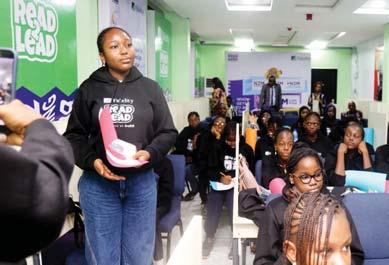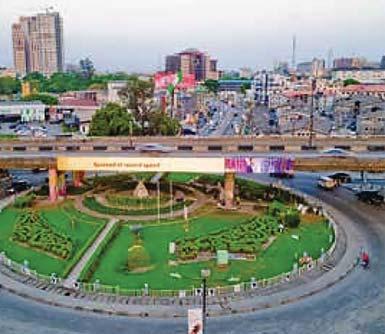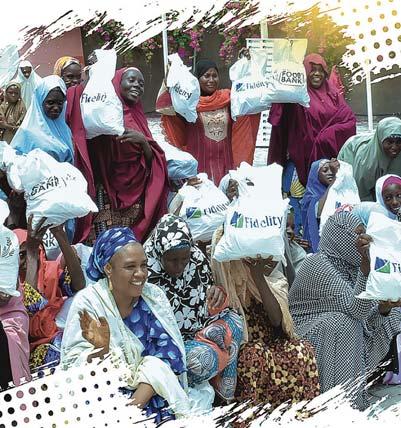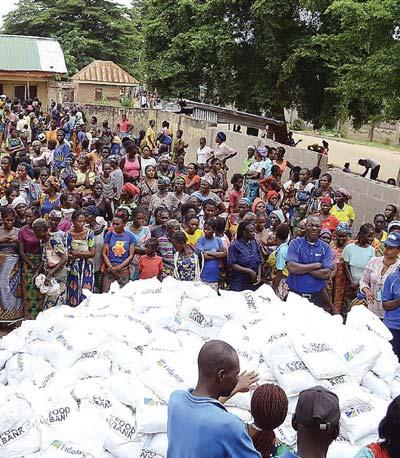Dangote Refinery: IOCs Plotting Our Failure By Declining to Sell Local Crude Despite Paying Premium





































Emmanuel Addeh in Abuja and Peter Uzoho in Lagos
The federal government at the weekend said it was ramping up gas supply to boost the country’s industrialisation and economic growth with the Obiafu-Obrikom-Oben (OB3) Gas Pipeline project set for delivery in August.
The 48-inch, 127-kilometre OB3 gas pipeline, being built by the Nigerian National Petroleum Company Limited (NNPCL) and estimated to cost $700 million when work commenced on it in 2016, had long been delayed.
Equally known as the EastWest Pipeline, the pipeline connects the Obiafu-Obrikom gas plant, near Omuku, in Rivers State, to Oben, Edo State, and is expected to transport two billion Standard Cubic Feet (SCF) of gas per day.
Speaking during an inspection of the project, along with other top government officials, around the pipeline’s River Niger Crossing operation at Aboh, Delta State, Group Chief Executive Officer of
NNPC, Mr. Mele Kyari, confirmed that the project will be delivered weeks from now.
By design, the OB3 Gas pipeline was the interconnector, which linked the Eastern gas pipeline network to the Escravos-Lagos Pipeline System (ELPS) in the West, and the Ajaokuta-KadunaKano (AKK) Pipeline in the North, a statement from the Corporate Communications Officer of NNPC, Olufemi Soneye, said.
The statement explained that the River Niger Crossing operation had been the major impediment to the completion of the strategic gas pipeline for over three years.
It said this was due to failure of the various technologies deployed to achieve the construction of the 48-inch pipe under the river bed between Ndoni in Rivers State and Aboh in Delta State.
But with the adoption of the micro-tunnelling/direct pipe installation technology, the new contractors, Messrs HDD Thailand/Enikkom and Tunnel Services Group (TSG),
Kemi Olaitan in Ibadan
The Nigeria Union of Journalists (NUJ) has cautioned politicians in Ondo and Edo States to refrain from arbitrary attack of journalists on essential duties during the forthcoming elections in the states.
This is just as it called on Governor Ahmadu Umaru Fintiri of Adamawa State, to sign, without further delay, the Media Enhancement Bill passed by the state House of Assembly in 2022.
The union made the declarations at the weekend, in a communique issued at the end of its quarterly National Executive Committee, (NEC) meeting held in Ibadan, the Oyo State capital, and read by its National President, Chief Chris Isiguzo.
Isiguzo said journalists as stakeholders in the nation's democracy must be protected and not attacked, stating that the union would not take kindly to any attack on its members.
He disclosed that the Media Enhancement Bill passed by the Adamawa State House of Assembly when signed into law would help to improve standard of living for journalists in the state, urging the governor to sign it in the interest of journalists working in the state.
The union, while expressing concern over the increasing cost of living in the country, urged the federal government to come up with immediate measures to ameliorate the sufferings being faced by Nigerians. It also frowned on the incessant vandalism of power installations supplying electricity to some states of the North East and other parts of the country.
The union equally called on the federal and state governments to urgently intervene on the poor state of roads in the country.
The communique read in part: “NEC cautions politicians to refrain from attacking Journalists on essential duties during the upcoming Governorship elections in Ondo and Edo
were making a headway with about 860 metres out of the 1,800 metres achieved so far, the statement said.
Speaking after the inspection tour, Kyari expressed delight at the breakthrough, which signalled the imminent completion of the project.
He said, “This is a major project of monumental value to our country. What this means is that this is the only way we can deliver the gas revolution. I am very happy and convinced that latest by the middle of August, we will complete this project. I have been assured of that by the project team.”
On the significance of the project, Kyari said, “Once completed, we will see about 2.2 billion standard cubic feet of gas coming into our network. We believe that this will give our country a breathing space
of demand.
“I am sure we can catch up with that kind of demand in the next one and a half years. We are happy that this will give us the platform to unleash the gas revolution in our country.”
Minister of State for Petroleum Resources (Gas), Ekperikpe Ekpo, expressed satisfaction with the pace of work at the OB3 River Niger Crossing operation, describing it as “Renewed Hope at work”. Ekpo stated, “I was here last year and I saw the work that was going on. There was a promise that it would be completed by December last year. I took it with a doubt. But today, from what I can see, I am confident that by July or August it will be completed and it will be commissioned by the president.”
Special Adviser to President
Bola Tinubu on Energy, Olu Verheijen, said she was looking forward to the completion of the project, having been assured by the technical team that the right technology had been found to resolve the complex challenges of the River Niger Crossing.
“As the minister and other speakers have said, we are looking forward to having this project deliver prosperity to Nigerians in the form of electricity and other areas,” Verheijen said.
Managing Director of TSG, one of the contractors handling the project, Mr. Ingo Justen, who was personally on ground to supervise the project on the request of the GCEO, expressed confidence that the current technology being deployed in the execution of the project would lead to its
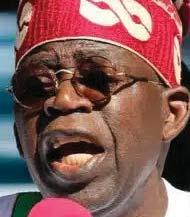
speedy conclusion.
In a presentation, Managing Director of NNPC Gas Infrastructure Company (NGIC), Seyi Omotowa, disclosed that at the rate of progress with the new technology, the River Niger Crossing operation, which was the only aspect of the OB3 Gas Pipeline Project left, will be achieved on schedule.
States respectively. NEC equally frowns at the incessant and arbitrary arrests and detention of Journalists in the line of duty by security personnel and urges that such uncouth actions be stopped forthwith.
"NEC frowns on the lingering insecurity across the nation, especially kidnapping and violent crimes in the South-east, insurgency in the North-east, banditry in North-west and rising militancy in the Southsouth as well kidnapping in the South-west and cattle rustling and attack on farmlands in the North-central by herders.
“NEC calls on the heads of the nation’s security apparatus to rise to the occasion and address the situation.
"NEC expresses dismay at the increasing cost of living conditions particularly the prices of essential commodities which is becoming unbearable to Nigerians and called on the Federal Government to come up with immediate measures to ameliorate the sufferings being faced by Nigerians. On this, NEC expressed concerns at the delay in production at the Dangote Refinery which would have eased the present economic hardship in the country.
"NEC frowns on the incessant vandalism of power installations supplying electricity to some States of the North East and other parts of the country, and therefore calls on the Transmission Company of Nigeria and Ministry of Power to immediately restore electricity supply to the affected states.
"NEC calls on federal and state governments to urgently intervene on the poor state of roads in the country and further calls on the Federal Ministry of Works and Federal Roads Maintenance Agency to urgently proffer measures to ease the sufferings of motorists.
"NEC mandates the National Secretariat to overhaul and reorganize the International Institute of Journalism, IIJ, by instituting a new Governing Council for optimal performance."
Kasim Sumaina in Abuja
The Minister of Aviation and Aerospace Development, Festus Keyamo, yesterday expressed sadness over the prevalence rate of touting and extortion at the country’s international airports, stating that the ministry shall soon unveil practical steps to stem the tide.
Keyamo lamented that he had received a series of complaints from Nigerians concerning both
situations, saying it was giving the country a negative image.
According to him, "Just to set the records straight, most of the agencies involved in this menace are not under the control of the Aviation Ministry, though they are stationed at our airports.
“However, I have been working closely with other ministers, arms of government and agencies who are responsible for these agencies
and a solution is in sight soon.
“We are all working under the coordination of the National Security Adviser who called a meeting a few days ago on this issue and we shall soon unveil practical steps being taken to stem this ugly tide.
We thank Nigerians for their eternal vigilance on this issue.”
Keyamo, who registered his displeasure over the development in a post on X, formerly Twitter, added:
"I have received several complaints about the menace of begging and extortion at our international airports by a few unscrupulous persons who give all of us a bad image. "My phones are beeping every minute with messages about this from well-meaning Nigerians. We shall soon unveil practical steps being taken to stem this ugly tide. We thank Nigerians for their eternal vigilance on this issue.”
DANGOTE REFINERY: IOCS PLOTTING OUR FAILURE BY DECLINING TO SELL LOCAL CRUDE DESPITE PAYING PREMIUM
price.
Speaking to a group of energy editors at a one-day training programme, organised by Dangote Group, Edwin said the situation was forcing the refinery to import crude from countries as far as the US, with the attendant high costs.
He also lamented that the Nigerian Midstream and Downstream Petroleum Regulatory Authority (NMDPRA) was still granting import licences, indiscriminately, to marketers to import dirty refined products into the country.
Edwin disclosed that the federal government issued 25 licences to investors to build refineries, but Dangote Refinery was the only one that delivered on its promise.
He said the Dangote group deserved every support from the Nigerian government, especially with the Domestic Crude Supply Obligation (DCSO), as specified in the enabling law.
Edwin pointed out, “It is good to note that from the start of production, more than 3.5 billion litres, which represent 90 per cent of our production, has been exported.
“We are calling on the federal government and regulators to give us the necessary support in order to create jobs and prosperity for the nation.”
He observed that while the Nigerian Upstream Petroleum Regulatory Commission (NUPRC) was trying its best to allocate crude oil to the refinery, the foreign oil companies were bent on frustrating the move.
Edwin stated, “The IOCs are deliberately and wilfully frustrating our efforts to buy the local crude. The NUPRC recently met with crude oil producers as well as
refineries owners in Nigeria in a bid to ensure full adherence to DCSO, as enunciated under Section 109(2) of the Petroleum Industry Act (PIA).
“It seems that the IOCs’ objective is to ensure that our petroleum refinery fails. It is either they are deliberately asking for ridiculous and humongous premium or they simply state that crude is not available.
“At some point, we paid $6 over and above the market price. This has forced us to reduce our output as well as import crude from countries as far as the US, increasing our cost of production.
“It appears that the objective of the IOCs is to ensure that Nigeria remains a country, which exports crude oil and imports refined petroleum products. They are keen on exporting the raw materials to their home countries, creating employment and wealth for their countries, adding to their Gross Domestic Product (GDP), and dumping the expensive refined products into Nigeria, thus making us to be dependent on imported products.”
The Dangote vice president maintained that it was the same strategy the multinationals had been adopting in relation to every commodity, making Nigeria and Sub-Saharan Africa to face unemployment and poverty, while creating wealth for themselves at Nigeria’s expense.
Describing the situation as exploitation, he emphasised that, unfortunately, the country was also playing into the hands of the multinationals by continuing to issue import licences at the expense of the economy and at a cost to the health of Nigerians, who were
exposed to carcinogenic products.
According to him, "In spite of the fact that we are producing and bringing out diesel into the market, complying with the Economic Community of West African States (ECOWAS) regulations and standards, licences are being issued in large quantities to traders, who are buying the extremely high sulphur diesel from Russia and dumping it in the Nigerian market.
“Since the US, EU and UK imposed a price cap scheme from February 5, 2023 on Russian petroleum products, a large number of vessels are waiting near Togo with Russian ultra-high sulphur diesel and they are being purchased and dumped into the Nigerian market.
"In fact, some of the European countries were so alarmed about the carcinogenic effect of the extra high sulphur diesel being dumped into the Nigerian market that countries like Belgium and the Netherlands imposed a ban on such fuel being exported from its country into West Africa recently.
“It is sad that the country is giving import licences for such dirty diesel to be imported into Nigeria, when we have more than adequate petroleum refining capacity locally.”
In May, Belgium and The Netherland adopted new quality standards to halt the export of cheap, low-quality fuels to West Africa, harmonising its standards with those of the European Union. The measures synchronised fuel export standards with the European domestic market, specifically targeting diesel and petrol with high sulphur and chemical content. Historically, the fuels, with
sulphur content reaching up to 10,000 ppm, were exported at reduced rates to countries like Nigeria and other West African consumers.
The decision of the NMDPRA to keep granting licences indiscriminately for the importation of dirty diesel and aviation fuel, the Dangote group said, had made the refinery to expand into foreign markets.
Edwin said, “The refinery has recently exported diesel and aviation fuel to Europe and other parts of the world. The same industry players fought us for crashing the price of diesel and aviation fuel, but our aim, as I have said earlier, is to grow our economy.”
Edwin stated that because the refinery met the international standard and complied with stringent guidelines and regulations to protect the local environment, it had been able to export its products to Europe and other parts of the world.
He appealed to the federal government and the National Assembly to urgently intervene for speedy implementation of the PIA and to ensure the interest of Nigeria and Nigerians were protected.
Edwin said, "Recently, the government of Ghana, through legislation, has banned the importation of highly contaminated diesel and PMS (petrol) into their county. It is regrettable that in Nigeria, import licences are granted, despite knowing that we have the capacity to produce nearly double the amount of products needed in Nigeria and even export the surplus.
“Since January 2021, ECOWAS regulations have prohibited the import of highly contaminated diesel into the region.”


Deji Elumoye and Folalumi
Alaran in Abuja
Solid Minerals Development Minister, Dr. Dele Alake at the weekend presented the latest gold bar sourced from artisanal and small gold miners to President Bola Tinubu, stressing that the transaction boosted Nigeria’s foreign reserves by over $5 million.
The minister commended President Bola Tinubu for supporting reforms in the solid minerals sector, assuring that the National Gold Purchase programme will increase the country’s reserve and boost the
naira’s value.
Presenting the bars refined by an agency of the ministry, the Solid Minerals Development Fund, to meet the London Bullion Market Association Good Delivery Standard, Alake said the refined gold would be sold to the Central Bank of Nigeria (CBN) to bolster foreign reserves.
Explaining to the president the significance of the event, Alake said it marked the first commercial transaction under the National Gold Purchase Programme (NGPP), the centralised offtake scheme supported by a decentralised aggregation and production
network of artisanal and smallscale miners and cooperatives.
He said: “The successful completion of the first commercial transaction clearly demonstrates the National Gold Purchase Programme's effectiveness. It has increased the nation’s foreign reserves assets and shown that using the Nigerian Naira to purchase a liquid asset traded in United States Dollars, such as gold, is a viable strategy.
“This transaction has also underscored the potential of the National Gold Purchase Programme to enhance fiscal and monetary stability.”
Alake said the first commercial transaction has delivered $5 million increase in Nigerian’s foreign reserves assets, 70+ kilogrammes of gold refined to the London Bullion Market Good Delivery Standard and successful aggregation of locally mined gold thereby injecting about N6 billion into the rural economy.
Receiving and displaying a symbolic bar, Tinubu commended the ministry for achieving a major milestone in the administration’s drive to diversify the economy.
“This is another concrete step towards the diversification
The Minister of Housing and Urban Development, Ahmed Dangiwa, yesterday announced that the federal government was set to officially flag-off construction work for additional 2,000 housing units in eight states in the South and North-Central zones of the country.
A statement from the minister’s spokesman, Mark Chieshe, said that this is in continuation of the groundbreaking ceremonies for Renewed Hope Cities and Estates, which began earlier.
He listed the states slated for the exercise to include: Ebonyi, Abia, Akwa Ibom, Delta, Osun, Oyo, Benue and Nasarawa.
The nationwide groundbreaking exercise, he said, is sequel to the official launch of the housing programme by President Bola Tinubu in February 2024, with the inauguration of 3,112 housing units in Karsana, Abuja.
It is also following the successful groundbreaking of 1,500 housing
units in five states in the north comprising: Katsina, Yobe, Gombe, Sokoto and Kano from May 22 to 25, 2024.
The schedule for the flag-off of construction activities will begin with 250 housing units in Ebonyi on Wednesday, June 26, 2024, followed by 250 units in Abia on Thursday, June 27 2024; 250 units in Akwa Ibom on Friday, June 28, 2024; and 250 units in Delta State on Saturday June 29, 2024.
Others are 250 units apiece in Osun, Oyo, Benue and in Nasarawa, bringing the total to 2,000 housing units in the eight states.
According to the statement, this brings the total number of units under the Renewed Hope Cities and Estates Programme since the official launch in February to 6,612.
“All the housing projects are scheduled to be completed and commissioned by the end of 2024 in line with the commitment of the minister to ensure housing projects are speedily completed and occupied by Nigerians who
need them.
“Each Renewed Hope Estate in Ebonyi, Akwa Ibom, Abia, Delta, Osun, Oyo, Benue, and Nasarawa will comprise 50 units of one-bedroom semi-detached bungalow, 100 units of 2-bedroom semi-detached bungalow, and 50 units of 3-bedroom semi-detached bungalow,” the statement added.
It quoted Dangiwa as saying that:
“The houses will be built in line with approved organic designs to allow eventual off-takers expand from one bedroom to two bedrooms, and from two bedrooms to three bedrooms as incomes increase over time. The design was adopted to enhance affordability for Nigerians.”
The 2,000 housing units, Dangiwa said, are being funded under the 2023 supplementary budget of the federal ministry of housing and urban development.
The minister assured state governments that the housing programme is designed to cover all states of the federation and those not captured under the supplementary
budget will be taken care of under the 2024 budget.
The 2,000 housing units are estimated to create about 50,000 skilled and unskilled jobs in the states at an average of 25 jobs per unit, the minister stressed.
“Beyond providing shelter for low-and-medium-income Nigerians, housing construction is a major stimulus for the local economy, creating jobs, supporting livelihoods, and developing the larger economy,” Dangiwa said.
The housing projects also seek to promote inclusivity and integration and address inequalities by providing a broad range of affordable homeownership options.
These, it said, include single digit and up to 30-year mortgage loans to be provided by the Federal Mortgage Bank of Nigeria (FMBN).
They also include rent-to-own options where beneficiaries can move in and pay towards homeownership in monthly, quarterly, or annual instalments and outright purchase for high income earners.
process under the Renewed Hope Agenda” the president said.
In her presentation, the Executive Secretary of the Solid Minerals Development Fund, Fatimah Shinkafi said the London Bullion Market Good Delivery Standard is the globally recognised stringent and trusted standard that enables the global trade in gold and silver bars.
“Only gold and silver bars that meet our Good Delivery standards are acceptable in the settlement of a Loco London
contract – where the bullion traded is physically held in London” she said. Shinkafi said that through the efforts of the National Gold Purchase Programme under the Ministry of Solid Minerals Development, Nigeria has joined a select group of countries bolstering their gold reserves by purchasing gold in local currency to foster economic confidence, enhance currency stability, and create a more attractive environment for foreign investment.
The Petroleum Technology Development Fund (PTDF) says it remains committed to supporting geologists carry out field researches that will enable Nigeria explore its rich natural resources for economic development.
Executive Secretary of the PTDF, Ahmed Aminu, made this known in Enugu yesterday, during a knowledge sharing and field training workshop for early career geoscience lecturers across state and federal universities in the southeast region.
Aminu, represented by a staff in the research and innovation department at PTDF, Neeka Jacob, said that although geology degrees typically require students to undertake 100 days of field work to gain practical knowledge, there is still widespread knowledge and skills gap among students and lecturers.
He however, noted that the PTDF remains committed to educational development in
Nigeria, particularly in the area of geosciences giving its importance to the economy, hence it continues to support lecturers and students to embark on field trips.
“We want to ensure that investment in the classrooms also translates into benefits for the larger society and that the younger generation are groomed into experts in the field of geosciences,” he said.
Earlier, PTDF Research Chair in Petroleum Geology at the University of Nigeria, Nsukka, Prof. Wilfred Mode, said that the primary objective of the workshop is to foster knowledge sharing and provide practical field training for early-career academics in the geoscience disciplines.
“This initiative aims to enhance their skills, broaden their research perspectives, and ensure that the future of geoscience education is in capable hands,” he said adding “It provides an opportunity for these young lecturers to learn from the practical experiences of advanced experts in the field."

L-R: Chairman Creatives & Culture Committee Nigerian-British Chamber of Commerce (NBCC), Lara Kayode; outgoing
Deputy President,
PwC has warned that any further increase in taxes would cause a decline in reinvestment by firms operating in Nigeria and exacerbate corporate exits from the country.
This warning is contained in its June 2024 report titled: “Nigeria Economic Outlook: Navigating Economic Reforms,” which projected that inflation would decline to 29.5 per cent by the second half of 2024 from the 33.95
per cent that was recorded in May 2024.
The report said: “Government may reconsider any planned increase in selected taxes to alleviate the financial challenges and unlock liquidity of certain businesses being impacted by the economic pressure points... any further increase in taxes will compound the decline in reinvestment and exacerbate possible exits of corporate from industry.”
PwC stated that the impacts
Emmanuel Addeh in Abuja
The Senior Special Assistant to President Bola Tinubu on Technical, Vocational and Entrepreneurship Education (SSAP-TVEE), Abiola Arogundade, has empowered some Nigerian entrepreneurs with 80 made-in-Nigeria solar kiosks.
This was disclosed when the president’s aide at weekend empowered one Tijani Oluwatobiloba, a single mother and hairdresser with the kiosk and a financial assistance of N500,000.
A statement by an Assistant Chief Information Officer, Henry David, said that Arogundade made the donation to enhance her business and livelihood at an event in Wuse Shopping Plaza, Abuja.
It added that this is coming after Arogundade earlier awarded the sum of N100 million to 120 successful beneficiaries and participants at the UNLOCK training programme.
The initiative, it stated, also extended support to 80 entrepreneurs through the distribution of solar kiosks to programme beneficiaries positively impacting numerous aspiring business owners.
Speakings at the event, Arogundade emphasised that the actions were to bolster technical, vocational and entrepreneurship skills throughout Nigeria, underscoring the significance of assisting individuals with skills but also resources to develop their businesses.
“We are developing different programmes together and one of the programmes is empowering people that already have skills but cannot develop their skills or take their skills to the next level.
“So we thought about training
those that need the skills and supporting some that already have the skills but need funding and those who have skills but don’t have physical location, like our daughter here, Amina with solar kiosks,” Arogundade said.
She recalled that it was the story by the Minister of Women Affairs, Uju Kennedy-Onyejeocha, about Tijani that informed the decision to give her the empowerment package.
The SSAP-TVEE said artisans had been trained by her office to build the kiosks on site and maintain them.
“They (artisans) will be coming from time to time for routine check on the kiosk and maintain it if the need arises, most especially the batteries,” she stressed.
She further added, “The kiosk is owned by the beneficiary, who has the freedom to relocate it as she wishes without any limitations.
Anyone willing to get trained can write to our office and we will immediately include you on our schedule for such training”.
In her remarks, the Minister of Women Affairs, KennedyOnyejeocha emphasised the challenging circumstances faced by the beneficiary, who had endured significant hardship while braiding hair to support her two children as a single parent.
Lauding the decision of the SSAP-TVEE for the decision, the minister expressed gratitude to President Tinubu, expressing his commitment to the welfare of the poor.
Tijani, the recipient of the gesture also expressed her profound gratitude to the president, the minister and the senior special assistant at the event.
and implications of the reforms on businesses would include reduced revenue growth.
It said: “Inflation may erode revenue by reducing the purchasing power of consumers. This leads to low sales for businesses, which consequently impacts business revenue negatively.
“Higher production costs, import costs, and raw materials costs from the inflationary and exchange rate pressures are passed on to businesses. Naira depreciation is expected to drive up the cost of imported raw materials.
“The general rise in prices due to the removal of subsidy may increase expenses such as marketing, logistics, utilities etc,” while "high interest rates may lead to higher borrowing costs for businesses, making it more expensive to fund operations and investments.”
According to the report, economic outlook for the second half of 2024 projects a marginal decline in inflation to 29.5 per cent by year end, balancing the effects of reforms, policy actions, external pressures and food prices;
particularly in the second half of the year.
It also stated that the broad economic growth outlook was indicating that the country’s Gross Domestic Product (GDP) may grow marginally by 2.9 per cent on the back of sustained policy reforms although growth prospect may be limited by elevated economic pressures.
“Fiscal sustainability concerns may remain slightly elevated, given debt servicing costs, that is, 89 per cent of the budgeted fiscal deficit is to be financed by new borrowings,” the report said.
The report also contained three broad considerations for the government, which are structured and focused policy, policy flexibility and mitigation of policy’s impact.
It urged government to prioritise macro stability by addressing security, social and pressure points of inflation and exchange rate pressures and mobilise capital to drive growth through market focused policies and intensification of investment promotion.
Besides, it advised the taking of short and long term sectoral
bets focused on exports, domestic substitution and job creation.
“Government must drive fiscal prudence by optimising spending on capital projects with the highest Return on Investment (ROI), rationalise public service spending and improve revenue diversification and collection efficiency,” it added.
Under policy flexibility, the report said that government should decide when and how to introduce, defer, sequence, or stagger different policies based on current economic and social conditions.
It further advised the authorities to adopt scenario planning before any major economic reform is implemented to avoid unwarranted policy reversals and embed contingency plans within any economic policies during the planning phase.
The report further advised government to implement intervention funding schemes to support businesses with lowinterest loan programmes or credit guarantees to ensure businesses have access to affordable financing despite high market interest rates.
It also enjoined government to create social safety net programmes such as unemployment benefits and workforce development programmes to absorb the job losses from business exits due to the economic pressure points.
The report also stated that businesses must consider their strategic priorities, operating models, and cost structure and should have clear-eyed strategy.
It said: “Revisit your strategy and be clear on your must haves to win in the future regardless of any economic scenario,” adding that “businesses should double down on developing systems that would enable them to win in any economic environment.”
The report also urged businesses to radically transform their cost structure and reimagine their operating models.
“Revisit your entire cost structure to establish short, mid, and long term actions to fundamentally adjust for the future. Re-imagine how you organise and collaborate by using technology accelerators and strengthening resilience,” it advised.
Olugbode in Abuja
Nigerian and European business leaders, policy makers and institutional stakeholders will converge on Abuja on July 2, 2024 to identify and explore investment opportunities along specific value chains during the 9th European Union-Nigeria Business Forum.
The forum, which is holding in the federal capital for the first time, according to a statement yesterday is being organised by the EU Delegation to Nigeria and ECOWAS, in close coordination with EU Member States and the Federal Ministry of Industry, Trade and Investment.
Themed: “Investing in Jobs and a Sustainable Future”, the event will take place at Abuja’s Continental Hotel.
The EU Ambassador to Nigeria and ECOWAS, Samuela Isopi, said the Business Forum, aside from fostering engagement between
businesses, policymakers, and stakeholders from Nigeria and the EU, will also facilitates trade, investment, and partnerships.
Isopi said that this will be done through networking, discussions, and policy shaping, to promote economic cooperation between the EU and Nigeria and stimulate sustainable growth for both parties.
She said: “It is important to note that for the first time since its inception, the 2024 edition of the EU-Nigeria Business Forum will be held in Abuja. This will provide an opportunity for the EU, its Member States and the private sector from Europe and Nigeria to engage the new administration on their investment agendas in a transparent and inclusive manner, with a view to fostering confidence and commitment to a stronger and sustainable partnership.”
As part of the EU Global
Gateway Strategy, she explained that EU-funded projects will complement private sector investment in areas, which bring about critical social, economic, and environmental sustainability.
In the case of Nigeria, particular attention, she said, is paid to the harnessing of local talent, particularly among youth and women, as well as economic, social, and environmental resilience.
Against this backdrop, she stated that the 9th EU Nigeria Business Forum will focus on current and prospective investment in the digital, health, and agricultural sectors.
According to Isopi, the Business Forum will discuss options and respective benefits towards establishing a bilateral legal framework between the EU and Nigeria, bringing certainty, stability, and sustainability to bilateral trade and investment relations.
Minister of Industry, Trade,
and Investment Dr. Doris Uzoka-Anite, expressed her support, saying: “I commend the EU Delegation to Nigeria and ECOWAS, as well as the EU Member States for their dedication to promoting economic cooperation and stimulating sustainable growth.
“Let us seize this opportunity to pave the way for a prosperous future for both Nigeria and the EU."
The Forum will run in a hybrid format, targeting sectoral associations, business community, and entrepreneurs, and is expected to attract at least 400 in-person participants, excluding those who will join the event virtually.
It will also feature panels on a range of issues, including confidence in the Nigerian economy - sustainable solutions to attract Foreign Direct Investment (FDI), digitalisation leapfrog, healthy economies thrive, and from agriculture to agribusiness.



Alhaji Aminu Babba Dan’Agundi, the Sarkin Dawaki Babba of Kano and the kingmaker who got the court order temporarily stalling the reinstallation of Muhammad Sanusi 11 as the 16th Emir of Kano, yesterday said he approached the judiciary to make a pronouncement because the government’s action did not follow due process
A member of the emirate council, Dan’Agundi stated that the law which was said to have been repealed by the state lawmakers touched on the fundamental rights of the people of the state.
“That was the reason I went to court to challenge that law on behalf of myself and the Emir of Kano and all the other emirates,” he stated on Arise Television, THISDAY’s broadcast arm.
He maintained that he did not believe that the judge who halted the process was on vacation, arguing that the matter was beyond just a chieftaincy affair, as argued in certain quarters, but bordered on breach of fundamental human rights.
While admitting that the State House of Assembly has all the right to repeal any laws, he insisted that there are procedures before such actions should be taken.
“There are rules. Even, there are rules of the House itself which I think they have not followed that rule,” he added.
Dan’Agundi argued that while the removal of Sanusi followed due process, since he was queried more than once at the time by the then Governor, Abdullahi Ganduje, in the current case, it was not so.
He further stressed that Sanusi ‘challenged’ the sitting governor at the time publicly even when he had access to him privately.
“In fact, as an emir, you cannot challenge a governor, a sitting governor, which he did. If you remember very well, Ganduje wanted to do a railway project in Kano, just like what they are doing in Lagos. Then the emir of Kano challenged the governor on that publicly.
“We are not saying that the emir cannot advise a governor if there are things he thinks can better the state,
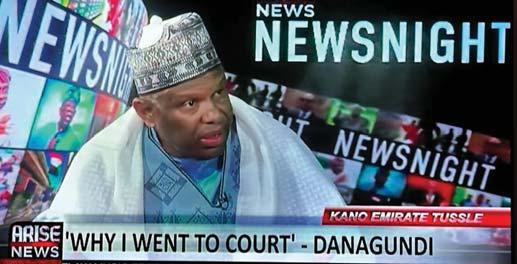
but he didn't do that. He went to the press,” the kingmaker added.
He recalled that Sanusi did the same to Rabiu Kwakwanso and President Goodluck Jonathan in the past, which he said led to his suspension by the former president.
“Kwakwanso wrote a letter. He (Sanusi) was working with First Bank. Kwakwanso wrote a letter to First Bank that they must dismiss him or remove him, otherwise, he will withdraw all our funds, Kano state funds, from the
bank,” he added.
He argued that 80 per cent of the people in Kano do not support what the State House of Assembly did.
“The governor can remove an emir if he wants to remove him. But he has to follow due process. You just don't remove an emir, like the Emir of Kano in a day, without any query. He was on a national assignment. He went to Lagos just for him to hear on radio that he had been removed. It is never done.
Nume Ekeghe
The Nigeria Inter-Bank Settlement System (NIBSS) has announced the appointments of Mrs. Ebehijie Juliet Momoh as Managing Director/Chief Executive Officer and Mr. Ugo Obasi as Chief Operating Officer of AfriGOPay Financial Services Limited (AFSL); a subsidiary of NIBSS. In a statement made available yesterday, NIBBS noted that this appointment marks a significant step forward in its mission to transform the payment landscape and improve the financial experience for businesses and consumers throughout Nigeria, Africa and beyond.
Mrs. Momoh brings an impressive breadth of experience and a forwardthinking vision to her pivotal role as MD/CEO. With over 30 years of extensive experience in the financial services industry; she began her career at Guaranty Trust Bank (GTB) and has held strategic leadership positions at Diamond Bank Plc (now Access Bank Plc), First City Monument Bank, Standard Chartered Bank and most recently, as Senior Vice President and Country Head, West Africa at Mastercard.
Her extensive background is marked by a proven ability to drive growth, foster innovation and implement strategic initiatives that align with the nation's financial objectives and values.
In her new role, Mrs. Momoh will lead the development, operations and acceptance of AfriGOPay Card. The card scheme is designed to deliver a seamless, secure and efficient payment system that meets the diverse needs of our populace.
By facilitating faster transactions, reducing costs and enhancing the overall user experience, AfriGOPay Card Scheme aims to position Nigeria at the forefront of the digital payment revolution.
Mrs. Momoh holds a bachelor’s degree in chemistry from the University of Lagos, an MBA from the University of Benin and Bangor University. She is a Member of the Chartered Institute of Bankers of Nigeria, Member, Chartered Banker Scotland & Wales, Member, Chartered Institute of Directors and a Fellow of the Institute of Credit Administration.
Mr. Obasi joins AfriGOPay Financial Services Limited as COO, bringing over 20 years of exceptional leadership experience in banking, information technology, and payments across West Africa. His career is distinguished by a series of strategic roles which he led and implemented transformative payment solutions throughout the region.
Before joining AFSL, Mr. Obasi served as the Director responsible for Business Development and Bank Partnerships at Ceviant Payments. His extensive

background also includes pivotal roles at Unity Bank Plc, Ingenico, and other card schemes, where he oversaw operations across Anglophone West Africa and played a crucial role in implementing transformative payment solutions.
As the COO of AfriGOPay Financial Services Limited, Mr. Obasi will be instrumental in driving operational excellence and innovation. He will oversee the development and implementation of strategic initiatives that aim to enhance the efficiency, security and user experience of AfriGOPay Card.
Commenting on the appointment, the Managing Director & Chief Executive Officer of Nigeria Inter-Bank Settlement System (NIBSS), Mr. Premier Oiwoh, said: "We are thrilled to welcome Ebehijie as the MD/CEO and Ugo as the COO of AfriGOPay to lead our national domestic card scheme.
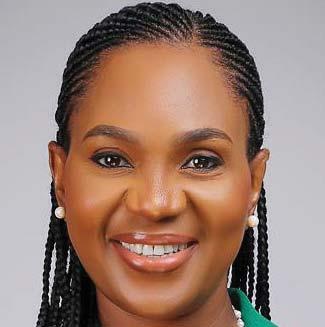
“Their proven leadership, innovative mindset and extensive experience in the financial and payment industry are exactly what we need for this transformative initiative, which is proudly Nigerian. We are confident that under their leadership, we will reach new heights in delivering cuttingedge card and payment solutions to our citizens."
Mrs. Momoh expressed her excitement about the new role, stating: "I am honored to join AfriGOPay at such a pivotal time. The launch of the national domestic card scheme underscores our commitment to innovation and excellence in the financial sector. I look forward to collaborating and working with our talented team to advance our vision to live and make a significant impact on the way payments are made across Nigeria, Africa and beyond."

“We are not civil servants. We are public servants. We are being fed by public money. So nobody has the right to remove you from what you are or what you have been doing just like that. It's not done,” he contended. He urged the government of Kano State to spend the N99.9 million it earmarked for the ‘renovation’ of Ado Bayero’s mini-palace to fix dilapidated primary schools in Kano. As of today, in the eyes of the law, Dan’Agundi argued that Bayero remains the Emir of Kano. “Not even the governor can change it because every citizen of this country relies on rule of law. The governor cannot do it. The governor does not have power just to remove any public servant, anyhow, without giving him fair hearing,” he posited.
The Edo State Governor, Mr. Godwin Obaseki, has linked Nigeria’s persistent rising inflation to the country’s inability to consistently produce and export goods and services, noting that the trend continues to affect the nation’s economy negatively.
Obaseki said this while receiving representatives from the World Bank led by the organisation’s Task Team Leader (TTL) for the Agro-Processing, Productivity Enhancement, and Livelihood Improvement Support (APPEALS) Project in Nigeria, Manievel Emmanuel Sene, who were on a courtesy visit at the Government House, Benin City, the Edo State capital.
Also present were: The Commissioner for Agriculture and Food Security, Hon. Stephen Idehenre; his Permanent Secretary and staff from his Ministry, and the National Project Coordinator Livestock Productivity and Resilience Support Project, Sanusi Abubakar, among others.
The team is in Benin City for the 3rd World Bank implementation mission.
The governor noted that the greatest problem of Nigeria is that the country is not producing enough for importation with no import buffers.
He said: “Nigerians are in a dire situation and one reason why we are having high food inflation is because of low production as we don't have any foreign exchange anywhere to substitute with imports. We are not
producing enough; that is the greatest problem facing Nigeria.
“Whatever we are producing is very low as a country and people now don't have import buffers anymore. When you fly into countries around the world, from their airspace you will see farm demarcation but the same can't be said of Nigeria.”
Noting that the state is a hub in the country, Obaseki said the reforms in the last seven and a half years are geared towards repositioning the State for economic growth and development, ensuring the influx of investors to boost the internally generated revenue.
Obaseki added: “Commercialisation is important to us so that when we produce, there is a ready market and linkage of the product to those that need it. I want to know and see those real farmers producing in the state, what they are producing and the size of the market.
“We have people who have invested, but they are not making money not because there is no demand but the capacity and sincerity to go ahead. We have given people money for livestock farming but it failed. It's not about money again but capacity and sincerity.”
The World Bank task team leader for the APPEALS project in Nigeria, Sene, said the Bank was focused on three outcomes which include productivity, commercialisation and resilience.

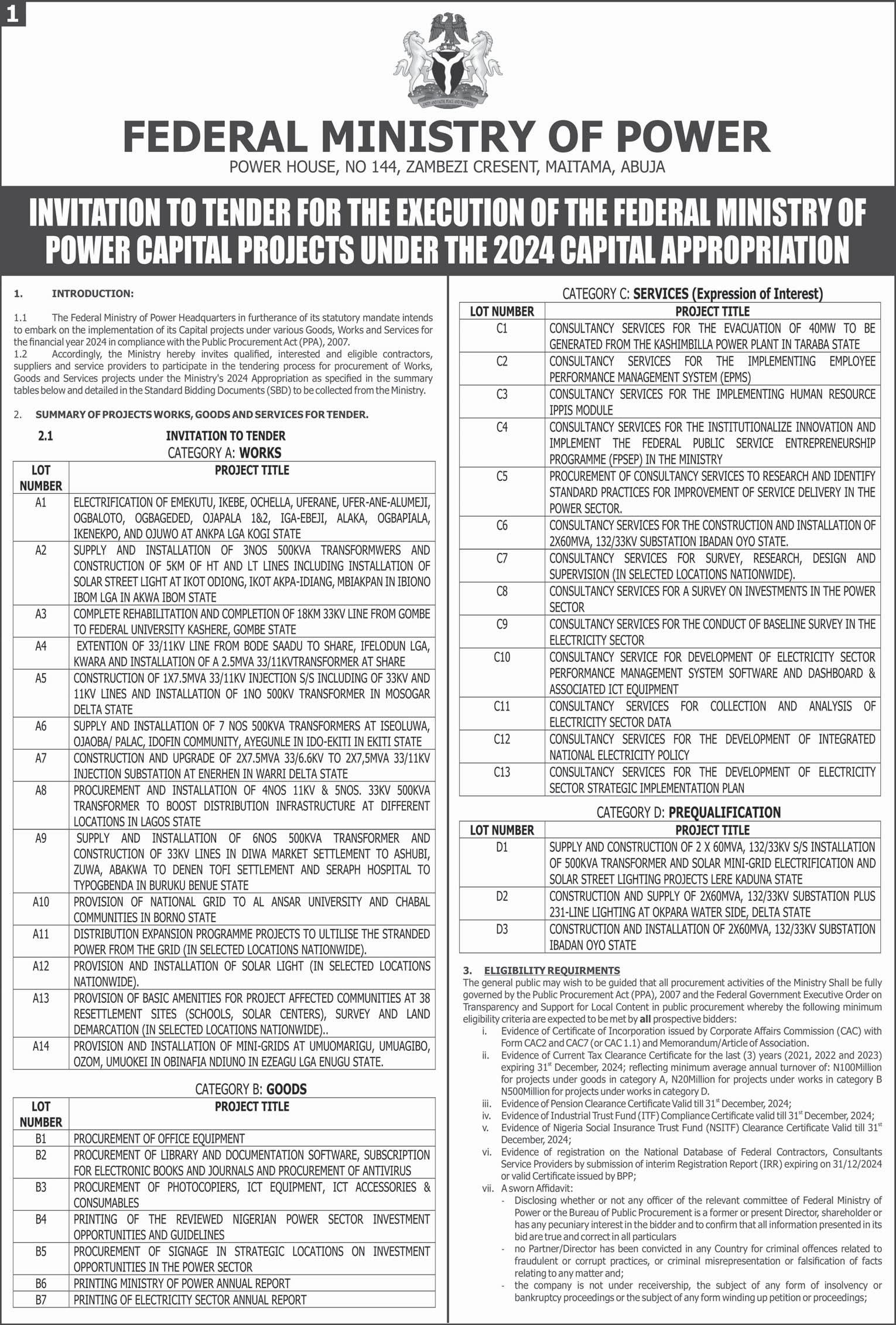

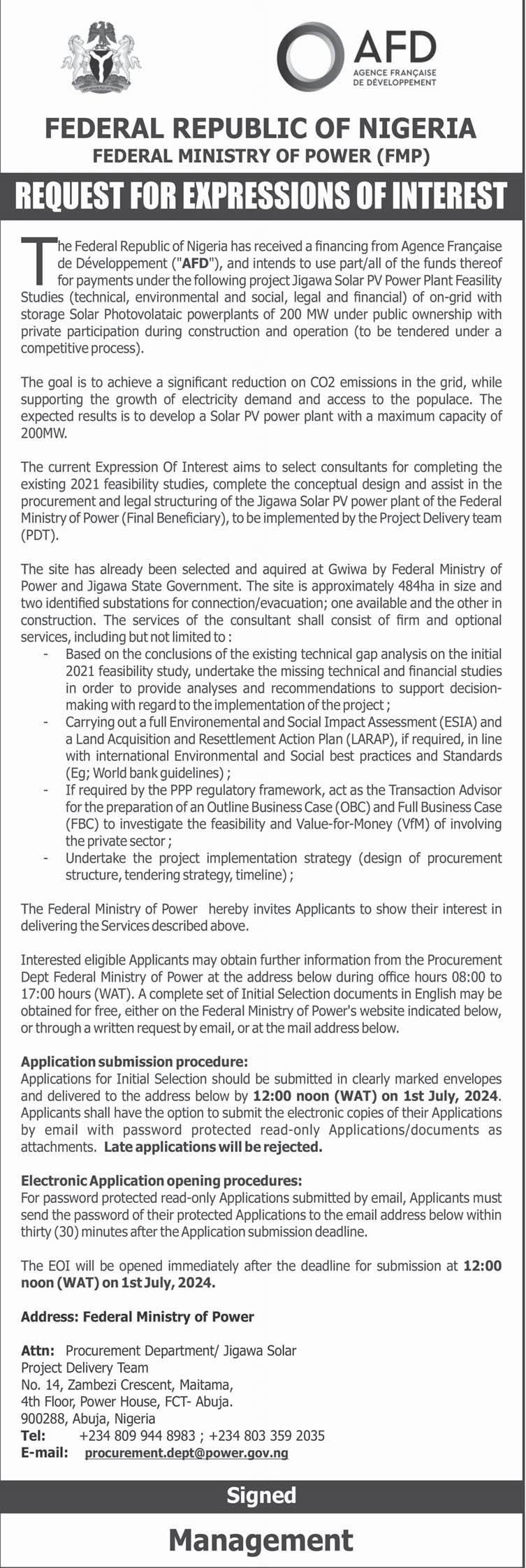
Email: deji.elumoye@thisdaylive.com 08033025611 SMS ONLY
For three days, over a thousand lawyers gathered in the ancient city of Kano with one singular task; making the nation’s judiciary more efficient, effective and saving Nigeria’s democracy, writes Alex Enumah
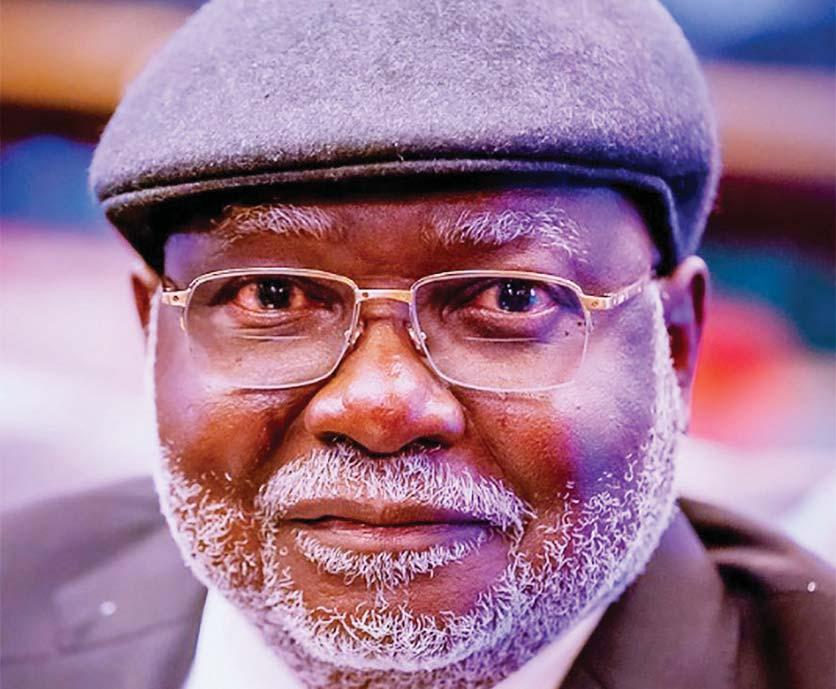
Just a few weeks ago, the Attorney General of the Federation (AGF) and Minister of Justice, Lateef Fagbemi (SAN) gathered members of the legal profession alongside other critical stakeholders in the justice sector at the Federal Capital Territory (FCT) to fashion out what was termed a clear strategy that will reposition and strengthen the justice sector.
Indeed the organisers of that programme noted that the move was to ensure greater access, transparency, accountability, fairness and efficiency in the entrenchment of the rule of law in Nigeria and administration of justice in general.
In the same vein, the Nigerian Bar Association Section on Legal Practice (NBA-SLP), also recently gathered the crème de la crème of the profession in the ancient city of Kano, also in a bid to uproot encumbrances to effective administration of justice in the country.
Although the occasion was the 2024 Annual Conference of the NBA-SLP, the theme, “Administration of Justice in Nigeria: Challenges and Reforms” was a reflection of the concerns about the state of justice administration in the country, and the need for urgent reforms.
According to the Chairman of the NBA-SLP, Mrs. Boma Alabi (SAN), the theme of the conference reflected the ongoing battle to continually improve on the practice of the legal profession and thereby ensure that justice is delivered and delivered expeditiously.
Alabi further observed that: “The conference aimed to critically assess the current state of the justice system, identify its most pressing challenges, and propose innovative solutions to foster a more efficient, equitable, and accessible legal framework for all Nigerians”.
In a welcome, the Chairman of the Kano branch of the NBA, Sagir Gezawa, pointed out that there was no better time to discuss the challenges of administration of justice in Nigeria than now. He cited public perception, political interference as well as the need to strengthen the system as reason for the theme.
Similarly, the Chairman of the Conference Planning Committee, Dr. Sulaiman Usman (SAN), who observed that it is the responsibility of legal practitioners to ensure the fair and efficient administration of justice however, lamented that the country’s justice system currently “faces a myriad of challenges that hinders its effectiveness”.
He listed them as: “The scourge of corruption to crippling backlog of cases, from inadequate funding to the lack of public confidence.” Usman added that it was during such conferences that they could find an opportunity to come together and engage
in critical discussions so as to “chart a course towards meaningful reforms”.
Chief Judge of Kano State, Justice Dije Aboki and the President of the National Industrial Court of Nigeria (NICN), Justice Benedict Kanyip, were among judges and lawyers who also clamoured for urgent reforms not just for the sake of achieving speedy and quality justice delivery but, especially to restore the dwindling respect and confidence of litigants and Nigerians in general.
According to Aboki: “As we gather here, we must engage in a candid dialogue about the state of justice in our great nation.
“The administration of justice in Nigeria faces numerous challenges that demand our immediate attention.
On the part of the judiciary, one of the foremost challenges is the issue of judicial independence.
“For justice to be truly impartial, the judiciary must be free from undue influence and interference from other arms of government. This independence is not for the benefit of the judiciary alone but is the bedrock of fair and equitable justice delivery to the citizens we serve”.
The Kano Chief Judge stressed that both the bar and the bench must continuously strive to promote the achievement of their independence to maintain the integrity of the judicial system. She, in addition, urged that the
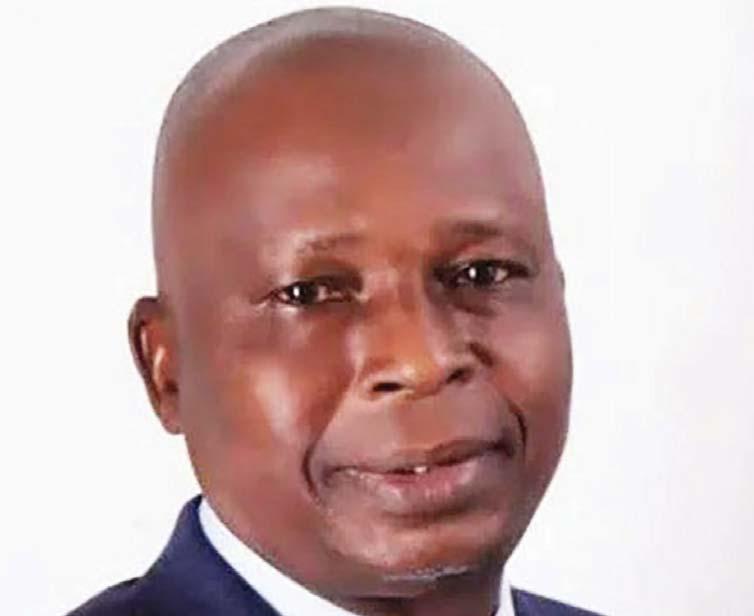
NBA as a pressure group, is not meant only to advocate for the interest of lawyers but also to serve as a mouthpiece for the judiciary, thus more should be done in advocating for judicial independence and autonomy.
Besides the issue of judicial independence, another pressing challenge she identified was the chronic backlog of cases in courts, wherein she noted that the saying “justice delayed is justice denied” rings true in that context. Others, she said, are the lack of accountability as well as unethical practices by lawyers.
Putting the current state of administration of justice in proper perspective, President of the National Industrial Court recalled the recent warning of Prof. Ademola Popoola of the Obafemi Awolowo University, Ile Ife, that “threats to the rule of law and independence of the judiciary” from various sources if not quickly arrested would spell doom for the judiciary and by extension the country.
According to Popoola: “Unless the Nigerian judiciary transmogrifies as the dictates of globalisation, information technology, development, etc impact on national laws, we may find ourselves left out of the scheme of things”.
Buttressing this point, the NICN president cited a former governor’s description of the Nigerian judiciary as “pathetic, too slow and often on the side of crooks rather than on the side of government or the innocent.”
Kanyip also recalled some senior lawyers describing courts as supermarkets where only the rich go to shop and that “Nigerian judiciary is crooked”.
He added that the most recent are the
As we gather here, we must engage in a candid dialogue about the state of justice in our great nation. The administration of justice in Nigeria faces numerous challenges that demand our immediate attention. On the part of the judiciary, one of the foremost challenges is the issue of judicial independence. For justice to be truly impartial, the judiciary must be free from undue influence and interference from other arms of government. This independence is not for the benefit of the judiciary alone but is the bedrock of fair and equitable justice delivery to the citizens we serve
descriptions of the Supreme Court as “now having judicial bandits and being the worst in 45 years”. Kanyip concluded that when insult takes the place of, or is disguised as, criticism, then the administration of justice and justice delivery are seriously imperilled. Based on the above scenario, participants immersed themselves into work for three days trying to proffer solutions to the myriads of problems confronting the justice sector. Various issues and topics were discussed with far reaching recommendations contained in a communique signed by the Chairman of the NBA-SLP, Alabi.
Recognising the pivotal role of the judiciary in the administration of justice, the conference emphasised the need to enhance judicial capacity. This, he said, includes providing judges with continuous legal education on emerging legal issues, expanding research support to enable informed decision-making, and ensuring that judges are adequately remunerated to attract and retain top legal talent.
Besides, the conference also discussed the importance of judicial diversity and the need to appoint judges who reflect the diversity of Nigerian society.
On the issue of ethical standards, the conference acknowledged the growing concern over the erosion of public trust in the legal profession due to unethical practices by some lawyers.
Participants called for stricter enforcement of ethical codes of conduct and disciplinary measures for lawyers who engage in frivolous litigation, delay tactics, and other unethical practices that undermine the integrity of the legal system.
The conference also proposed the establishment of a Judicial Public Complaints Committee to investigate allegations of judicial misconduct and promote accountability within the judiciary.
On the issue of Technological Innovation and Expanding Access to Justice, the conference focused on harnessing the transformative power of technology to modernise the justice system and improve access to justice for all Nigerians. By embracing digital solutions, the judiciary said it can reduce costs, improve case management, and make justice more accessible to citizens, particularly those in remote areas.
Consequently, the conference recommended the adoption of technological innovations in the justice system; acceleration of the digitalisation of court processes through electronic filing, online case management, and virtual hearings.
In addition, the conference called for investment in the necessary infrastructure and technology to support digital transformation as well as the provision of training and support to legal professionals and court staff to ensure effective use of digital tools.
Fidelis David examines the dynamics that necessitated the conceptualisation of 33 local council development areas for Ondo state by the late Governor, Oluwarotimi Akeredolu, the controversies that followed and the politics surrounding it’s recent scrapping.
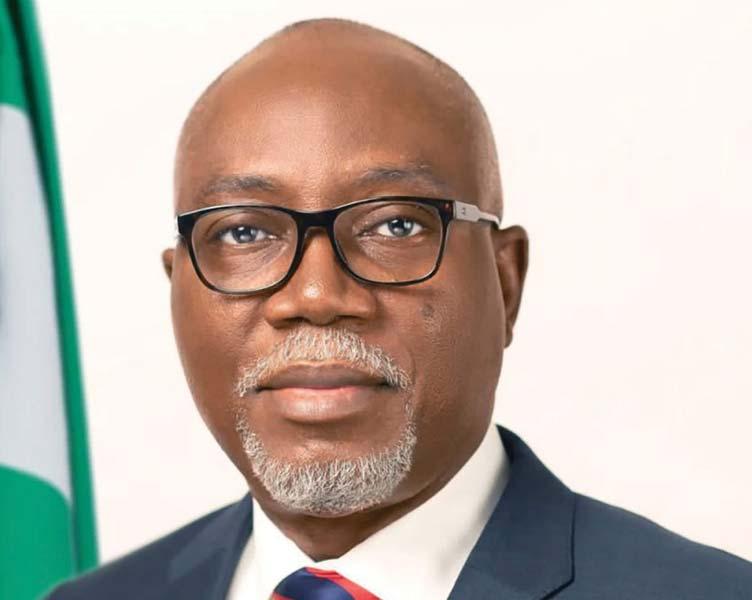
Since it’s creation on February 3, 1976 under the military regime of General Murtala Mohammed, Ondo state has continued to move in diverse fronts with developments in all facets.
Statistically, 19 people have served as governors vis 12 military governors and 7 civilian governors. Brigadier General Raji Rasaki (rtd) served the shortest term in office of seven months, while Dr Olusegun Mimiko served the longest term.
Mimiko was succeeded by late Governor Oluwarotimi Akeredolu (SAN) who died in Germany on December 27, 2023 after a protracted illness.
Arguably, Akeredolu is one of the governors of the coastal state who contributed it’s quota to the development of the coastal state in all facets, particularly, in the area of enhanced grassroots development.
But, unfortunately, Akeredolu’s vision and resolve to further promote the development of the land and people of the Sunshine State was deleted by the merciless hand of death because he provided leadership, not only for the South West zone, but for the entire Southern part of the country, when it became most imperative for courage to speak.
Hypothetically, the late governor observed that Ondo State is estimated above 3.4 million according to the 2006 census and actually 18th on the list of the most populated states in the country, hence the need to join the committee of South West states for expansion.
However, it is important to note that the Ondo State local government areas are further divided into three units/senatorial districts comprising Ondo North, Ondo Central and Ondo South.
Ondo North has Akoko North-West, Akoko NorthEast, Akoko South-West, Akoko South-East, Ose and Owo. Ondo Central has Akure North, Akure South, Ifedore, Idanre, Ondo East and Ondo West while Ondo South has Odigbo, Irele, Ile Oluji/Okeigbo, Ese-Odo, Okitipupa and Ilaje.
AKEREDOLU’S
Amid Protests and rejection, late Governor Akeredolu had on September 8, 2023 assented to the bill creating 33 local council development areas (LCDAs) in the state, a day after his return from Germany where he went for a three-month medical leave.
This, Akeredolu, said it was substantial step towards fulfilling his campaign promises and driving development to the sunshine state.
To him, the purpose of the yearnings and quest to bring government closer to the people and hence facilitate development at the grassroots must not be defeated through LCDAs.
The LCDAs were to co-exist with the existing 18 Local Governments in the state while the signing of the Bill into law, brought to 51 the total number of Local Councils in the state.
The bill was signed despite protests from some communities who described it as a political exercise aimed at ceding their ancestral lands to other communities, maintaining that undue political manipulation and chicanery were allowed to prevail over objectivity and rationality in the creation of the LCDA.
In the scrapped local government reform, Akoko had five LCDAs, Akure and Owo had four each while Ondo and Ilaje had three each. Idanre, Ose, Ile-Oluji and Okitipupa had two each while Ifedore, Ese-Odo, Odigbo and Irele were given one LCDAs each.
However, an Ondo State High Court last Thursday declared the creation of the 33 LCDAs Akeredolu as unconstitutional and illegal.
The Presiding Judge, Justice A.O Adebusuoye, said the LCDAs were not lawfully created and described the LCDAs created by the late governor as inchoate as it was effected in Ibadan, Oyo State, not in Ondo State and did not comply with sections 7 and 8 of the 1999 constitution.
Significantly, leaders of the four local governments in Akokoland, had approached the court to challenge the creation of the LCDAs in the area, alleging marginalisation of the area.
The leaders of the Akokoland which include, Akoko Southeast, Akoko Southwest, Akoko Northwest, and Akoko Northeast, through their lawyers, Mr Tolu Babaleye, dragged the state government to court challenging the marginalisation in the creation of the LCDAs.
Basically, Justice Adebusoye in his judgment held that the creation of the LCDAS did not comply with sections 7 and 8 of the 1999 constitution.
Technically, he agreed with the leaders of the four local government areas that there was no equitable distribution of the council areas among the existing local governments in the state.
However, the Akokoland leaders under the umbrella of the Akoko Development Initiative (ADI) who filed the suit, hailed the judgment, noting that the decision of the court represented the true position of law.
The ADI in a statement signed by the claimants in the suit including former Speaker of State House of Assembly, Hon. Bakitta Bello, Matthew Ofosile, and Lawal Rogbitan, said the judgment of the court represented the true position of law and the aspiration of the people of the four local government areas of Akoko.
According to them, they noticed the lopsidedness in the recommendation from the Executive Council to the State House of Assembly for the creation of the 33 LCDAs, in July 2023, and made representation to the Government in letters addressed to the
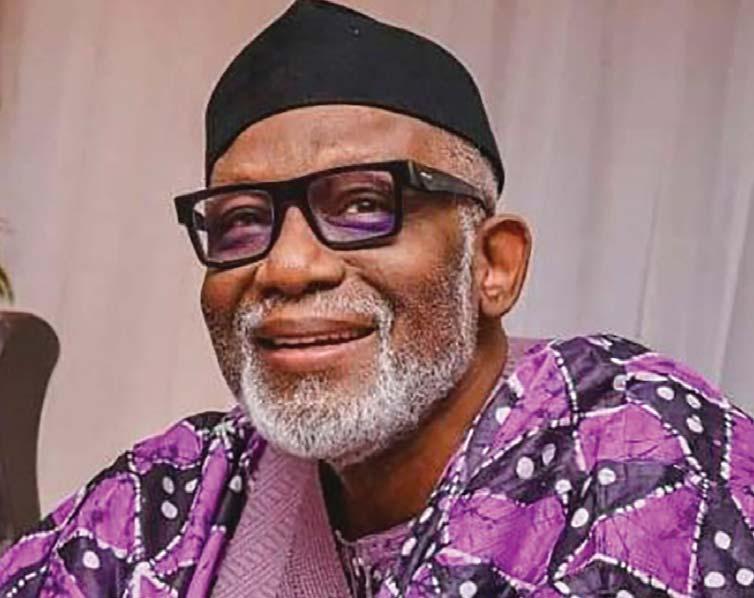
Governor and the Attorney General to correct the injustice meted to individual Local Government Areas and the entire Akoko land.
They said there was no adjustment made to the error pointed to the Executive Council before it forwarded its recommendation to the Ondo State House of Assembly for legislation.
“Given the protest at the House of Assembly by aggrieved citizens across the State, the House of Assembly adjusted her time-table which was designed to pass the bill in one sitting, to accommodate a hurriedly arranged public hearing on the bill.
“Representatives of Local Governments in Akoko presented memoranda at the hearing which was backed up with adequate records and data to assist the House arrive at equitable decisions.”
To many people, when the history of Ondo State is written for posterity, one of the critical areas of intervention where late Akeredolu’s name will be written in gold is the creation of the 33 LCDAs while some people, particularly, Ijaw and Akoko communities expressed dissatisfaction with the creation with the believe that it had strong political undertones.
Led by their traditional rulers, Sunday Amiseghan, the Kalasuwei of Apoi land; and Pere Egbunu, the Agadagba of Arogbo-Ijaw, the communities said the exercise to a great extent put them at a disadvantage in the state.
According to the communities, the whole of Okparama 1 and II and Ogidigba were ceded to Ilaje while part of Apoi 4 and 5 were ceded to Irele Local Government Area.
They posited that instead of ceding parts of their communities in Ese-Odo Local Government Area to other areas, more LCDAs should be created from Ese-Odo.
But, the governorship candidate of the Peoples Democratic Party in the forthcoming governorship election in the state, Agboola Ajayi, believes that the scraping of the LCDAs had political undertones.
Specufically, Ajayi condemned the decision of the court, saying the judgment was anti-people and would hinder development of Ondo communities.
Ajayi, who accused the administration of Governor Lucky Aiyedatiwa of backing the suit, said the people preferred a government that is close to them. He said
The LCDAs were to co-exist with the existing 18 Local Governments in the state while the signing of the Bill into law, brought to 51 the total number of Local Councils in the state. The bill was signed despite protests from some communities who described it as a political exercise aimed at ceding their ancestral lands to other communities, maintaining that undue political manipulation and chicanery were allowed to prevail over objectivity and rationality in the creation of the LCDA.
Aiyedatiwa also filed a suit against local government autonomy.
“The judgment is anti-people. It will be promoting an agenda that will hinder rapid development of the communities. The Ondo State government is behind the suit. They must appeal the judgment. The suit filed by the PDP was not to totally abrogate the LCDAs but illegal inauguration of Caretaker Chairman.
“If an Owl flies at night and a child dies the next day, you do not need to find out the cause of death”, he said.
In what could be described as swift twist, the state governor through the Attorney General of Ondo State, Dr Olukayode Ajulo (SAN), said it has promptly requested the Certified True Copy (CTC) of the judgment and upon receipt, a meticulous study and analysis will be undertaken, culminating in a comprehensive legal opinion to the Government of the State.
“Subsequently, all necessary measures, in accordance with our laws, will be taken to safeguard the interests of our citizens, foster peaceful coexistence, and uphold the rule of law. The Honourable Attorney General remains steadfast in his commitment to prioritizing the well-being and welfare of our citizens, working tirelessly to ensure that justice and the law are served.”
Besides, the Lucky Aiyedatiwa Campaign Organisation Foot Soldiers Independent Council (LACO-FSIC) on Saturday described a statement credited to Ajayi, who allegedly accused Aiyedatiwa of influencing a court judgement, as reckless, defamatory, and an attempt to bring the Nigerian judiciary to ridicule.
The group in a statement by its State Director of Information, Mr. Kayode Fasua, said that it was lamentable that Ajayi, by the statements credited to him, had lowered the bar for himself and his party, in the quest to become the next governor of Ondo State.
“While Agboola Ajayi has every right to express his opinion on a court verdict, he is not licensed to inpugn on the integrity of the sitting judge and the judicial institution, by claiming Governor Aiyedatiwa had influenced the judge to pass his judgement.
“We had waited for three days in the hope that Ajayi would deny the story or claim that he was quoted out of context, but alas, he regaled in silence, thus affirming that he said that the governor influenced the judge to pass a wrong judgement, which he considered the dissolution of the 133 LCDAs.
“Therefore, we are calling on the judiciary to take up Agboola Ajayi and put him on trial, to produce evidence of how Aiyedatiwa influenced the judge; otherwise, he should be sentenced accordingly,” the LACO-FSIC urged.
Until his death in 2021, the national publicity secretary of Pan-Yoruba socio-cultural group, Afenifere, Yinka Odumakin had on several occasions said Ondo state has a rich history as the bastion of resistance and a land intolerant of opportunism. To him, it’s easy to predict what Ondo people would tolerate and what they would not accept.
Therefore, literarily, the chilling accounts of such pushback adduced with the dynamics surrounding the creation of 33 LCDAs which has been nourished by Bruce Lee and James Bond films and clearly, after all, rejection wrapped in civility arouses no ill feelings.

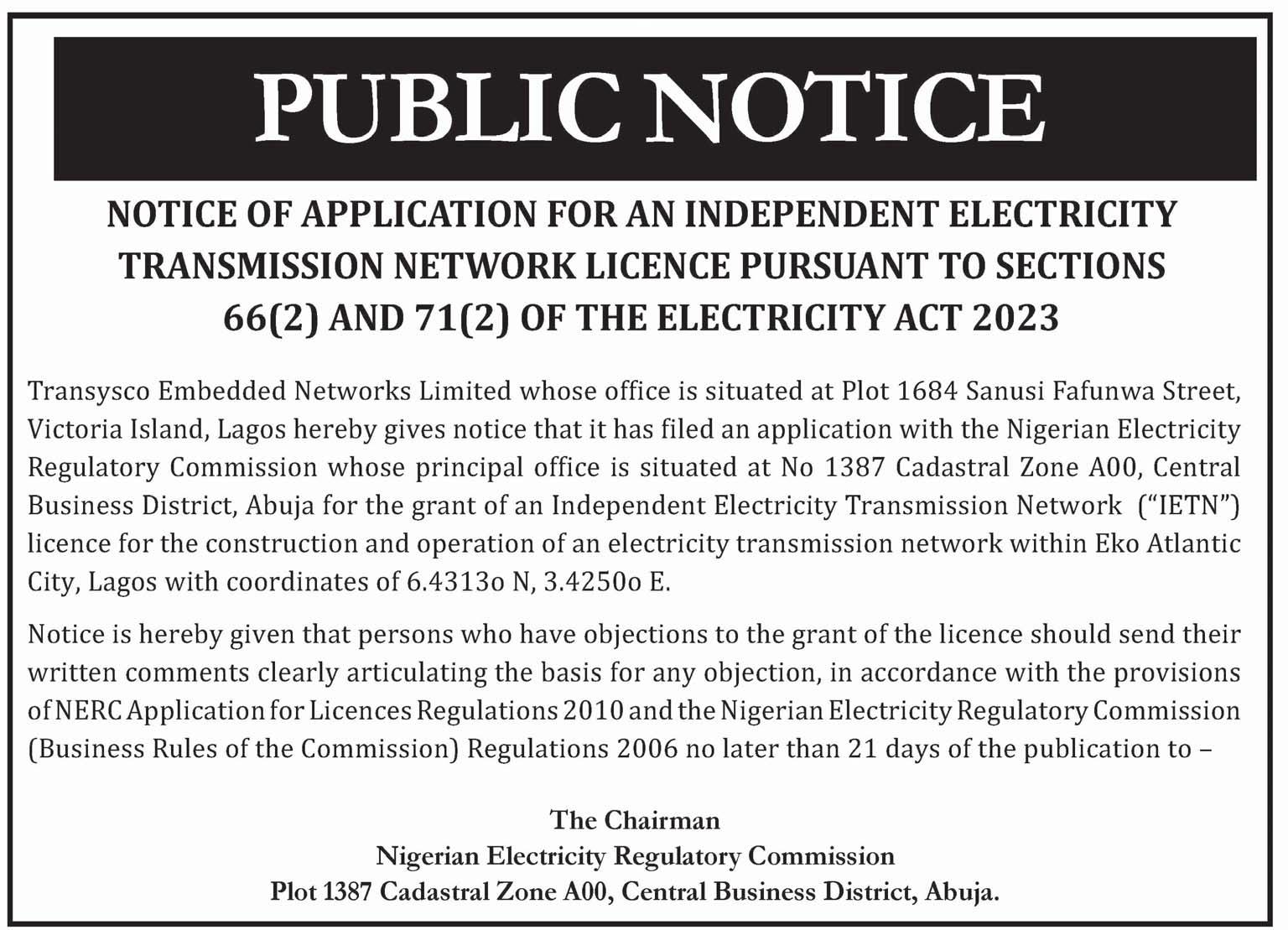
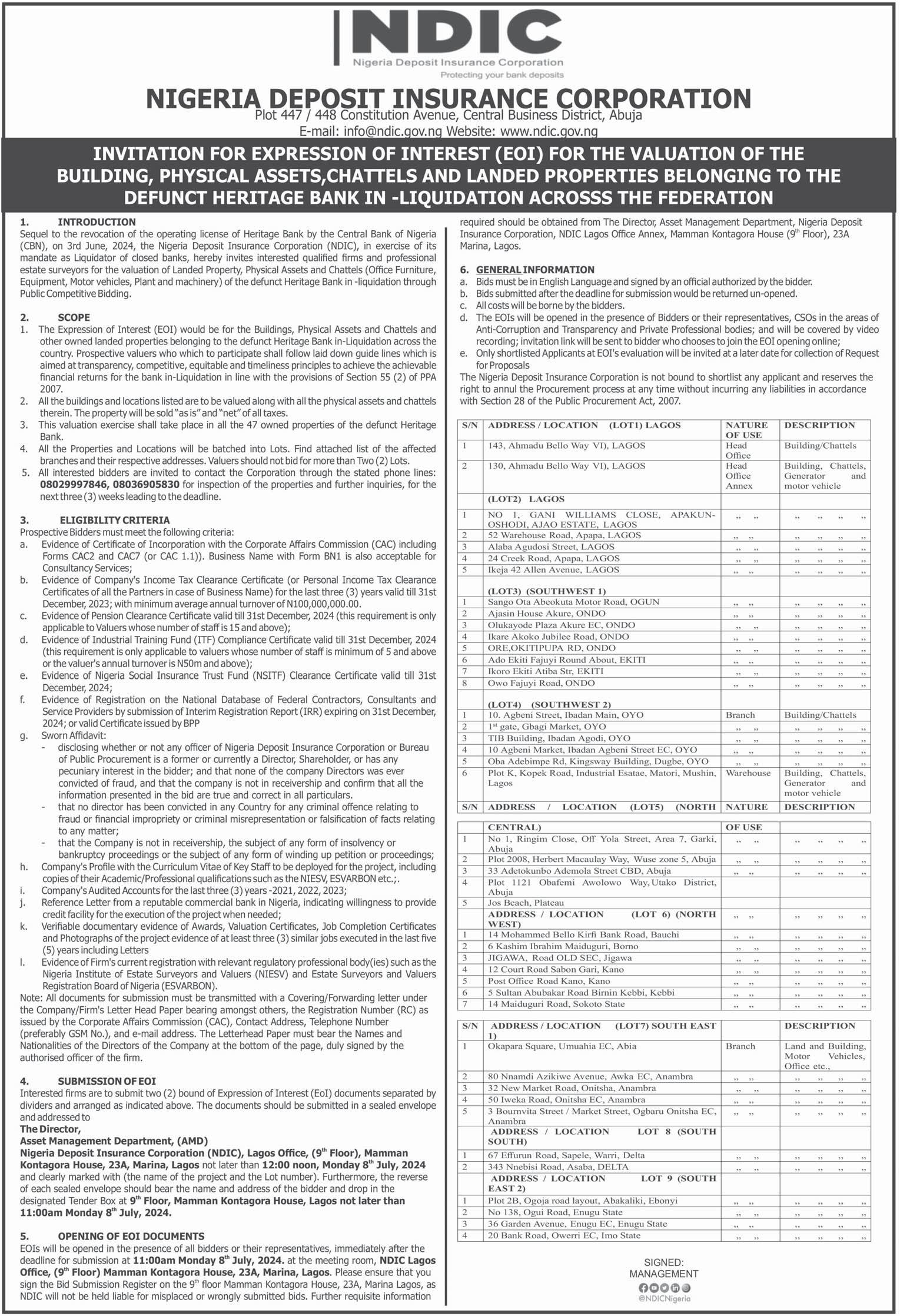
www.thisdaylive.com


opinion@thisdaylive.com
The reforms of the Tinubu administration have started bearing fruits, reckons DENNIS OCHEI
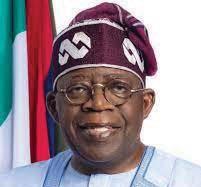
page 21
OKELLO OCULI contends that the blame heaped on ‘leadership’’ in Africa undermines the power of the community to fight against debt repayment

Leaders should be content with taking an occasional back seat and allowing their teams to go about their business, argues LINUS OKORIE

Leadership is integral to business success. It encompasses taking the lead and managing people within a company. Unfortunately, many leaders micromanage their teams in the name of leading them. Gartner defines micromanagement as the excessive supervision of teams, while Forbes describes it as a form of bullying since it’s about taking control of people. Simply, micromanagement is a management style that seeks to excessively direct and control teams to obtain immediate results through overinvolvement, exaggerating details, measuring progress frequently, and obsessing over information gathering. It is one of the quickest ways to shut down productivity, creative minds, and passionate teams.
Micromanagers are not deliberately trying to cause distress in the workplace, even though the outcomes are usually fed-up teams and burnout. In fact, people who micromanage rarely intend to disempower those they supervise. They often mean well and don’t realize the extent of their negative impact on others. Ron Friedman, a psychologist and behavioral change expert specializing in human motivation said, micromanagement is the motivational equivalent of buying on credit. Enjoy a better product now, but pay a hefty price for it later. When you micromanage, what you don't realize in the moment is the cost you pay. Often, you may not even get a better product or service due to damaged relationships and resentment build-up in teams.
There is a fine line between leadership and micromanagement. Micromanagers are too nervous to give up control because they don’t trust their team’s capabilities, thinking that overseeing every little detail will ensure performance is up to standard. However, micromanagement actually hinders, not helps, performance. The problem is, leaders begin to blur the lines between checking in on their teams regularly and becoming a micromanager.

When you’re constantly checking in on your teams, thinking that you’re moving forward, you might actually be interfering and hindering their performance. Leaders should be content with taking an occasional back seat and allowing their teams to go about their business. Not only will this approach help to establish a workplace that is conducive to success, but it will also create an organizational culture that prioritizes flexibility, autonomy, and creativity. Micromanagement is more common than many might think. According to a study by Trinity Solutions, 79% of respondents reported experiencing micromanagement in their current or previous job. This management style, where a leader closely observes the work of their subordinates, can lead to a myriad of problems. Warren Bennis summed it up well: “The manager has his eye on the bottom line; the leader has his eye on the horizon.”
Research shows that people have strong negative emotional and physiological reactions

to unnecessary or unwanted help. Even U.S. Army General George S. Patton said, never tell people how to do things. Tell them what to do, and they will surprise you with their ingenuity. Groups that adapt to a micromanagement style are either quietly rebellious or hapless, unable to make any independent decisions. This leaves you, the leader, constantly putting out fires, rather than focusing on the larger tasks that only you can perform. It’s crucial for leaders to understand that their team members are human capital. Not only do they get their jobs done, but they also ensure the smooth execution of daily operations, work directly with customers, and bring revenue to the company. Without them, your business will cease to exist.
Having a leader who looms over you, inspecting and criticizing every minor detail of a project is demotivating. You start to question whether your manager trusts your judgment, skills, or understands the work assigned to you in the first place. Research shows micromanagement is among the top three reasons teams resign. Micromanaging isn’t leading; it’s controlling. It isn’t mentoring; it’s antilearning. It isn’t supportive; it’s undermining. Your team needs to be granted the time, space, and authority to do their job. Summarily, micromanagement is not a leadership strategy because it is an unempowering and insecure way to lead.
In a recent study conducted by Leadership IQ, the optimal time a team member should engage with their manager is about six hours a week. This includes any email exchanges, group meetings, phone calls, one-on-ones, etc., which all contribute to the team feeling more engaged, inspired, and innovative. Anything more than these causes undue stress, demoralizes your team, and is an executive waste of time. On the other hand, when the hours are less than six, the team feels less engaged and inspired. Steve Jobs rightly said, it doesn’t make sense to hire smart people and then tell them what to do; we hire smart people so they can tell us what to do. Simon Sinek added, when we tell people to do their jobs, we get workers. When we trust people to get the job done, we raise leaders.
The challenge of balancing oversight with autonomy can be tricky. However, it is understandable that micromanagement is often born from a place of concern and the desire for perfection. By default, it might seem easy to just trust that your teams will do their work and perform at their best, but we all know that isn’t really true, nor would it work. Here’s the dilemma leaders face: being too involved with their teams' work makes them feel pressured and incapable, but not being involved at all makes them feel dissatisfied and disengaged. How do you find the balance then?
Dear leader, consider this: every person on your team is a crucial part of your organization’s success. Avoiding micromanagement begins with setting clear expectations for your team. This involves defining goals and desired outcomes in a way that is both understandable and achievable for your teams. It's crucial to communicate these goals effectively and ensure that each team member understands their role in achieving them.
Effective delegation is another key solution to avoiding micromanagement. Leaders need to trust their team members with responsibilities and provide them with the necessary resources and support to complete their tasks. This involves clearly communicating the scope of tasks, expected outcomes, and deadlines, while allowing team members the flexibility to approach their work in their own way.
Providing autonomy to teams is essential for fostering a healthy work environment. Encouraging decision-making at all levels empowers team members to take initiative and make decisions within their areas of responsibility. Creating a safe environment where teams feel free to experiment and learn from their mistakes is vital.
Focusing on results rather than processes. Leaders should evaluate teams based on the outcomes they achieve rather than the exact methods they use. This approach provides teams with the freedom to utilize their unique skills and creativity to achieve the desired results. Building trust within the team is fundamental to effective leadership. Transparent communication about organizational goals, changes, and decisions helps to build reliability and trust. Leaders should foster a culture where two-way communication is encouraged, allowing teams to feel heard and valued.
Empowering your team through investment in training and development is another essential strategy. Providing opportunities for ongoing learning and development helps teams enhance their skills and confidence, enabling them to handle their responsibilities more effectively.
Okorie MFR is a leadership development expert spanning 30 years in the research, teaching and coaching of leadership in Africa and across the world. He is the CEO of the GOTNI Leadership Centre
 Editor, Editorial Page PETER ISHAKA
Email peter.ishaka@thisdaylive.com
Editor, Editorial Page PETER ISHAKA
Email peter.ishaka@thisdaylive.com
Regulations on noise pollution should be enforced
Scientists have determined that noise, ordinarily, is not a bad thing. But it becomes a pollutant in the environment when it rises to unbearable levels. In from electricity generating sets at home blaring at street-sides as vendors of all sorts of items compete for attention. Noise also emanates from sites, etc. But the real purveyors of noise are the religious organisations that have, in a bid to outdo one another, become a nuisance in most urban and rural areas across Nigeria. We believe that people can worship their God without disturbing the peace of others who need the solitude of their homes
It is unfortunate that Nigerians are forced to adapt to unbearable noise levels in their environment, even at the risk of their mental and physical health.

attention, particularly to enforce existing laws or to promulgate regulations for the good of all.
Doctors are concerned that pollution worsens spirals underlying health issues, particularly cardiovascular challenges like blood pressure levels and stress related diseases, sleeping disorders, fatigue, as well as hearing problems
The World Health Organisation (WHO) sees noise pollution as one of the most dangerous environmental threats to health. In several communities across the country, including in urban centres, churches, mosques, hotels, event centres, lounges, clubs and party organisers tune their sounds to high heavens without any regard for the convenience or wellbeing of others.
noise especially in Lagos, many residents have had to petition the Lagos State Environmental Protection Agency (LASEPA). From time to time, the agency has had to seal some hospitality facilities and worship centres. The government says the issue of noise pollution has become a perennial problem that is posing a serious threat to the sanity, stability and peace of mind of the state’s residents. We believe the Lagos authority is on the right path in acting against those causing noise pollution and we encourage other states to pay similar
T H I S D AY
EDITOR SHAKA MOMODU
DEPUTY EDITOR WALE OLALEYE
MANAGING DIRECTOR ENIOLA BELLO
DEPUTY MANAGING DIRECTOR ISRAEL IWEGBU
CHAIRMAN EDITORIAL BOARD OLUSEGUN ADENIYI
EDITOR NATION’S CAPITAL IYOBOSA UWUGIAREN THE OMBUDSMAN KAYODE KOMOLAFE
EDITOR-IN-CHIEF/CHAIRMAN NDUKA OBAIGBENA
GROUP EXECUTIVE DIRECTORS ENIOLA BELLO, KAYODE KOMOLAFE, ISRAEL IWEGBU, EMMANUEL EFENI
DIVISIONAL DIRECTORS SHAKA MOMODU, PETER IWEGBU, ANTHONY OGEDENGBE
DEPUTY DIVISIONAL DIRECTOR OJOGUN VICTOR DANBOYI
SNR. ASSOCIATE DIRECTOR ERIC OJEH
ASSOCIATE DIRECTOR PATRICK EIMIUHI
CONTROLLERS ABIMBOLA TAIWO, UCHENNA DIBIAGWU, NDUKA MOSERI
DIRECTOR, PRINTING PRODUCTION CHUKS ONWUDINJO
TO SEND EMAIL: first name.surname@thisdaylive.com
Doctors are concerned that pollution worsens spirals underlying health issues, particularly cardiovascular challenges like blood pressure levels and stress related diseases, sleeping disorders, fatigue, as well as hearing problems. It should also be a source of concern that regardless of robust regulations the federal government instituted to curb noise pollution, there has been lack of will to enforce them. For instance, there is the National Environmental (Noise Standards and Control) Regulations of 2009 that has all manner of provisions which the government believes will enthrone a healthy environment for all people in Nigeria, the tranquility of their surroundings and their psychological wellbeing by regulating noise levels and generally, to elevate the standard of living of the people. The regulation prescribes the maximum permissible noise levels a facility or activity to which a person may be exposed, for the control of noise and for mitigating measures for the reduction of noise.
In all of these rules, the government stipulates maximum permissible noise levels from a facility in the general environment and that there will be exemptions for those who can prove that high noise levels from their facility is inevitable. Regardless, those who seek exemption are required to apply for a permit to emit noise in excess of the permissible levels, and this permit can be revoked if there is violation of the terms and conditions. Besides, whoever considers that the noise levels being emitted, or likely to be emitted, may be higher than the permissible noise levels are expected to complain in writing but must show or prove personal loss or injury or discomfort caused by the emission of the alleged noise.
To engender a tranquil environment across the nation, government at the state and federal levels must begin to enforce their laws on noise pollution.
Letters in response to specific publications in THISDAY should be brief (150-300 words) and straight to the point. Interested readers may send such letters along with their contact details to opinion@thisdaylive.com. We also welcome comments and opinions on topical local, national and international issues provided they are well-written and should also not be longer than (750- 1000 words). They should be sent to opinion@thisdaylive. com along with photograph, email address and phone numbers of the writer.
For ages, Rivers State has been a hot spot of political upheavals. The reason for this is not far-fetched.
Rivers, amongst the states in the Niger Delta Region endowed with oil & gas resources, is home to the largest concentration of oil companies, their headquarters and administrative apparatus, with However, instead of using the humongous resources to create atmosphere of peace and orderliness across the state, the contrary has always been the case, as the contending political forces always attempt to exercise dominion over each other, leaving in its wake human carnage and large scale destruction.
It’s however stunning to note that the people of Rivers have been so much accustomed to this situation, that violence across the state has become a way of life. During the reign of one of the highly revered political leaders in the state, Peter Odili, the situation was the same. The tense political atmosphere remained the same during the era of Rotimi Amaechi, when the immediate past Transport Minister had to deploy the state resources to battle the politiJonathan, in order to retain his hold on power.
Eventually, the forces supported by the federal might prevailed, and Amaechi was shoved out of relevance.
reign of the incumbent Minister of FCT, Nyesom Wike and forces loyal to Amaechi, with the former enjoying dominance over the immediate past Transport Minister and his political faithful.
On account of the above development, Nyesom Wike was abletributing to the emergence of the incumbent governor, Sim Fubara and other political holders, both at the state and national assembly.
But, no sooner that the incumbent governor got inaugurated -
political prominence.
Thereafter, the governor’s political faithful in a ‘commando style’ invaded the Rivers State house of assembly, set the historic chamber ablaze leaving members scampering for their safety.
But, the centerpiece of this write-up is the political resolution initiative packaged by the president and agreed by the governor and the FCT Minister, to ensure that the Garden City return to atmosphere of piece and orderliness, which the governor has com-
Key aspect of the political resolution package which the governor was expected to abide with, was to re-present the Appropriation Bill for the house of assembly to deliberate, approve and return back to him for his assent. He bluntly refused to do that, as he’s been implementing the appropriation bill with impunity without recourse to the assembly.
Also, the leadership of the House, under Speaker Martin Amaewhule, a Wike loyalist, is to be recognized, along with the 27 lawmakers who defected from the People’s Democratic Party. The governor has also jettisoned this, without due regard to the presidency.
The governor and his allies are expected to withdraw all court cases related to the crisis. This has not been done!
The Assembly members are expected to enjoy autonomy to choose their location and conduct their business without any interference whatsoever from the Executive, since the governor and his allies had pulled down the house of assembly by setting it ablaze. The governor has refused to do this, as he has made it a point of duty to continually disrupt the assembly proceedings.
Kola Amzat (FCA, FCIB), Lagos based Financial & Management Consultants
“The fault dear Brutus is not in our stars but in ourselves”. William Shakespeare’s Julius Caesar.
In the above quote, Julius Caesar was urging Brutus to pay attention to what he was about to unfold. In the same vein, we urge President Bola Tinubu to listen to what the people he governs are saying. It is more than a year since the Bola Tinubu administration took over the reins of government in Nigeria. Late Stephen Osita Osadebe who was a philosopher of Igbo music waxed a record ‘Osondi Owendi’ which literally translates to some people will like you while others won’t.
Irrespective of what transpired at INEC, the Courts etc. the fact is that there is a government in place and it is in the interest of most Nigerians that it succeeds to reduce the level of suffering in the land. There will therefore be criticisms which the government will be advised to take in its stride.
Up till now, what Nigerians seem to be getting is surfeit of “be patient, be patient”. A friend of mine asked rhetorically whether we have to be patient unto death.
Some actions of government defy rhyme and logic and one recent example is the speed with which the National Assembly and the Presidency reintroduced the old National Anthem. The point that it was written by an English woman is puerile and silly as it lacks logic. The name Nigeria was given by the wife of Lord Lugard. Have the Presidency and the Parliament bothered to take a look at the National Flag which is as dull as it is uninspiring? One sometimes gets the impression that the government is more absorbed in chasing shadows than tackling the pressing national problems.
When Buhari was running for the office of the President, a journalist asked what he would do with the Presidential fleet and he said he would fly by commercial airlines and sell the fleet. He didn’t. Rather when he had health challenges and had

to go to London for treatment, he took a Presidential Jet which was packed in London paying daily parking charges until he was well enough to come back. Bola Tinubu now seems to be following in Buhari’s footsteps.
During Democracy Day June 12th in memory of M.K.O. Abiola, the President slipped at Eagle Square. I don’t think anybody wishes Bola Tinubu to be sick but any and everybody could be sick. The spin doctors
who are Tinubu’s handlers rather than leveling up with the people came up with the ridiculous message that the President was doing ‘dobale’ to the Nigerian people.
Chief Olusegun Obasanjo, another Yoruba President, who served two terms did not ‘dobale’ to Nigeria. Yar’aduwa and Buhari did not do the asalamaleku somersault when they were President.
You win the people’s sympathy and love
when you are openly level with them. Tell the people the truth. Being a superman is not a prerequisite for the job.
When Bill Clinton was President of America and the most powerful man in the world, he had to undergo surgery and this was on live television to the whole world and the same also when his wife Hilary had a blood clot, the whole world watched her surgery until the clot was dislodged. Now the Parliament has approved two new planes for the President and the Vice President. This is probably to rob the President’s and the VP’s back for the N160 million SUVs for members of Parliament. It looks like a case of scratch my back, I scratch your back.
It is important to remind the Parliament and the Executive that the British Prime Minister Flies First Class British Airways when he goes on foreign trips. The President of Uruguay is still riding a 1987 Volkswagen. He says that is all he needs. His security is only two policemen and a three-legged dog ‘Emmanula’ and he and his wife live in the wife’s farm house.
Mr. President, my advice is that you don’t let your spin-doctors cast you in a fuddy-duddy mold of a decrepit old fart. They are not doing you any favours, rather they are alienating you from the people.
Very recently, two Prominent Nigerians, Chief Olusegun Obasanjo and Chief E.K Clarke, on different occasions have said the Tinubu Presidency is suppressing the Igbo people just like Buhari did. All I will add is that as long as the Igbo are not given the level playing field to express their full potential, so long will Nigeria not occupy her rightful position in the community of nations. Nobody can dispute this. Mr. President, what is good for the goose is also good for the gander.
Let me sign off with the words of Lady Patience Jonathan: “There is God ooooo” •RT. Hon. Dr. Eddie Mbadiwe writes from Abuja
Donald Trump made two speeches at the weekend, urging Christian supporters to go to the polls for him one last time and courting Black voters in Philadelphia by promising to fix a city “ravaged by bloodshed” even as data shows a decline in violent crime.
If elected in November, the Republican presidential candidate told a rally of several thousand at
Philadelphia’s Temple University, he would give police “immunity” to do their jobs and “surge” federal resources to cities battling violence.
Trump dismissed as “fake” FBI statistics that showed a continued drop in levels of violent crime and murder across the country in the first three months of 2024, and accused Democratic President Joe Biden of lying about the data.
“Under crooked Joe Biden the City of Brotherly Love is being
ravaged by bloodshed and crime,”
Trump said in an arena in a historically Black neighbourhood, addressing an audience more diverse than a typical rally, but still largely white.
“Under the Trump administration we are going to bring law and order and safety back to our streets,” Reuters quoted him as saying.
The promise to fight crime was part of a larger pitch to Black and Hispanic people, who form more
than half the city’s population. The Trump campaign has been encouraged by some opinion polls showing he may be gaining ground with these voters this election cycle.
As he often does, Trump portrayed migrants in the country illegally as dangerous and burdensome. He claimed, without citing evidence, that they were taking jobs from Black and Hispanic workers.
“Joe Biden’s open border has
Emmanuel Addeh in Abuja
At least seven people were killed and 100 kidnapped on Saturday night when gunmen attacked a rural community in Nigeria’s north-western Katsina state, residents and police said yesterday.
A Reuters report said it was the latest attack against residents in the north of the country.
Armed gangs, known locally as bandits, have frequently raided communities in the northwest, kidnapping residents, students and motorists for ransom.
Residents said gunmen on motorbikes arrived in Maidabino village in Danmusa local government area of Katsina, and started shooting
sporadically, forcing residents to flee.
Hassan Aliyu told Reuters by phone that the attack took residents by surprise and dozens of women and children were confirmed missing.
“They killed seven people, including burning two children,” Aliyu said. “They spent more than six hours destroying our properties,” he added.
Auwalu Ismail, another resident, said the gunmen first blocked all roads leading to Maidabino before the attack.
“They burnt down our shops, vehicles, and took away our livestock. They also kidnapped my wife and more than 100 women and children,” he said.
Katsina state police spokesperson
Abubakar Aliyu Sadiq confirmed the attack and the seven deaths but would not say whether anyone was missing. He said police were investigating.
“The remaining men who did not flee are living in fear ... and waiting to hear news about their abducted loved ones,” said Muhammad Sani, whose sister was abducted.
Meanwhile, more than 1,000 people died during hajj this year, according to a Reuters tally, as extreme heat hammered the nearly 2 million who took part in the annual Muslim pilgrimage to Mecca.
Most of dead were Egyptians. Security and medical sources told Reuters on Sunday that the Egyptian death toll had risen to 672 and
another 25 were missing.
A total of 236 Indonesians died, according to Indonesian government data, while India’s External Affairs agency said 98 Indian citizens died during hajj.
Further deaths were reported by Tunisia, Jordan, Iran, and Senegal, making this year’s total toll at least 1,114 people, according to a Reuters tally.
An Egyptian crisis unit tasked with investigating the situation said on Saturday it has suspended licences of 16 tourism companies and referred them to the public prosecutor, accusing them of being responsible for deaths it said were mainly among pilgrims not registered under the official system.
also been a disaster for our great African-American and HispanicAmerican populations,” Trump said.
Trump has little chance of winning Philadelphia, which Biden won easily in 2020. But he hopes to narrow the margin in the region, key to the tally in Pennsylvania, a hotly contested state because it can swing either to Republicans or Democrats.
Trump, who has falsely claimed that systematic cheating cost him Pennsylvania in 2020, told the crowd, “Philadelphia was one of the most egregious places anywhere” for voter fraud. “We are not going to let it happen again,” he stressed.
State lawmaker Malcolm Kenyatta, a Democrat, said Black voters remember Trump’s history promoting the bigoted conspiracy theory that questioned whether Barack Obama, the first African American president, was born in the United States, and policies he pursued that hurt the Black working class.
“Donald Trump is in a Black place, but Donald Trump does not give a damn about Black people,” Kenyatta said at a briefing at a Biden campaign office in Philadelphia before the rally.
Trump and Biden will face off in the first presidential debate of the 2024 race in Atlanta on Thursday.
During a pre-rally stop at a cheesesteak shop in Philadelphia, Trump told supporters he knew whom he planned to choose as his running mate and that person was
likely to be at the debate, a video posted to social media by a campaign spokesperson showed.
At an earlier event on Saturday in Washington organised by the Faith and Freedom Coalition, a conservative Christian group, the former president urged churchgoers to go to the polls for him one last time in November.
“Christians go to church, but they don’t vote that much. You know the power you have if you would vote,” Trump said. “You gotta get out and vote. Just this time. In four years you don’t have to vote, OK? In four years don’t vote, I don’t care,” he added.
Trump briefly mentioned the politically sensitive issue of abortion, a topic important to the group, reiterating his position that curbs on the procedure should be decided by voters on a state-by-state basis. That stance contradicts the view of most conservative Christians, and Trump’s reticence to push for or even discuss additional federal regulations speaks to how sensitive the issue has become for Republicans.
Trump has repeatedly said Republicans risk electoral defeat if they take too tough a line on abortion rights.
The party’s lacklustre performance in the 2022 congressional midterm elections has been widely blamed on the Supreme Court’s Dobbs ruling that year, which removed most constitutional protections for the procedure.
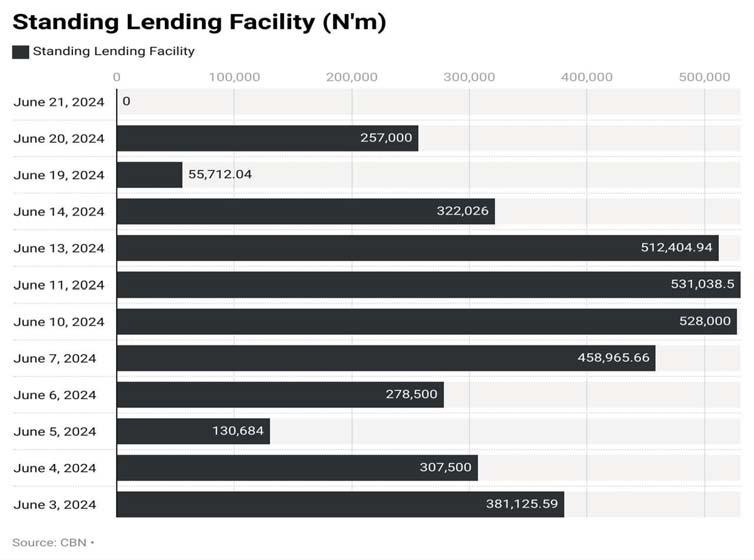
Kayode Tokede
Following monetary rates tightening by the Central Bank of Nigeria (CBN), which has led to illiquidity in the banking system, banks and merchant banks in Nigeria in just three weeks of June 2024, borrowed an estimated N3.76 trillion from the CBN to meet their daily obligations.
The central bank has continued to tighten its monetary rates amid spiralling inflation and unstable foreign exchange market.
In May 2024, financial institutions borrowed about N10.87 trillion from the CBN.
This brings total borrowing by banks from the central bank in five months of 2024 to N53.7 trillion
as against N10.02 trillion in five months of 2023.
The CBN provides a Standing Lending Facility (SLF) window, a short-term lending window for banks and merchant banks, to access liquidity to run their day-to-day business operations.
THISDAY findings showed banks and merchant banks have since the beginning of this year consistently borrowed from the CBN to meet their daily obligations amid rising inflation and unstable foreign exchange market.
Analysts have attributed the increasing banks borrowing from CBN to dwindling naira at the foreign exchange market, coupled with rising inflation rate and the
mopping up of excess liquidity in the financial sector by the CBN.
“The development points to lack of liquidity on the part of banks. Monetary policy has been tightening and this has led to low liquidity. It is cheaper for banks to borrow from the CBN. This development is not positive but negative. We cannot continue to tighten because it will reflect of economic growth, ”said Vice President Highcap Securities, Mr. David Adnori said.
On his part, the Chief Executive Officer of the Centre for Promotion of Private Enterprises (CPPE), Dr. Muda Yusuf stated, “This is a reflection of liquidity pressure some of the banks are going through.

The facility is typically short term.
“This may not necessarily indicate that the banks are stressed or unstable. Meanwhile, the recapitalisation of banks is long overdue. The minimum capital requirements of N25 billion is no longer adequate, if discounted for inflation.”
Conversely, banks and merchant banks deposited about N2.57 trillion with the CBN in three weeks of June 2024, bringing total deposit between January to June 2024 to N5.55 trillion.
Financial institutions deposited cash with the apex bank using the Standing Deposit Facility window (SDF). SDF has recorded significant increase this year despite CBN
directive to lend 50 per cent of deposit to real sector.
Recently, the CBN governor, Mr. Olayemi Cardoso announced that the removal of the cap on remunerable SDF is to increase activity in the SDF window and manage liquidity. CBN in a circular dated 2014 had disclosed that the remunerable daily placements by banks at the SDF shall not exceed N2billion.
According to the CBN, “The SDF deposit of N2billion shall be remunerated at the interest rate prescribed by the Monetary Policy Committee from time to time. Any deposit by a bank in excess of N2 billion shall not be remunerated. The provisions of
this circular took effect on July 11, 2019.”
However, the CBN has over the years maintained that strong patronage at the SDF confirms healthier liquidity in the banking system. CBN had maintained that the strong patronage at the SDF confirmed healthier liquidity in the banking system, stressing that banks and merchant banks were in search of better yields. Analysts believe financial institutions prefer depositing with the CBN, as it is safe and risk-free.
On the backdrop of impressive earnings, Guaranty Trust Bank Holding Company Plc (GTCO) and United Bank for Africa Plc (UBA) outpaced other banks as the most profitable financial institutions by Return on Equity (RoE) in the 2023 financial year.
RoE is a ratio that provides investors with insight into how efficiently a company (or more specifically, its management team) is handling the money that shareholders have contributed to it.
GTCO, according to THISDAY investigations declared 44.82 per cent RoE from 18.65 per cent in 2022.
The 23.61 per cent RoE growth recorded by GTCO showed efficiency in generating income and growth from its shareholders amid a punitive regulatory environment.
“The Group’s performance remained resilient and responsive in the face of daunting challenges ranging from elevated inflation, heightened FX risks that characterised most of 2023 financial year.
“It adapted by deploying timely, appropriate, and efficient strategies to navigate the vagaries of macros across its Jurisdiction of operations, posting pre-tax Return on Average Equity of 44.80,” the bank said in a presentation to investors and analysts.
The total dividend payout by
GTCO management stood at N3.20 kobo for 2023 financial year, about three per cent increase from N3.10 kobo paid to shareholders in 2022 financial year.
UBA closely trailed GTCO as its RoE closed 2023 FY at 41.20 per cent from 19.70 per cent reported in 2022.
The Pan-African financial institution in 2023 performance reported N757.7billion profit before tax, an increase of 277 per cent from N200.9 billion in 2022, while its profit after tax stood at N607.7 billion in 2022, a growth of 257 per cent from N170.3 billion reported in 2022.
Continued on page 24
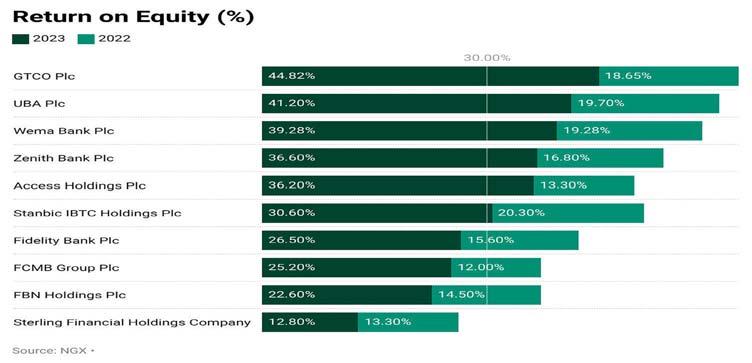

Director General, West Africa, African Development Bank Group (AfDB), Mr. Lamin
signing ceremony of the AfDB and InfraCredit $15 million Subordinated Unsecured Facility in
and
Eromosele Abiodun
Despite the tough operating clime, FBN Holdings further consolidated its top-tier ranking with strong performance in the 2023 financial year and the first quarter of 2024, reporting significant growth in gross earnings and pre-tax profit of 95.7 per cent to N1.60 trillion and 126.86 per cent to N350.59billion respectively.
It recorded even stronger growth performance in Q1 2024 with gross earnings and profit before tax rising 181.43 per cent and 325.15 per cent respectively despite headwinds propelled by increasing operating costs and foreign exchange impairments.
In a note to investors, Proshare Strategic Advisory Group noted that FBNH results underline the group’s resilience in the face of
internal and external difficulties.
Also, analysts believe the CBN’s payment of Heritage Bank’s debt not only signaled a positive outlook for its subsidiary, First Bank, with the reduction of the forbearance balances on FBNH’s books but strengthened its position as a systemically important bank (SIB).
Insiders say that the bank’s performance is testament to the strong leadership provided by erstwhile Group Managing Director, Dr Adesola Adeduntanled executive management team, who resigned his position in April after serving a record nine years at the helm. A member of that team has since succeeded him, further affirming a transition that should lead to better outcomes.
Detailed analysis of the group’s results indicates a positive outlook overall as financial ratios continue
GTCO, UBA TOP OTHERS AS MOST PROFITABLE LENDERS BY ROE IN 2023FY
Other banks with RoE above 30 per cent include: Wema Bank Plc with 39.28 per cent RoE in 2023 from 19.28 per cent in 2022; Zenith Bank with 36.60 per cent RoE in 2023 from 16.80 per cent in 2022
Others are: Access Holdings Plc with 36.20 per cent RoE in 2023 from 13.30 per cent and Stanbic IBTC with 30.60 per cent RoE in 2023 from 20.30 per cent reported in 2022.
Among the investigated banks, Sterling Financial Holdings Company Plc reported the lowest RoE in 2023 financial year at 12.8 per cent from 13.3
per cent declared in 2022.
Sterling Financial Holdings Company recorded a growth of 9.3 per cent in profit before tax to N22.7 billion in 20233 from N20.8 billion in 2022 and a growth of 11.8 per cent in profit after tax to N21.6 billion from N19.3 billion in the previous year, while earnings per share also grew by 11.9 per cent to 75k from N0.67kobo in 2022.
“Nigerian banks have to deal with economic shocks, short credit cycles and persistent problems in the oil sector. They also have to deal with policy actions, policy uncertainty and regulatory risk,” said Vice President Highcap Securities, Mr. David Adnori.
“Nigerian banks compared to other markets operate in a volatile environment,” he added.
Group Business Editor
Eromosele Abiodun
Deputy Business Editor
Chinedu Eze
Comms/e-Business Editor
Emma Okonji
Asst. Editor, Money Market
Nume Ekeghe
Senior Correspondent
Raheem Akingbolu (Advertising)
Correspondents
Emmanuel Addeh (Energy)
KayodeTokede(CapitalMarkets)
James Emejo (Finance)
Ebere Nwoji (Insurance)
Reporters
Peter Uzoho (Energy)
Ugo Aliogo (Development)
Fitch Ratings, had predicted that Nigerian banks’ operating environments could deteriorate in 2022/2023 as adverse global economic conditions feed through to the local economy.
The global rating agency stated that pressures on Nigerian banks’ profitability and asset quality would be higher than initially expected due to high inflation and a potential economic slowdown.
It noted that Nigerian banks are expected to face these headwinds despite higher oil prices.
“We expect interest rates to increase further given accelerating inflation and tighter global financial conditions. This should support the banks’ net interest margins, which have been dented by low rates in recent years,” Fitch said.
to improve.
The results showed that earnings growth came from interest and non-interest income, narrowed down to investment securities, loans and advances, gains from (fair value through profit or loss) FVTPL (derivatives), and fees and commission income.
Interest income had a higher contribution at 60 per cent relative to 40 per cent from non-interest income, reflecting that core operation drove the income growth. The 153.67 per cent growth in non-interest income to N601.70billion was driven by net gains from financial instruments at FVTPL (N246.08billion), net gain on sale of investment securities (N34.85billion) and fee and commission income (N226.45billion).
Analysts noted that the commercial banking segment remained the lead gross earnings driver, contributing 94 per cent, while merchant bank and asset management contributed
6 per cent.
Macroeconomic factors, notably the persistence of naira depreciation and aggressive rate hikes impacted interest and non-interest growth in Q1 2024.
According to analysts at Proshare, “The improvement came partly from higher interest and non-interest incomes and sustaining this in 2024 is crucial, considering the forecast direction of macroeconomic indicators and monetary policy. For instance, rising inflation and currency volatility may lead to higher interest rates, a situation usually favourable to banks’ loans and advances.”
The income from sales of investment securities, gains from financial instruments, FVTPL, dividend income, and other operating income cushioned the foreign exchange loss of N332.79billion, personnel expenses growth (52.58 per cent) and operating expenses growth
(49.59 per cent).
In addition, the group earned N66.34billion from digital banking in FY 2023, 20.41 per cent higher than N55.10billion in FY 2023. This shows an improvement in digital penetration and product usage. The substantial profit growth nudged earnings per share to N8.59k in FY 2023 from N3.75k in FY 2022.
Analysts expect the aggressive rate hike and naira volatility to sustain profitability performance in most of the 2024 quarters.
On the core operational side, the group’s customer deposits rose by 49.68 per cent to N10.66trillion, and deposits from banks increased by 70.88 per cent to N1.89trillion in FY 2023 over the previous year while shareholders’ funds improved by 75.45 per cent to N1.75trillion, driven by a 48.09 per cent rise in retained earnings, 531.43 per cent growth in foreign currency translation reserve, and 35.38 per cent in statutory reserve.
Overall financial position improved in FY 2023 as total assets rose by 60.13 per cent to N16.94trillion up from N10.58trillion in FY 2022. While share capital remained constant, shareholders’ equity rose by 91.44 per cent in Q1 2024 to N1.92trillion, driven by an 83.57 per cent rise in retained earnings and 1292.46 percent growth in foreign currency translation reserve. Improved gross earnings and profitability impacted key valuation metrics as return on equity (ROAE) and Average Assets (ROAA) rose to 22.60 percent and 2.30 percent respectively in FY 2023 up from 14.50 percent and 1.40 percent respectively in FY 2022. Similarly, Return on equity (ROE) and assets (ROA) grew to 45.40 percent and 4.30 percent, respectively, with the cost-to-income ratio (CIR) falling to 43.10 percent down from 60.40 cent in Q1 2023 implying better cost optimisation.
Africa Global Logistics (AGL), the leading logistics solutions provider in Africa, has been formally launched in Lagos with the company unveiling its strategic plans for transformation and growth of the logistics landscape in Nigeria.
The official unveiling ceremony was held in Lagos and witnessed by many dignitaries including the representative of the Governor of Lagos State, Mr Babajide Sanwo-Olu; former Minister of Trade and Industry, Otunba Niyi Adebayo; Managing Director of Nigerian Railway Corporation, Fidet Okhiria and the Managing Director, Federal Airport Authority of Nigeria (FAAN), Mrs. Olubunmi Kuku, among many others. Formerly known as Bolloré Africa
Logistics, AGL is set to redefine the logistics landscape in Nigeria, delivering unparalleled services and driving economic growth and development.
In his welcome address at the unveiling ceremony, the Country Managing Director of AGL Nigeria, Etienne Rocher, said, “Today marks more than just a rebranding for us. It symbolises our evolution, our growth, and our dedication to shaping the future of logistics in Nigeria.
“We are immensely grateful for your presence here as, as our esteemed clients, partners, suppliers, and integral stakeholders. Your trust and collaboration have been instrumental in our success, and we look forward to continuing to serve you with even
Global aerospace and aircraft manufacturing company, Airbus, has released an analysis detailing several key unserved African routes which could provide greater connectivity for travellers, drive economic growth in local economies, and provide a significant boost in revenue for airlines.
The company also highlighted data on Africa from its latest Global Market Forecast (GMF), disclosing that several of the top unserved routes identified in the analysis are concentrated in cities such as Lagos, Cape Town, Nairobi, Dakar, and Douala. Airbus also touched on strategic recommendations to capitalise on the opportunities of a more connected continent as well as Airbus’ capabilities to help realise this potential.
“Despite significant traffic between certain city-pairs, some identified routes still lack regularly scheduled non-stop flights. Factors such as restrictive bilateral air service agreements, economic variables, and challenges with capacity, frequency and operating cost efficiency contribute to these routes remaining unserved,” said Market Intelligence and Consulting Director, Airbus, Geert Lemaire.
“With our capacity to make analyses about route and network development potential in-house, Airbus remains committed to partnering with airlines across Africa to identify optimised fleet solutions inline with network development requirements that further stimulate the continent’s air transport industry growth and improve connectivity for travellers,” he added.
greater efficiency and innovation.”
Also speaking, CEO Maritime Services and Chief Investment Officer of Africa Global Logistics (AGL), Stanislas de Saint Louvent said Africa Global Logistics embraces the values of its parent company, the MSC Group.
The values, according to him, include, “humility, passion for our business, agility to adapt to our environment and clients’ needs and solidarity. As the leading multimodal logistics operator in Africa with over a century of expertise offering
global, customised, and innovative solutions, AGL’s ambition is to contribute substantially to Africa’s transformation.”
“AGL is committed to enhancing end-to-end logistics supply chain continuity across Africa through its port terminals, railway operations and logistics set up in every African country. Our intention is also to support the development of the African Continental Free Trade Area, as we believe it is very important for the development of the continent,” Mr Stanislas de Saint Louvent said.

Nigeria keeps hoping that its economy will improve. The Federal Government seems desirous of a vastly improved economy as it keeps tweaking the drivers and pushing the enablers to ensure that the economic fundamentals assume a sustainable upward trajectory. For some decades now the country has been hedged in a mono-cultural economy, largely managed by proceeds from hydrocarbon resources. Other sectors that could do better to fundamentally drive the country’s gross domestic product (GDP) to higher levels are distressed. Because this has been the case, whenever the petroleum sector sneezes, the country catches cold.
In terms of GDP crude oil does not contribute substantially for now (about 9%), but it remains the major working capital and lubricant for the country’s economy which is largely importdependent. This underscores the need for drastic steps towards optimum performance in the hydrocarbon sector as the country continues to battle the challenges of reviving and broadening other revenue streams. Even in the diversification pursuit, Nigeria needs oil, the most readily available resource, to free itself from a dominantly oil-propelled economy and launch out into a more resilient and sustainable growth landscape.
Therefore under-production and under-delivery in the petroleum sector could pose major upsets in a struggling economy whose major source of foreign exchange earnings (about 90%) is proceeds from hydro-carbon exploitation. A transactional approach to the challenges of the oil and gas industry is not likely to help matters. It could send the economy into a tailspin and re-enact the 2016 scenario, with long-term implications. A transformational approach to grow oil and gas reserves, enhance security and streamline accounting processes in the sector seems a more

pragmatic means of achieving better returns and a veritable route to faster and more sustainable economic growth and shared prosperity.
In 2016 Nigeria’s economy slipped into a recession. Although the slide was caused by exogenous shocks triggered by the global slump in oil prices, the major reason was the massive reduction in output caused by disruptions in oil operations by non-state actors in the country’s oil-bearing regions.
In the following years, vandalism coupled with massive oil theft posed a major threat to the country’s economy. While disruptions by militants affected production levels, theft of crude by vandals greatly affected financial returns.
In spite of several efforts, both kinetic and non-kinetic, to address these challenges, the last is yet to be heard of the menace. Their persistence and scourge triggered a wave of regulations and actions to salvage
the sector from the vicious grip of vandals and cabals. It compelled a trained focus toward reducing disruptions and pursuing production levels that can buoy the economy and keep it afloat until the cylinders of other economy enablers, like agriculture and manufacturing, start firing again.
As a matter of fact, the country’s economy has been structurally weak for decades; but to jettison that narrative and build a resilient economy that is globally competitive, it bears repetition that concerted efforts are mandatory to deal with the challenges in the petroleum sector while enabling the drivers of other sectors like agriculture, manufacturing, mining, services, construction and tourism. This requires diligent interrogation of the reasons for the slump and the focused implementation of strategically-reviewed prescriptions. The initial steps may bring knocks and pain, but the deliberate implementation of the remedies could trigger a chain of outcomes that may soothe the pains and bring lasting relief to the economy and the people.
The Petroleum Industry Act of 2021 was therefore a major step forward in the repositioning process in the oil and gas sector. The Act has an overriding intendment of entrenching a stable business environment with a clear regulatory framework that assures investors of profitability and guarantees sustained investment in the nation’s huge hydrocarbon resource. It aims to use the petroleum sector to jumpstart the country’s economic and industrial growth for shared prosperity. One of the creations of the Act is the Nigerian Upstream Petroleum Regulatory Commission (NUPRC) saddled with the responsibility of ensuring compliance with laws, regulations and guidelines governing operations in the upstream oil and gas sector.
NOTE: Story continues in the online edition on www.thisdaylive.com
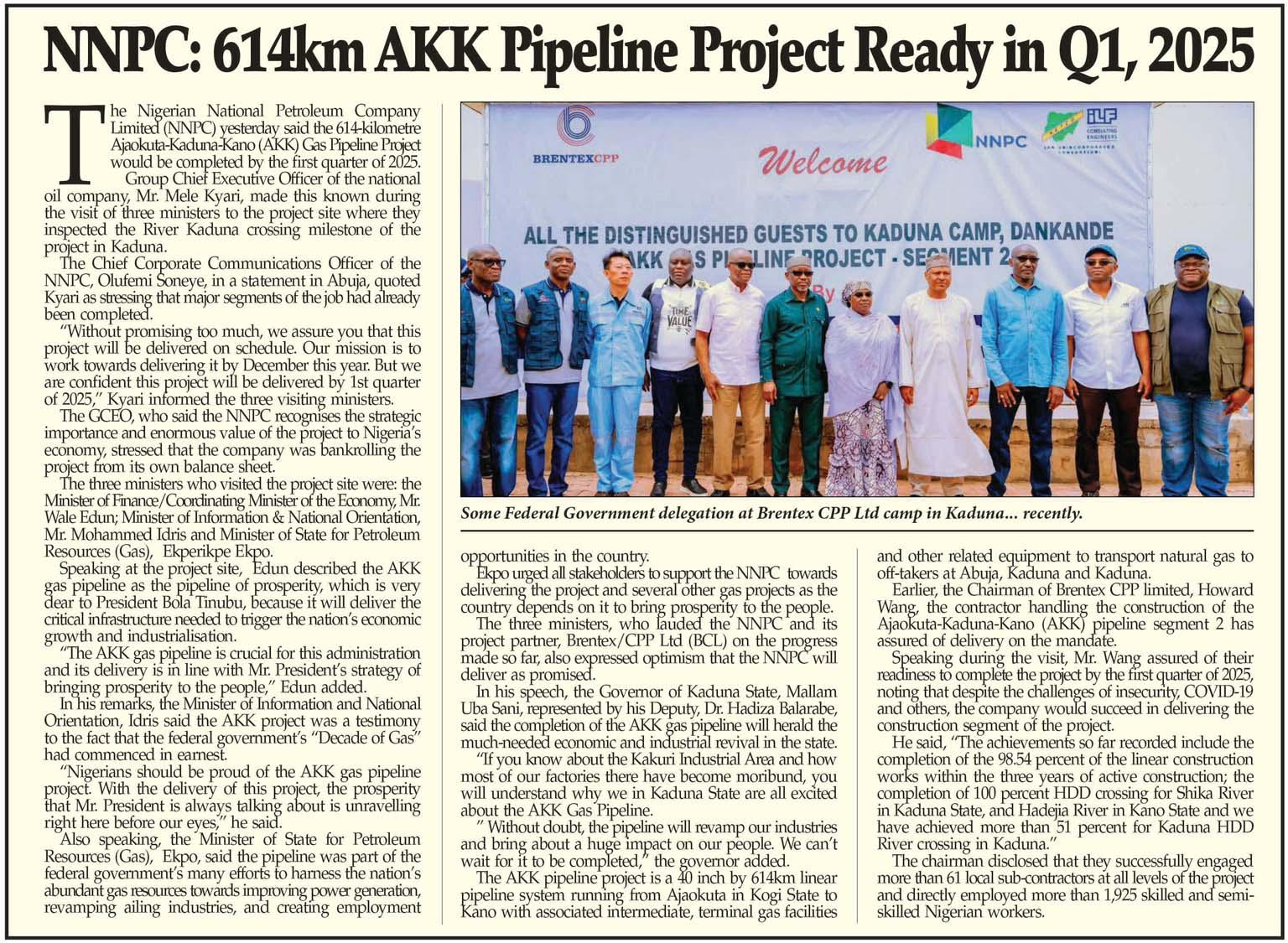
Although the Nigerian Navy started off from humble beginnings, Chiemelie Ezeobi writes that the service has come a long way from the colonial marine department of the Royal Navy with few coastal boats to its inventory, to become one of the best navies not only in the West African Sub-region, but also in the Gulf of Guinea (GoG) and indeed the entire sub-Saharan Africa. Recently, it marked its 68th anniversary with activities ranging from medical outreaches to regional maritime exercises, hosting an International Maritime Conference and inaugurating the International Maritime Institute of Nigeria, a move that reinforced its status in the comity of sea powers

The origin of the Nigerian Navy (NN) can be traced to the colonial marine department of the Royal Navy (RN) established in 1887 as a quasi-military organisation combining the duties of the present day Nigerian Ports Authority, the Inland Water Ways and the modern day navy until the end of the Second World War in 1945.
In 1956, a policy statement by the government led to the establishment of a Nigerian Naval Force and on June 1, 1956, the NNDF commenced operations with 11 assorted ships and craft comprising two survey vessels (PETREL and PATHFINDER), two training boats (DIGNITY and NYMPH), one patrol craft (CHALLENGER), three VIP boats (VALIANT and FRANCES with her Launch), one tug (TROJAN) and one general purpose launch (JADE).
On August 1, 1956, the first naval legislation was passed by the House of Representatives and was assented to on September 5, 1956 by Sir James Robertson, the Governor General and the Nigerian Navy Ordinance led to the designation of the NNDF as Royal Nigerian Navy.
In 1963, when Nigeria became a republic, the prefix “Royal” was dropped and the name became Nigerian Navy (NN). The Ordinance that set up the NN had several limitations, the principal one among them was the limitation placed on the Navy to patrol only three nautical miles, which was the limit of the territorial waters.
The shortcomings were corrected by the post independence Navy Act of 1964. This Act removed the principal limitation of the NN to the country’s territorial waters. In these early years, the NN had only a few patrol boats but has over the years now grown significantly into a multi-mission maritime arm of the Nigerian Armed Forces with various wartime and peacetime roles.
With its establishment, the NN, according to the 1999 constitution of the Federal Republic of Nigeria and the Armed Forces Act CAP A20 is charged with the territorial defence of Nigeria by sea. Its tripartite roles cover the full spectrum of military, policing and diplomatic functions.
Under these spectrum, its roles include enforcing and assisting in coordinating the enforcement of all customs, immigration, bunkering, fishery protection and pollution laws (coastguard duties), including enforcement of all national and international maritime laws ascribed to or acceded to by Nigeria. Its roles are backed by the Armed Forces Act which charged the NN to enforce and assist in coordinating the enforcement of all national and international maritime laws ascribed or acceded to by Nigeria. Other duties
include making of charts and coordinating national hydrographic surveys as well as promoting, coordinating and enforcing safety regulations in the territorial waters and the EEZ of Nigeria.
PAST ICONS OF THE NAVY
Often referred to as Icons of the Navy, the past list of of CNS since the inception of the NN includes Captain FW Skutil, who was CNS from 1956 to 1958 and Commodore AR Kennedy who held the helm of affairs from 1958 to 1964. Others were ViceCommodore JEA Wey from 1964 to 1973; ViceAdmira NB Soroh, from 1973 to 1975 and ViceAdmiral MA Adelanwa from 1975 to 1980.
Not left out were Vice Admiral AA Aduwo from 1980 to 1893; Vice Admiral AA Aikhomu from 1984 to 1986; Vice Admiral Patrick Koshini from 1986 to 1990; Vice Admirak Murtala Nyako from 1990 to 1992; Vice Admiral DPE Omotsola from 1992 to 1993; Rear Admiral S. Sa’idu who was appointed in 1993 and removed same year. Others after his include Rear Admiral AA Madueke from 1993 to 1994; Rear Admiral OM Akhigbe from 1994 to 1998; Vice Admiral J. Ayinla from 1998 to 1999; Vice Admiral VK Ombu from 1999 to 2001; ViceAdmiral SO Afoloyan from 2001 to 2005; Vice AdmiralGTA Adekeye from 2005 to 2008 and Vice Admiral II Ibrahim from 2008 to 2010.
Ibrahim was succeeded by Vice Admiral OS Ibrahim from 2010 to 2012; Vice Admiral DJ Ezeoba took over in 2012 and handed over to Vice Admiral Usman Jibrin in 2013. In 2015, Vice Admiral Ibok Ete Ibas took over as the 20th Chief of the Naval Staff; and handed over to Vice Admiral AZ Gambo in 2021 and he held sway until 2023 when he handed over to the present chief, Vice Admiral Ikechukwu Emmanuel Ogalla.
NAVY NIGERIAN @68 IN FOCUS
The NN Anniversary Celebration, often referred to as ‘Navy Week’, is an annual event held to commemorate the establishment of the NN as an arm of force on June 1, 1956.
The sequence of what would turn out to be 68th anniversary of the NN was unveiled on May 20 by Chief of Policy and Plans (CPPLANS), Rear Admiral Joseph Akpan, at an International Press Conference in Abuja. Series of activities started off with the Special Juma’at Prayers on Friday, May 24, 2024 while the Interdenominational Church Service held on Sunday, May 26. On
Monday, May 27, Medical Rhapsodies and Naval Officers’ Wives Association Activities (NOWA) was held simultaneously on Monday, 27 May 2024 and on Wednesday, May 29 May, there was be an ice-breaker at Eko Hotel and Suites Lagos.
On Thursday, May 30, was the flag-off of the Regional Maritime Exercise and the International Maritime Conference by President Bola Ahmed Tinubu who was represented by Vice President Kashim Shettima.
On the side line, the Meeting of Gulf of Guinea Heads of Navies and Coast Guards held on May 31. Then on June 1, the International Maritime Institute of Nigeria (IMION) was inaugurated before the Ceremonial Sunset/ Reunion Dinner at Naval Dockyard Limited Victoria Island, which marked the end of the Navy Week.
CNS DEBATE, QUIZ AND STEM COMPETITION
As part of the Directorate of Naval Education’s contribution to 68th anniversary, it held the CNS Inter-School Debate, Quiz, and STEM competition for the Nigerian Navy Military and Secondary Schools.
Held at Nigerian NavySecondary School (NNSS) Ojo, Lagos, the competition themed ‘Information and Communication Technology: A Panacea for Improved Educational Service and National Development’ had 36 participants.
REGIONAL MARITIME EXERCISE
Held on Thursday, 30 May to Saturday, 1 June 2024, the Regional Maritime Exercise (REMEX) is an international maritime sea exercise involving navies from Africa, Europe, Asia, North and South America.
With 18 platforms comprising capital ships, boats and helicopters, the NN led foreign naval ships like Brazilian Navy Ship APA, Cameroonian Navy Ship DIPIKAR, Peoples Liberation Army Navy Ship XU CHANG, French Navy Ship OSV COMMANDANT BIROT, Ghana Navy Ship CHEMLE, United States Ship HERSHEL WOODY WILLIAMS to patrol the Gulf of Guinea Waters.
But prior to this, the Western Naval Command (WNC) of the Nigerian Navy (NN) hosted a Combined Sea Exercise 16nautical miles South-West of Lagos Fairway Buoy with four navies of NNS KANO (Nigerian Navy); BNS APA (Brazilian Navy); ITS BETTICA (Italian Navy); and SP FUROR, (Spanish Navy) and conducted PASSEX Form 1 and Form D as a rehearsal for REMEX.
Prior to the opening ceremony of the International Maritime Conference (IMC) on Thursday, May 30, the CNS had the previous day hosted an ice breaker for all the participating navies at Eko Hotel and Suites, Victoria Island Lagos.
The IMC sought to catalyse effective cooperation on maritime security across Africa as a key driver for unlocking the continent’s immense Blue Economy potential in line with the vision of the 2050 African Integrated Maritime Strategy (AIMS).
Themed “Promoting the Blue Economy in Africa through International Cooperation on Maritime Security, the conference hosted delegations from 21 African countries, 17 non-African countries and 13 International/ regional organisations.
President Bola Ahmed Tinubu, represented by his Vice flagged off the IMC as well as inaugurated three warships and two helicopters including NNS OCHUZOR -35m Hydrographic Survey Vessel; NNS CHALAWA - 32m Seaward Defence Boat (SDB); NNS ZUR 32m (Seaward Defence Boat); and Helos NN 412 and 414.
Applauding Vice Admiral Ogalla’s anticrude oil theft operations which has led to increasing levels oil production for Nigeria, the president described the NN as “lifeguards of Nigeria’s Maritime Environment”.
On Friday, May 31, was the closing ceremony of the two-day IMC. Leveraging Maritime Security Collaboration for Harnessing Blue Economy in Africa:Strategies and Mechanisms for Success was delivered by Dr. Paul Adalikwu and moderated by Rear Admiral Patrick Hayden. The Communique was read by the Chief of Policy and Plans, Rear Admiral JD Akpan.
The Naval Dockyard Limited (NDL), which is the pride of the Nigerian Navy given the large scale fabrication and construction work it’s doing both locally (including the three indigenously built vessels- Nigerian Navy Ships (NNS) ANDONI, KARADUWA, and OJI for the NN) and regionally, was toured by the Chief of Defence Staff, General Christopher Gwabin Musa (OFR). He was led by the CNS and the NDL Admiral Superintendent, Rear Admiral Bolaji Orederu.
This was apart from the earlier tour by the CNS as a prelude to the anniversary where he inspected the construction site for Seaward Defence Boats (SDB) 4 & 5 and afterwards inaugurated the renovated General Manager Sea Training (GMST) Block, the Electroplating Plant, the Galvanising
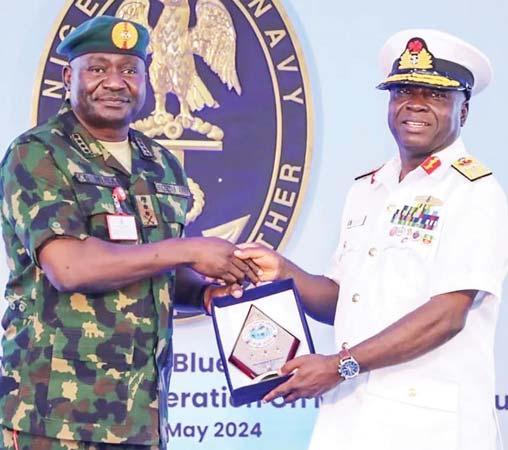
Plant, the newly constructed elevator for NDL Conference Hall, the NDL Gallery, the remodelled Administrative Block, the Upgraded NDL Officers Mess and the NDL Sports Complex.
Earlier at the Interdenominational Church Service in CNS said the navy’s fleet renewal effort had been given serious boost through its local shipbuilding effort, adding that it had become a cardinal point of his vision and “its realisation is the only way to grow as a navy by tapping into local content in all its key areas of development of which shipbuilding is part of”.
He added that the service also recognised that shipbuilding and ship repairs would contribute effectively to the overall growth of the economy.
COMBINED TASK FORCE DELIBERATIONS
Same Friday, the CNS hosted a meeting of Chiefs of Naval Staff/CoastGuards of Gulf of Guinea Region (CGG-GGC) to discuss the modalities of the Combined Maritime Task Force (CMTF).
LAUNCH OF INTERNATIONAL MARITIME INSTITUTE OF NIGERIA
On Saturday, June 1, 2024, Vice Admiral Ogalla was joined by Chairman Senate Committee on the Navy, Senator Otunba Gbenga Daniel to launch the “International Maritime Institute of Nigeria (IMION)”, a proposed confluence for international maritime discourse and the vehicle for articulating maritime strategy on the African Continent.
According to the Director of Information, Commodore Aiwuyor Adams-Aliu, the IMION led by Rear Admiral TC Udofia (rtd) is poised to become the platform/think-tank for maritime strategic thinkers, practitioners, and allies to interact, share ideas, and research into maritime strategic affairs affecting the Gulf of Guinea (GoG) & beyond as it would focus on dicourse of thematic areas such as maritime & ocean governance, maritime security, law enforcement, hydrography, blue economy, climate change amongst others.
TRAJECTORY OF THE NN UNDER VICE ADMIRAL IKECHUKWU OGALLA
Upon assumption of office one year ago as the Chief of Naval Staff(CNS), Vice Admiral Ikechukwu Emmanuel Ogalla had pledged to “Maintain and equip a professionally competent and ethical naval force while leveraging on all element of national power for the effective defence of Nigeria’s maritime area of interest against all form of threat in fulfillment of national security imperatives”.
This was in line with his vision for “A highly motivated professional naval force capable of shaping the security outcomes within Nigeria’s maritime domain and the littorals including land-based engagements in fulfilment of Nigeria’s national interest”.
Therefore, putting in perspective the achievements of Vice Admiral EI Ogalla in his role as CNS, the CPLANS said under the NN has attained the highest state of operational readiness in the discharge of its constitutional roles in one year.
He said: “The fight against Crude Oil Theft has been a huge success under the auspices of OPERATION DELTA SANITY which was re-launched in January 2024. In the nine months of its existence, the operation has led to the arrest of various suspects and vessels involved in COT.
“Some of these vessels include MT KALI, MT SWEET HARBOUR SPIRIT, MT SAISNIL, MV TOKITO, MT VINILLARIS and MT SWEET MIRI, among others. This has impacted positively on Nigeria’s crude oil production. For instance, OPEC Records for the month of April 2024 state that Nigeria’s Crude Oil Exports rose to #1.28m bpd in
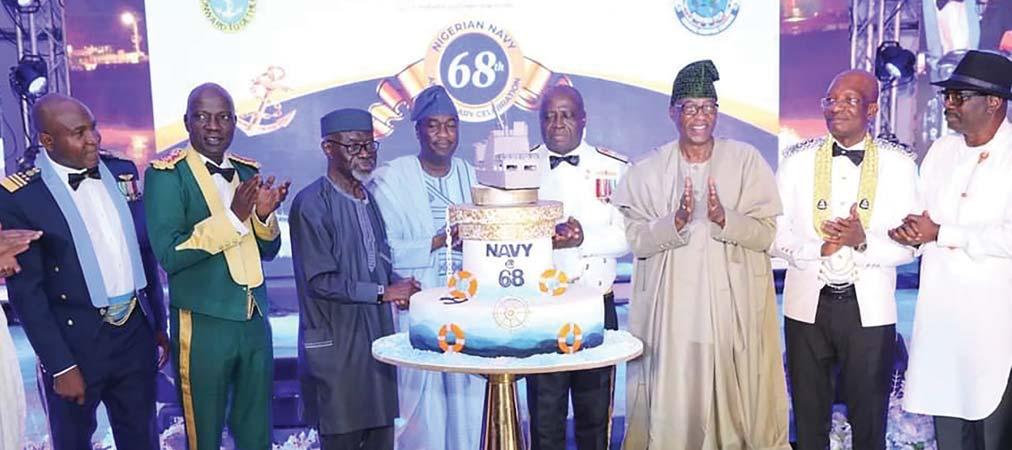



April from #1.23m bpd in March. This is in line with the President’s directive to eradicate COT in order to ramp up Nigeria’s oil production and exports.
“In line with its TOTAL SPECTRUM MARITIME STRATEGY, the NN has continued to support land operations in all the Geo-political Zones. The NN has also provide all year-round situation awareness of Nigeria’s maritime domain extending to the limits of the Exclusive Economic Zone through its Maritime Domain Awareness Facilities which enabled early detection and swift response to incidences within the maritime environment.
“This has ensured that Nigeria maintained its zero piracy status in the International Maritime Bureau piracy rating. In terms of fleet renewal, the NN has taken delivery of various platforms which has supported its Anti-piracy, Ant-COT, Anti-IUU and Anti-illegal drug trafficking among others. Notably, the NN has taken delivery of its second offshore survey vessel, 2 x 32m FPBs, and 2 x Helicopters.
“The NN is also expected to take delivery of 2 x 76m OPVs from Turkey later in the year. In the area of infrastructure, the NN
has established a composite operations Base in Enugu State to curtail the prevailing insecurities in the SE and NC Regions.
“Additionally, the Naval Training Command was relocated to Eleme in Rivers State. In its place, the NN has established the International Maritime Institute of Nigeria. The Institute will serve as a strategic maritime think-tank for Nigeria thereby contributing effectively to global maritime discourse to shape the future of sea power and its application.
“Aware of the need to collaborate with other maritime security agencies such as NIMASA, NPA, NDLEA, NOSDRA, NEMA as well as foreign partners, the NN has staged and participated in several local and international exercises and operations. Some of these include EX CROCODILE LIFT/AFRICAN GRANDE AFRICA NEMO, EX SEA GUARDIAN, EX NCHEKWA OSHIMIRI, OP WATER GUARD, OP SWIFT RESPONSE and EX OBANGAME EXPRESS 2024.”
Also, it would be pertinent to state that sequel to Navy Board approval, Nigerian Navy Ship MADUEKE was also established in Enugu as a Special Operations Composite
Base, of which the CNS said will lead to other bases being established to improve maritime security operations and stall criminals from carrying out nefarious activities within the maritime environment.
Although the Nigerian Navy has grown from its humble beginning with a handful of coastal boats into a force to be reckoned with, not only in the West African Sub-region, but also in the Gulf of Guinea (GoG) and indeed the entire sub-Saharan Africa, there is always room for more improvement and under the leadership of Vice Admiral Ikechukwu Emmanuel Ogalla, the future is bright.
Although the anniversary might have come and gone, perhaps one thing that stood out was the influx of young officers, especially females with the knack for public speaking and excellent composure, while anchoring.
Under the naval information wing headed by the Director of Information, Commodore Aiwuyor Adams-Aliu, the navy utilised its greatest assets-its information officers, earning them commendations.
Nume Ekeghe
InfraCredit, a ‘AAA’ rated specialised infrastructure credit guarantee institution, has announce the successful completion of a $15 million subordinated unsecured 10-year facility with the African Development Bank Group (AfDB).
InfraCredit in a statement said the strategic partnership marks the second investment by AfDB following an initial $10 million facility in 2020.
Director General, African Development Bank Group, Mr. Lamin Barrow, expressed the bank’s satisfaction with this operation, and at the time of the signing ceremony of the facility, said. “Our support to institutions such as InfraCredit clearly demonstrates the importance of promoting innovative and scalable solutions to leverage pools of capital from domestic institutional investors, and position
local capital markets as viable alternative source of long-term funding to bridge the continent’s huge infrastructure deficit.
“Specifically, the $15 million facility strengthens InfraCredit’s capital base and supports its mission to bridge Nigeria’s infrastructure financing gap. The facility will boost private sector financing for critical infrastructure projects across sectors such as power, renewable energy, telecommunications, healthcare, green housing, and transportation. Following this facility investment, InfraCredit’s funded capital base will increase to $187m (c. N264 billion). This investment by AfDB underscores its confidence in InfraCredit’s robust business fundamentals and commitment to sustainable development. By leveraging domestic capital markets, InfraCredit aims to deepen the local debt capital market, attracting long-term investors and fostering economic
growth.”
Over the past 7 years, InfraCredit’s guarantees have facilitated access to N218 billion ($445 million) in local currency finance for 12 first-time issuers and over 20 infrastructure projects. InfraCredit’s support enabled Nigeria’s first 15-year green infrastructure bond and extended corporate bond tenors beyond market norms to 20 years.
According to the Chief Executive Officer of InfraCredit, Chinua Azubike, “We are delighted by AfDB’s confidence in our business model, which has successfully facilitated private sector investment in impactful infrastructure projects and InfraCredit’s clean energy roadmap that has accelerated green finance for climate-aligned infrastructure, fostering SME growth, job creation, sustainable energy access, and overall economic development.
As a prelude to investiture of the 13th President and Chairman of the Governing Council of Chartered Institute of Stockbrokers (CIS), Mr Oluropo Dada, the Chartered Institute of Stockbrokers (CIS), has offered ten recommendations to Central Bank of Nigeria (CBN) and capital market regulators to ensure successful implementation of banks recapitalisation in Nigeria.
In a paper entitled : “Stockbrokers’ Position Paper on the Banking Sector Recapitalisation Programme of the Central Bank of Nigeria (CBN),” released at the weekend, the institute noted that the programme would position the banks in Nigeria to support the growth of the economy, position them for global competitiveness, promote financial inclusion and generate about N3.9 trillion.
“In order to ensure effective capital raising exercise by banks, the Institute strongly recommend as follows: There should be a wholesome adoption of technology in every stage of the process. As we have seen in recent public offerings, the path of reaching out to investors through telephone apps is what endears the young generation, including the millennials to modern day investments. Banks should consider raising a significant portion of the additional capital through public offers, in order to increase the number of investors in the market. It is sad that, in a country of over 200 million people we still have just about 7 million people that have investments in the capital market. So, attracting more new investors should be a key objective of the exercise.
“ It is important to emphasise
that time is of essence in the recapitalization process. We recognize the fact that the Central Bank of Nigeria (CBN) will have to check and verify the list of subscribers to every new bank issue before the list is sent to the SEC for approval to allot shares. We urge the CBN to carry out this verification process speedily, using technology, in order to reduce the time involved. Furthermore, the issuing houses may send the list of subscribers to the CBN in batches, on a daily or weekly basis, from the date the issue opens until it closes. By this, the load of verification will be substantially reduced for the CBN when the offer closes and returns are made. Between the CBN and the SEC, the time taken from an offer’sclosing date to the allotment date should not exceed 20 working days.
Ebere Nwoji
An underwriting firm, AXA Mansard has said that the ongoing generational shift, where Baby Boomers, Gen X, Millennials, and Gen Z are coexisting within organisations, presents opportunities and challenges for increased attention and investment in employee retention.
This was disclosed by the General Counsel and Human Resource Director, AXA Man-
sard Insurance Omowunmi Adewusi, at the 2024 Human Resource Professionals Workshop organised by the Career Office of Pan-Atlantic University.
The workshop has the theme, “Employee Retention Strategies: Building a Resilient Workforce with Technology and Trends.”
She said that traditional work models, characterised by fixed hours, on-site presence, and manual labour, no longer resonate with the modern
workforce.
She explained that technological advancements had fuelled the demand for remote work capabilities, digital tools, and collaboration platforms.
“So, the real challenge for HR practice today is how to bridge the gap between the divide and foster a resilient workforce that can thrive in today’s dynamic business and economic environment,” she said.
Dike Onwuamaeze
The SFS Fixed Income Fund has been awarded an AA(f) rating by DataPro, a credit rating institution.
The SFS Capital Nigeria Limited, which announced the credit rating, said that it reflected the fund’s superior financial strength, operational performance, and robust profile.
According to the DataPro, an AA(f) rating signified lower risk and is “assigned to funds which have excellent financial strength, operating performance and profile when compared
to the standards established by DataPro Limited. These funds, in our opinion, have a very strong ability to meet their ongoing obligations.”
DataPro’s evaluation took into account both qualitative and quantitative factors, such as profitability, management expertise, and investment quality.
The SFS Fixed Income Fund is designed for investors with a low risk appetite, primarily invests in high-quality fixed income and money market securities issued by the federal or government, and highly-
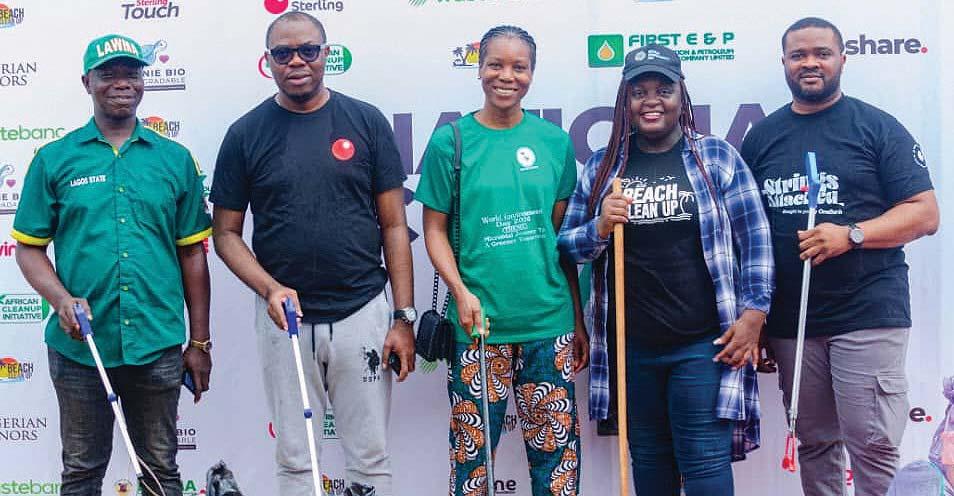
rated corporate institutions.
Commenting on the rating, the Managing Director/CEO of SFS Capital Nigeria Limited, Mr. Patrick Ilodianya, said: “We are extremely proud to receive the AA(f) rating from DataPro.
“This recognition is a testament to our unwavering commitment to maintaining high standards of investment quality and delivering stable returns to our investors.
“Our experienced management team and strategic investment approach continue to drive our success and reinforce our position in the market.”
The price of OPEC basket of twelve crudes stood at $87.33 a barrel on Monday, compared with $86.00 the previous Thursday, according to OPEC Secretariat calculations. The OPEC
The Managing Director/CEO, Fidelity Bank Plc, Nneka Onyeali-Ikpe, has described financial institution’s N127.10 billion capital raising exercise as a pacesetter in light of the banking industry’s recapitalisation drive.
Fidelity Bank on June 20, 2024 commenced its Public Offer of 10,000,000,000 ordinary shares of 50 kobo each at N9.75 per share and Rights Issue of 3,200,000,000
ordinary shares of 50 kobo each at N9.25 per share.
Speaking at the bank’s “Public Offer and Rights Issue Facts Behind the Combined Offer” at the Nigeria Exchange Limited, she stated that the Fidelity Bank is the first to launch a public offer out of the many Banks in Nigeria amid Central Bank of Nigeria (CBN) directive on banking sector capitalisation in March, 2024. She noted that the bank’s capital raising process was proactively initiated
after obtaining approval from shareholders in August, 2023, stressing that the exercise is part of the management’s strategic growth plan to raise additional capital to meet its growth needs.
“Given that Fidelity Bank had already started the process of raising additional capital ahead of the Central Bank’s directive requiring Banks to raise their minimum capital base to N200 billion for national banks and N500 billion for Banks with International operations amongst
other capital requirements for different categories of banks did not come as a surprise to us.
“For us at Fidelity Bank, the CBN’s recapitalisation directive presents a significant opportunity for a stronger and more resilient banking industry. We have embraced the challenge as a catalyst to propel us towards our longterm vision of becoming a market leader across every product and segment we serve, not just in Nigeria but as an international bank,” she explained.
Onyeali-Ikpe noted that proceeds from the N127.10 billion capital raising exercise would be instrumental in achieving its strategic growth plan.
She highlighted that the funds, firstly, would be deployed to drive, business and regional expansion. Secondly, she mentioned technological transformation and thirdly, diversification and growth.
Speaking , Executive Director, Fidelity Bank, Mr. Stanley Amuchie in a presentation said the commercial bank has
a strong market positioning in the Nigerian banking industry, stressing that notwithstanding the significant changes in the competitive landscape of the Nigerian banking sector, it has continued to perform well. On rationale for the offer, he expressed, “Due to the advances in technology and rapid evolution of banking business, it is imperative that Fidelity Bank is properly positioned to remain a competitive and forward-looking institution.”
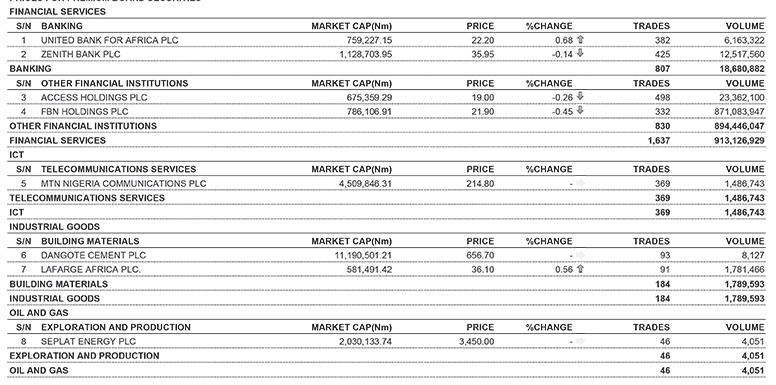
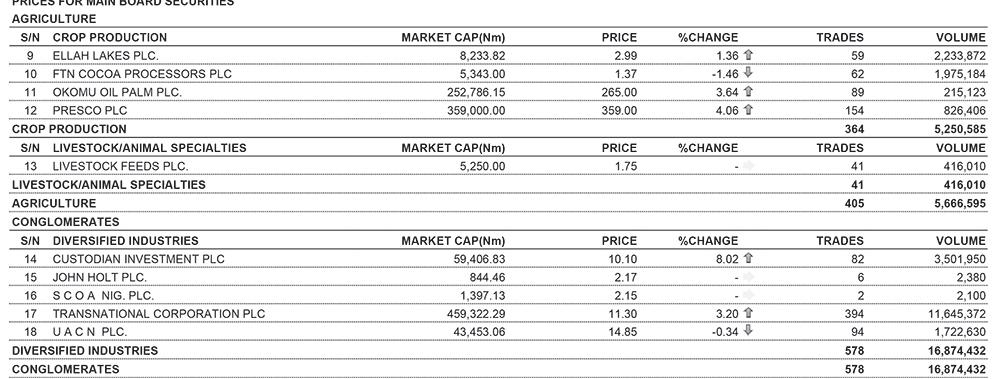
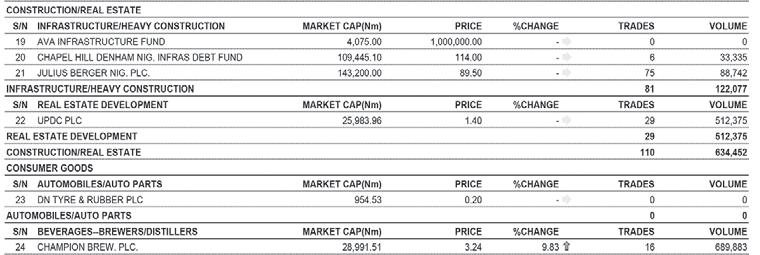


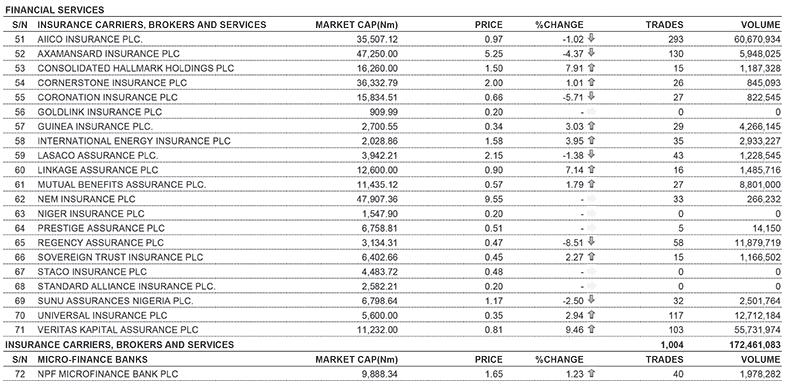

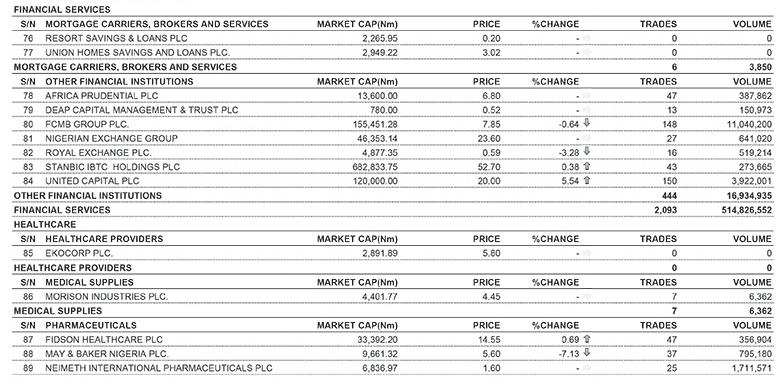
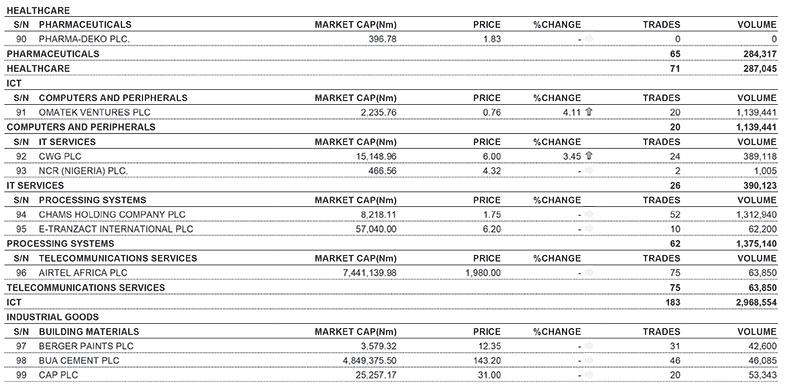
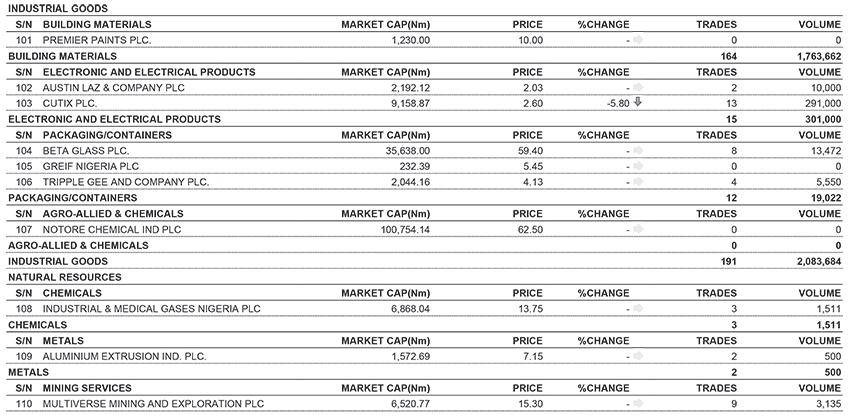

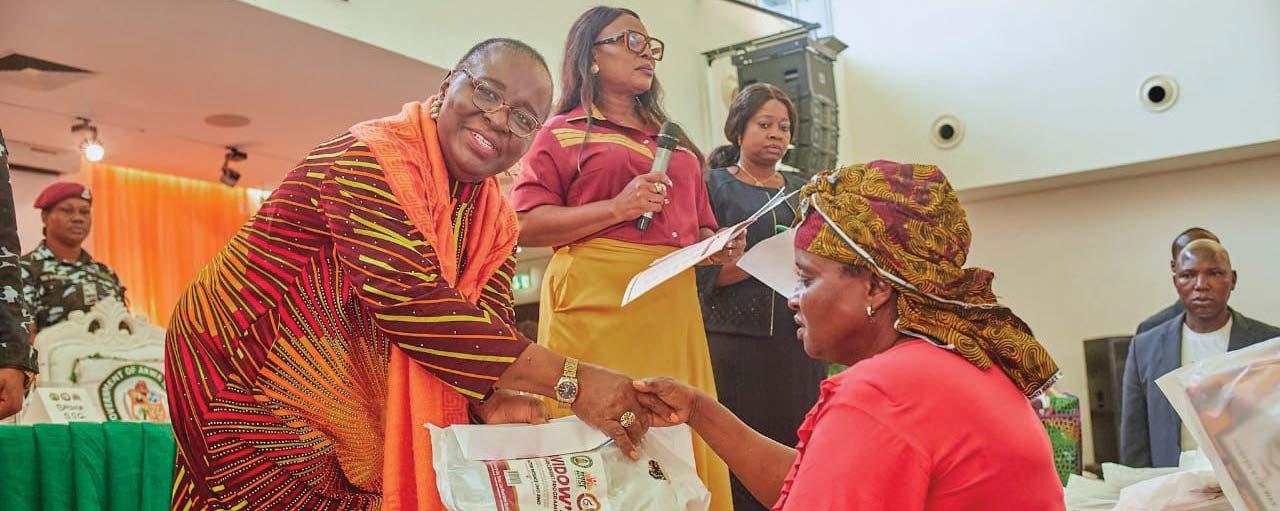
Says they must refund money taken illegally Declares their supervisors, department heads must be punished for aiding, abetting fraud
Olawale Ajimotokan in Abuja
President Bola Tinubu has criticised civil servants who still receive salaries without formally resigning, despite relocating abroad were.
The president, who delivered the rebuke Saturday night at the 2024 Civil Service Award and Gala Night, said not only will the culprits refund money taken illegally, theirsupervisors and heads of department must also be punished for aiding and abetting the fraud on their watch.
Tinubu equally honoured a civil servant, Odii Ndubuisi Barry, a GL 17 Director, with the Ministry of Humanitarian Affairs with a Presidential Civil Service Merit Award for coordinating the movement of
the Nigerian team and international solicitors during the litigation between Nigeria and Cameroon over Bakassi, as a protocol officer to the National Boundary Commission.
Represented at the occasion by the Secretary of the Government of the Federation, Senator George Akume, Tinubu urged those in charge to ensure that the culprits were held accountable and the funds illegally paid recovered.
He further vowed their supervisors and heads of the complicit departments must also be punished for abetting the scam under their watch.
“During my recent visit to South Africa, I kept abreast of the week's activities and was particularly
Widows
Akwa Ibom First Lady, Patience Eno Empowers 250 Widows
Udeme
Wife of Akwa Ibom State Governor, Pastor Patience Umo Eno, has empowered not less than 250 widows across the 31 Local Government Areas and members of eleven Non-Governmental Organizations in the state.
The empowerment by the first lady came on the heels of the commemoration of the 2024 International Widow’s Day, observed globally on June 23.
The maiden Widows Enhancement Programme, organised through the pet project of the Governor's Wife, the Golden Initiative for All, GIFA, held at the Banquet Hall, Government House Uyo, saw the beneficiaries smile home with cash and gift items.
Speaking at the event, Pastor Patience Eno expressed gratitude to her husband, the governor for making it possible for every woman to have a sense of belonging in Akwa Ibom State, saying that the event became expedient to "raise awareness over the violation of human rights that widows suffer following the death of their spouses."
The First Lady who is the Chairperson of the Akwa Ibom State Gender - Based Violence Management Committee, frowned at the existence of various harmful widowhood practices
and noted that with the domestication of the Widowhood Law of 2013 and the Violence Against Persons (Prohibition) VAPP Law of 2020 in Akwa Ibom, the full weight of the law would apply to anyone troubling widows in the state with outdated traditional practices.
Pastor Patience Eno reaffirmed that any case of injustice against widows brought to her attention would be handled promptly, while directing the different NGOs for widows in the state who attended the event to create clusters for the training of their members on entrepreneurial skills to ensure their economic growth and development.
Welcoming the women, one of the coordinators of GIFA, Mrs. Anne Abraham, who lauded them for remaining strong and resilient despite the significant loss suffered, noted that the programme which falls under the women empowerment thematic area of GIFA, was to harness a support environment where widows are recognised by the state government.
Also speaking, the Commissioner for Women Affairs and Social Welfare, Dr. Ini Adiakpan, applauded the governor, Pastor Umo Eno and his wife, Pastor Patience Eno, for giving succour, comfort and a sense of belonging to the widows as well as their humaneness in taking on programmes that touches all strata of people in the state.
struck by the revelations shared by the Head of the Civil Service regarding employees who had relocated abroad while drawing salaries without formally resigning.
“It is heartening to hear that measures have been taken to address this issue, but we must ensure those responsible are held accountable and restitution is made.
“The culprits must be made to refund the money they have fraudulently collected. Their supervisors and department heads must also be punished for aiding and abetting the fraud under their watch,” Tinubu said.
According to the president, the Civil Service as the bedrock, engine, locomotive of government, was necessary for the government to deliver public goods to citizens.
He said it could not be a workplace, where anything is possible and where workers violate rules without the fear of punishment or repercussion, stressing that the civil service of any nation was too important for such misconduct to take root or be tolerated.
His words: “Those who say that a nation is as good as its civil service are close to the truth. You are the real establishment that remains to pilot government affairs as we politicians come and go.”
Tinubu said over the decades, successive governments, which initiated various National Development Plans and programmes, relied on the civil service to translate such plans into high-impact programmes and projects across all sectors of the nation's economy.
While determined to continue the legacy, the president asserted that over the past year, he had provided all the necessary support to the Head of the Civil Service of the Federation to ensure the continued stability of the civil service and to implement far-reaching policies and reforms capable of improving efficiency and service delivery.
He noted that last year, the administration approved the implementation of the civil service reforms in the Federal Capital Territory Administration, resulting in the FCT Administration now having its civil service commission, Head of Service and six permanent secretaries.
He said it was heartwarming to note that the Federal Civil Service was driving a strategic plan that aligned with the priorities of the
administration’s Renewed Hope Agenda.
Tinubu, therefore, commended the dedication of the Head of Service of the Federation, Dr. Folasade YemiEsan, in steering reforms towards creating a world-class service that upholds meritocracy and excellence. He urged swift implementation of the reforms by ministers, permanent secretaries and chief executives within their respective ministries, adding their commitment to delivering on the Renewed Hope Agenda demanded urgency, without compromising due process.
“I am aware that due process must be followed in conducting government business but that should not give room for any form of redtapes or insistence on unnecessary bureaucracies.
Over 24 million engaged in child labour
The International Labour Organization (ILO) has said that the country is witnessing an upsurge in child labour activities.
Quoting current statistics, the organisation said that Nigeria has over 24 million children engaged in one form child labour or the other.
According to ILO’s child labour situation index in Nigeria, 31,756,302 million children representing 50.5% are involved in economic activities,
while 24,673, 485 million children, representing 39.2 percent are engaged in child labour practices.
The index also showed that 14,390, 353 million children representing 22.9 percent are engaged in hazardous labour.
Citing a 2021 Global child labour report released by ILO and UNICEF she said it showed a global increase of child labour prevalence by 8.4 million reaching a staggering 160 million.
Country Director of ILO in Nigeria, Vanessa Phala who was represented
by the National Project Manager of ILO's programme initiative - Action Against Child Labour in Agriculture in West Africa (ACLAWA), Dr. Agatha at a 4-day Media Training Workshop on Child Labour eradication organised by ACLAWA in Akwanga in Nasarawa state that ended over the weekend, said that child labour has unfortunately been woven into the fabric of rural life in Nigeria, particularly within agricultural communities.
She said the scourge of child labour is being driven by poverty,
as families often rely on children to contribute to the family’s well-being and survival.
Phala said that children are increasingly exposed to harsh experiences of life as their parents find it difficult to provide their needs.
The ILO director said that on a national scale Nigeria has more boys (12,689,663) than girls (11,983,822) exploited in the work place, but when accessed by place of residence, we have more girl victims in the urban and more boys in the rural areas.
Ibrahim Oyewale in Lokoja
A Kogi-based Civil Society Group (CSO) Conscience for Human Rights and Conflict Resolution CHRCR has lauded the Governor Usman Ododo of Kogi State for signing an anti-corruption Bill into law in Kogi State.
This was contained in a press statement signed by the executive director , Conscience for Human
Rights and Conflict Resolution , Comrade Idris Miliki, a copy of which was made available to journalists in Lokoja at weekend
The rights group explained that corruption is the absence of integrity which has eaten deep into fabrics of our society at national level in general and Kogi State in particular.
According to CHRCR, "It is on this note we commend the Kogi State House of Assembly, for the passage
and subsequent signing into Law by the governor of Kogi State on 20th June, 2024 of the anti-corruption bill.
"The advocacy by civil society organizations for the creation of an Anti-corruption agency or institution in Kogi State is bringing positive results. We commend Kogi State House of Assembly for the passage of the Bill on anti-corruption and the subsequent signing it into law, which we will be glad for the agency to be
established with people of proven integrity with diverse background as soon as possible.
"Corruption has eaten deep into our society, particularly among public service institutions in Kogi State in the past and is still ravaging the state. With the signing of this law and the subsequent establishment of the agency, we believe it will have a meaningful impact in the struggle against corruption in Kogi State.
Onyebuchi Ezigbo in Abuja
The Academic Staff Union of Universities (ASUU), said that no fewer than 400 members of the union had been sacked by proprietors of member institutions, who persecuted them for fighting for their rights and interest in the university system.
The intimidation and persecution, ASUU said, were common in state owned institutions as governors, who are visitors to these institutions, don't tolerate opposing views and policies,
which lecturers saw as not being in the interest of the education system in their respective universities.
The immediate past Chairman of ASUU, University of Lagos Chapter, Dr. Dele Ashiru, disclosed this while speaking with journalists at the end of Leadership Training Workshop, organized by the union for new executives of the university's branch.
At the workshop, which was held at the ASUU Auditorium within the Olabisi Onabanjo University (OOU), Ago Iwoye, Ogun State Branch,
had participants taken through topics, such as qualities required of leaders of the union for effective performances, principles of collective bargaining and negotiation.
The training also equipped participants with the requisite knowledge and skills to enhance commitment to roles as union leaders by seasoned and former leaders of the union, including Dele Ashiru and Dr.Siji Sowande as resource persons.
While stating that the union has
been standing against persecution and would continue to fight for the genuine interest of its members, Wasiu however, said the union would not tolerate any unethical behaviour from any of its members.
Ashiru said "ASUU had been supporting their members, that were persecuted for fighting for the interest of the union and for betterment of the university system and will continue to do this if it is in collective interest.
"On the other hand, the union, had
Ikechukwu Aleke in Abuja
The Rule of Law and Accountability Advocacy Centre (RULAAC), a civil society organization and eight others, have called on the National Human Rights Commission (NHRC), to investigate alleged extrajudicial killings, extortion of families whose relatives are in custody, and sexual abuse of women by state and nonstate actors in southeast region.
In a petition signed by RULAAC Executive Director, Okechukwu Nwanguma, and eight other civil society organizations, delivered to NHRC, on June 19 2024, they called on the human rights commission to undertake prompt, exhaustive and effective investigation into the persistent Ezza-Effium and
Ezza-Ezeilo conflicts which have continued to result in massacres.
The petition also decried the invasion and attacks on Igga and Nimbo communities in Uzo-Uwani Local Government Area of Enugu State by personnel of the Nigerian Army and Nigeria Police Force.
The rights groups noted that the invading security forces shot indiscriminately, killing community members and burning several houses and other properties.
The petition read in part: "We, the undersigned civil society organisations and other concerned groups and citizens, alarmed by frequent incidents of organized attacks, killings, extortion, sexual violence, and destruction of properties in the Southeast,
portending far-reaching human rights violations, feel compelled to call on the National Human Rights Commission to deploy all necessary instruments available to it, which may include the appointment of a special investigation panel, to inquire into these incidents.
“We are concerned by the oppressive atmosphere of siege, impunity and fear partly engendered by the federal government’s single narrative that narrows insecurity in the southeast almost exclusively to the activities of the Indigenous People of Biafra (IPOB). This single narrative explains why the federal government ignores other drivers and dimensions of insecurity and the need for a holistic and multidimensional approach.
"It also informs federal government’s tendency to solely deploy force in its response to insecurity, and its neglect of community engagement and dialogue, as well as addressing the socio-economic and political root causes and drivers of crime and insecurity.
“This approach has contributed to escalating insecurity, fueling the cycle of violence and resulting in gross human rights violations. The federal government’s penchant for deploying “special military operations’’ such as ‘’Operation Egwu Eke (Python dance)’’, Operation Crocodile Smile, as well as special police operation, ‘Operation Restore Peace’ for the southeast underscores this narrative and its shortcomings".
sanctioned many erring members who engaged in unethical practices and will still do so if there are confirmed infractions
"ASUU as a union, has zero tolerance for unethical practices and will continue to emphasise this to its members. The union does not tolerate indiscipline of any sort."
Ashiru said deliberate persecution of the union members has affected the morale of lecturers, adding that the union often clashes with management of institutions, due to unpalatable policies of the management, which are often based on political consideration.
Also speaking, Acting Branch Chairman, ASUU-OOU, Dr. Wasiu Olooto, said they organised the workshop, to educate the union executive to know what is expected of them in discharging their roles and to also know their limitations while discharging their functions.
He said participants at the workshop, are expected to take the message and experience gathered to their respective offices and committee levels, for effective dissemination.
Meanwhile, the ASUU, has called on President Bola Tinubu to save the Nigerian universities from embarking another round of strike over non implementations of the 2005 Federal Government-ASUU Agreement. The coordinator of the Lagos Zone of ASUU, Professor Adelaja Odukoya, made the call at a news conference, addressed at OOU and attended by officers from the seven universities in the zone.
Odukoya said, "The deliberate refusal of the Tinubu-led Federal Government to sign and implement the concluded renegotiated 2009 ASUU-FGN agreement is a criminal violation of the collective bargaining principles as enshrined in the International Labour Organization (ILO) Convention.
"The renegotiated agreement was concluded since 2021 after five years of renegotiation for which both government and ASUU committed massive resources, with the hope of achieving a reversal of the dwindling fortune of our universities as the apex agency for human capacity development.
Ikechukwu Aleke in Abuja
The Commissioner of Police, FCT Command, Benneth Igweh, has ordered immediate investigation into the alleged attack and killing of Brig Gen Uwem Harold Udokwere (rtd.) in his Abuja residence.
He also promised to update the public on the outcome of the investigation.
The Nigerian Air Force (NAF), yesterday said the Air Component of Joint Task Force South South, Operation Delta Safe, discovered and dismantled no fewer than 13 illegal refining sites in Rivers, Bayelsa, and Imo states, during a coordinated air raid operations in its area of responsibility.
Last week, the DHQ, disclosed that its troops deployed to Niger Delta, recovered 1,099,860 litres of stolen crude oil, 1,101,700 litres of illegally refined AGO, 27350 litres of DPK and 150 litres of PMS during anti oil theft operations. It also revealed that no fewer than
105 illegal refining sites were also discovered and deactivated, while an estimated sum of one billion, eight hundred and sixty million, one hundred and fifty-one thousand seven hundred naira, was equally denied the oil thieves, within the week under review by the Joint Task Force South South, Operation Delta Safe. Also, on 17, June 2024, air strikes by the Air Component of Operation Hadarin Daji, also killed more than 80 terrorists hibernating at a hideout location at Gidan Kare Village of Ruwan Godiya Ward in Faskare Local Government Area (LGA) of Katsina State.
A statement by Director of Public Relations and Information, Nigerian
Air Force, AVM Edward Gabkwet, also disclosed that seven Cotonou boats, and five J-5 buses, used by economic saboteurs to siphon crude oil were also uncovered and dismantled through prices airstrikes.
"Between 18-22 June 2024, the Air Component of Operation Delta Safe has destroyed 13 illegal refining sites and 7 Cotonou boats as well as dispersed 5 x J-5 buses attempting to siphon suspected crude oil products from surface tanks.
Some of the illegal sites were discovered near Imo River on 18 June 2024 with 7 overhead tanks, which were subsequently destroyed while several suspected bunkerers were seen fleeing. Air strikes were
also extended to Wilcourt in Rivers State on 19 June 2024 after an illegal site and canoe filled with illegally refined products, as well as some gun boats, were seen. Similarly, following Intelligence of some illegal refining sites located about 6km from Tunu in Bayelsa State, the aircrew proceeded to the location to identify and destroy the site, a task carried out with the utmost precision," Gabkwet said.
The NAF Spokesperson, also revealed that another significant strike undertaken by the air component was carried out on 22 June 2024, when the crew spotted five x J5 buses, probably reconfigured into mini tankers, at the bank of Imo River attempting to siphon illegally refined products.
A statement by Commissioner of Police, Benneth Igweh, assured that the yet to be identified assailants will be apprehended and brought to justice.
He said: "In response to the tragic and unprecedented attack at Sunshine Homes Estate by armed robbers, resulting in the untimely demise of one Brigadier General Uwem Harold Udokwere (rtd.) on June 22, 2024, at approximately 03:00 a.m, the Commissioner of police promptly ordered a thorough and discreet investigation into the circumstances surrounding this regrettable event".
Expressing his condolences to the bereaved's family, Igweh assured them of justice.
He also reaffirmed the unflinching commitment of the command to strengthen the security landscape of the nation's capital, by continually adapting strategies to effectively combat evolving criminal activities.
When contacted for comment on the killing of a retired senior military officer in his Abuja home, the Director, Defence Media Operation, Maj Gen Edward Buba, said that the Commissioner of police has spoken on the matter.
However, the Acting Director Defence Information, Brig. Gen. Tukur Gusau, did not respond to messages sent to his mobile phone number on the subject matter as at press time.
Also, the Police High Command, decried the act of misconduct of some of its officers on guard duty, who watched and did nothing as a young man violated provisions of CBN Act on abuse of Naira.
The police said, the officers were seen in the trending video encouraging a young man to abuse the naira, contrary to the provisions of the CBN Act, in such a manner demeaning to the police officer and the Nigeria Police Force at large. A statement by Force Spokesperson, DCP Olumuyiwa Adejobi, said that steps are already taken to identify the police officer in the said video in order to award appropriate sanctions.
Ikechukwu Aleke in Abuja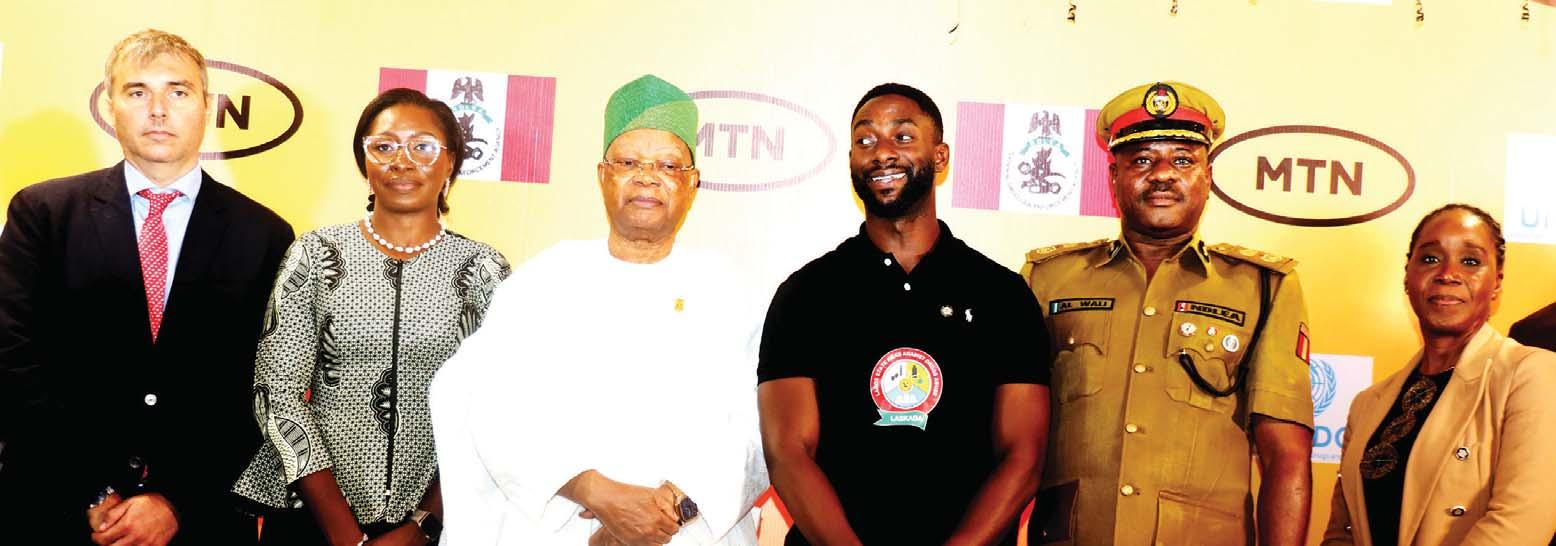
There are strong indications that the ongoing minimum wage talks by organised labour, the federal government, states, and local governments may end up with a N70,000 compromise deal.
An inside source told THISDAY that an executive bill from President Bola Tinubu would still be sent to the National Assembly any moment next week, as the tripartite committee recommended N62,000 minimum wage.
But the National Assembly might just, as it did in 2019, approve more than what was sent to it by the president.
A member of the tripartite committee, who spoke to THISDAY on condition of anonymity, said Tinubu had concluded plans to send the compromise minimum wage of N62,0000, but the National Assembly might likely jack it up to N70,000 as their own input.
The source explained, "This was exactly the situation that played out in 2018 and 2019. The federal government sent a minimum wage bill
recommending a minimum wage of N23,000, but the National Assembly increased it to N30,000
"This scenario will play out when the National Assembly gets the minimum wage bill any moment from now. The role to be played by the National Assembly is one of, ‘we feel your pains and therefore considering the economic realities, we are increasing the minimum wage to N70,000’.
"Though some states will still insist that they cannot pay, the federal government will persuade the states to pay and
where necessary give the states a bailout that will encourage them commence payment, in the first instance.”
THISDAY learnt that the federal government’s negotiating team and leaders of the National Assembly were moved to adopt this position since Edo State had already started paying the N70,000 minimum wage.
As part of this compromise, it was also gathered that some of the governors were calling for a new revenue sharing formula to enable them pay both the new minimum
The federal government has issued a flood alert in 15 states across the country.
That was as the Lagos State government, yesterday, said it remained resolute in its quest to make the state and the metropolis flood free.
The National Flood Early Warning System (FEWS) centre of the Federal Ministry of Environment, Abuja, in the alert stated that the listed locations and their environs were likely to witness heavy rainfall that might lead to flood within the period of prediction: June 21 – 25, 2024.
The affected areas are as follows, according to the alert:
· Adamawa State – Abba Kumbo, Demsa, Farkumo, Ganye, Gbajili,
Jimeta, Mubi, Natubi, Shelleng, Song, Wuro- Bokki, Mayo-Belwa.
· Benue State – Agyo, Ugbokpo.
· Borno State – Maiduguri.
· Jigawa State – Hadejia.
· Kaduna State – Kauru.
· Kano State – Gezawa, Gwarzo, Kano, Karaye, Kunchi, Wudil.
· Katsina State – Daura, Jibia.
· Kebbi State – Argungun, Bagudo, Bunza, Gwandu, Ribah, Sakaba, Shanga, Yelwa.
· Kogi State – Abejukolo, Omale, Zugbe.
· Nasarawa State – Gidan Dogo, Keana, Lafia, Loko, Rukubi, Tunga, Udeni.
· Niger State – Magama.
· Plateau State – Langtang, Wase.
· Taraba State – Bandawa, Donga, Kwata Kanawa, Lau, Ngaruwa, Yorro.
· Zamfara State – Anka, Bukkuyum, Gummi.
In another development, Permanent Secretary, Federal Ministry of Environment, Mr Mahmud Kambari, called for the provision of safe, functional sanitary facilities and waste management materials in communities across the country, insisting that it is key to tackling infectious diseases.
Kambari spoke at the weekend, during the commemoration of National Environmental Sanitation Day at Piwoyi community, Abuja, with the theme, “Go green, stay clean, climate change is real.”
Pollution Control and Environmental Health, Ministry of Environment, Mr Olubunmi Olusanya, said provision of those facilities would go a long way in promoting public health and improving the sanitary condition of people living in rural communities.
Meanwhile, the Lagos State Commissioner for Environment and Water Resources, Mr. Tokunbo Wahab, in an interview after an extensive inspection tour of various contravention sites, said the government would continue to enforce the law while reclaiming drainage setbacks.
Wahab said the team was on routine inspection to ascertain the state of some drainage channels, with a hind sight that most flooding issues were caused by negative human activity. States
· Sokoto State – Gagawa, Goronyo, Isa, Shagari, Silame, Sokoto, Wamakko.
The permanent secretary, who was represented by Director,
Adedayo Akinwale in Abuja
The immediate-past Director General of the National Inland Waterways (NIWA), Chief George Moghalu, has denied social media reports that he has left the ruling All Progressives Congress (APC) to join the Labour Party (LP) Moghalu, who disclosed this yesterday in Abuja during a media interaction, maintained that he was still a card-carrying member of the APC.
The former member of the National Working Committee (NWC) of the APC explained that if he decides to continue
with politics or join another political party, it would be after due consultations. He said: “You must understand that at my level in politics in this country, I have never jumped from one party to the other. However, if I must leave the APC for LP, it has to be consequent upon my signing a statement from a recognised representative or my media office. And not until that happens, I will say that I am still with the APC.”
The APC chieftain admitted that the social media report about him joining LP generated concern which made people
across the globe to call him to confirm the authenticity of the report.
Moghalu stated: “My answer has been that as of today, I have not left the APC. If I am going to leave the APC, there is a process, especially for somebody at my level.
“The process has to do with resigning membership from where I am now, not by proxy; but by formally writing to notify my ward about my intention to leave the party and I will make the resignation public. I may not give any reason because I am at liberty as my fundamental right.
“If I decide to continue with politics or join another political party after due consultations, I will announce where I am going. I may even decide to play politics without joining any political party. I can be an independent player, and even though there is no independent candidacy, I can be an independent influencer or driver of the process.
“That does not make me a non-political actor. It is not only until you belong to a political party that you are a politician. And let me repeat, if I decide to leave the APC I will announce it publicly.”
wage and the consequential adjustments that could follow.
Nigeria Governors Forum (NGF) had insisted about two weeks ago that the N60,000 minimum wage was not sustainable.
NGF said it was in agreement that a new minimum wage was due, as they sympathised with labour unions in their push for higher wages.
However, NGF’s acting Director of Media and Public
Affairs, Hajiya Halimah Salihu Ahmed, said the forum urged all parties to consider the fact that the minimum wage negotiations also involved consequential adjustments across all cadres, including pensioners.
NGF cautioned parties in the important discussion to look beyond just signing a document for the sake of it, saying any agreement to be signed should be sustainable and realistic.
Governor Babajide Sanwo-Olu of Lagos State, has praised Reckitt, a global leader in health, hygiene, and nutrition, for its tireless efforts in promoting public health and hygiene in Nigeria.
At a recent Social Impact Stakeholders Dinner in Lagos, Governor Sanwo-Olu commended Reckitt's initiatives, stating that the company "exemplifies the Nigerian spirit" and has become a "driving force for change".
Responding to the governor's remarks regarding a collaboration with the Lagos State government, Reckitt's Global CEO, Kris Licht, said, "We appreciate that you're here celebrating all the great work of our social impact programme.”
He reaffirmed the company's commitment to Nigeria, emphasising the significance of its social impact programs.
"Access to clean water, hygiene products, and healthcare should be a human right, not a privilege, and that's what we are working on," Licht stated.
The event brought together dignitaries, partners, and stakeholders to celebrate Reckitt's social impact initiatives and discuss future collaborations to build healthier communities.
The Stakeholders Dinner showcased Reckitt's flagship social impact initiatives, including the Clean Naija campaign and the Hygiene Quest.
The Clean Naija initiative aims to improve hygiene standards across Nigeria through education and community engagement. Similarly, the Hygiene Quest has made remarkable
progress in reaching school children with essential hygiene education, aiming to educate 10 million children by 2035. These programs are instrumental in promoting good hygiene practices and preventing diseases.
Additionally, Reckitt's efforts in supporting the Lagos State government's mission to end open defecation were highlighted through the Harpic End Open Defecation initiative. This program has made significant strides in promoting proper sanitation practices and providing access to clean toilets in underserved communities.
The social impact and stake-holders dinner marks a significant chapter in Reckitt's ongoing mission to protect, heal, and nurture in the relentless pursuit of a healthier Nigeria. Reckitt remains committed to driving positive change through innovative solutions and strategic partnerships, ensuring a lasting impact on public health in Nigeria and beyond.
Other notable guests at the event included British Deputy High Commissioner Jonny Baxter, Chairman of Reckitt Nigeria Ltd Chief Olu Falomo, and President and Founder of The Wellbeing Foundation Africa, Toyin Saraki. Their presence underscored the collaborative effort required to address Nigeria's critical Water, Sanitation, and Hygiene (WASH) challenges. With Reckitt's commitment and the Lagos State government's support, Nigeria is poised for a significant public health and hygiene transformation.
As Governor Sanwo-Olu emphasised, "We look forward to your continued success for many years to come.”
Michael Olugbode in Abuja
L-R: Executive Director Civil Society Legislative Advocacy Centre ( CISLAC)/
The immediate past local government council chairmen in Rivers State have alleged that members of the Nigeria Union of Local Government Employees (NULGE), Nigeria Labour Congress (NLC), and Trade Union Congress (TUC) were planning to stage a protest against the Nigeria Police over the political crisis in the state. The state NLC chairman,
Alex Agwanwor, and his TUC counterpart, Ikechukwu Onyefuru, had during a briefing at the weekend said they backed the four days ultimatum issued by the state president of NULGE, Clifford Paul, to the police to vacate the councils or the union will mobilise its workers for a protest, saying organised labour is already preparing to do the needful. However, at a press briefing yesterday in Port Harcourt, the former chairmen, led
by the immediate past state chairman of Association of Local Governments of Nigeria (ALGON), Mr Allwell Ihunda, said the meeting was to inform the world about what was going on in the state.
Ihunda, alongside his colleagues, stated that the recent appointment of caretaker committee members by Governor Siminalayi Fubara for the 23 local government areas was against a subsisting court order that parties involved in
the lingering crisis in the state should maintain status quo. He stated, "We are here today to bring to the attention of the world what is happening in Rivers State. We are aware that in spite of the matter in Court of Appeal, that on the 19th of June, the governor of Rivers State went ahead to appoint caretaker committee members of the 23 local government areas, in spite of the fact that the Court of Appeal has stated
Chuks Okocha in Abuja
A former special adviser to President Olusegun Obasanjo and the Social Democratic Party (SDP) governorship candidate in Adamawa state, Dr.Umar Ardo, has appealed to the Sultan of Sokoto as the head of the caliphate, to intervene in the emirship tussle in Kano State, because his continued silence was no longer golden. Ardo also called on politicians
involved in the Kano chasm to retrace their steps Ardo, in a statement said, "To this end, I call on His Eminence the Sultan, as head of the Caliphate estate, to immediately summon a meeting of Northern Traditional Rulers Council to deliberate on the matter and advise all concerned to the issue as to the best possible solution to the matter.
"For the traditional leaders, their absolute silence on an issue that directly affects their
own very institution is not at all golden.
"In fact, it is disappointing and denigrating to the traditional entity itself, portraying the occupiers of the institution’s stools as ineffective and their heritage and values as irrelevant in solving even their own institutional problems in modern society.
"As pointed out above, the Caliphate establishment is the umbrella that gives cover to all of us its members; it is our
heritage and our pride, and we therefore cannot and should not sit by and watch the misinformed attempt to destroy its relevance and glory.
"And every right thinking northerner should feel sad as well. I equally feel disappointed with especially the Kano politicians whom I put the entire blame on for, by their faulty judgements, both in governance and politics, instigating the whole unfortunate situation," he said.
Adedayo Akinwale
About 50 members of the House of Representatives have written to President Bola Tinubu, demanding the release of the leader of the proscribed leader of the Indigenous People of Biafra (IPOB), Nnamdi Kanu, from prison.
The lawmakers under the aegis of Concerned Federal Lawmakers for Peace and Security in the South East called on the President to invoke section 174 of the constitution of the federal republic of Nigeria, 1999 (as amended) and section 107(1) of
administration of Criminal Justice Act, 2015 for the release of Kanu from detention to aid the restoration of peace in the South East.
The lawmakers, who hail from different Political Parties and geopolitical zones across the nation, also appealed to President Tinubu to commence a presidential peace initiative to address all issues and challenges bedeviling the southeast region of Nigeria.
The signatories to the letter dated June 19, 2024, were Hon. Obi Aguocha (Abia), Hon. Ikenga Ugochinyere (Imo), Hon. Afam
Ogene (Anambra), Hon. Abiante Awaji-Inombek (Rivers), and Hon. Aliyu Mustapha (Kaduna), among others.
The lawmakers recalled that the president extended this gesture through the office of the Attorney General in the charge involving Omoyele Sowore wherein, he was charged with treasonable felony in Charge No FHC/ABJ CR/235/2019, Sunday Igboho and so on.
The lawmakers believed that it was long overdue and would be instrumental in opening the door for much-needed conversations
surrounding peace restoration and inclusivity as well as addressing the issues that led to the agitations. Against this background, they urged the President to direct the Attorney-General of the Federation and Minister of Justice, Prince Lateef Fagbemi SAN to invoke his powers of nolle prosequi under the provisions of Section 174(1) of the Constitution and Section 107(1) of the Administration of Criminal Justice Act 2015 and cause the release of Mazi Nnamdi Kanu from detention and discontinue his trial.
Michael Olugbode in Abuja
The federal government has called on all Nigerians to be more vigilant, imbibe good sanitation and hygiene practices at home and in their workplace, as well as take preventive measures to combat the spread of cholera.
Minister of State for Environment, Dr. Iziaq Salako, stated that the World Health Organisation (WHO)
hag confirmed the ongoing cholera outbreak in Nigeria as part of the global resurgence of cases of cholera, classifying it as "grade 3 public health emergency". Salako said the outbreak required maximal WHO system wide response. Nigeria was identified as one of the 14 countries in Africa where the resurgence was being experienced.
The minister said, “The Federal Ministry of Environment is deeply
concerned about the ongoing cholera outbreak in some states of Nigeria, which has tragically claimed many lives and affected many communities.
“Recent situation report from the Nigeria Centre for Disease Control (NCDC) indicated a total number of 1,159 suspected cases, 65 confirmed cases, and 30 deaths across 30 states.
“The states most affected, contributing 90 per cent of the
total cases, include, Bayelsa, Lagos, Zamfara, Abia, Bauchi, Cross River, Ebonyi, Delta, and Katsina.”
Salako added, “To prevent the spread of cholera, we urge all Nigerians to be more vigilant, imbibe good sanitation and hygiene practices at home and in their workplaces and take preventive measures, such as: keeping their environment clean always and disposing of waste properly at designated places.
clearly that all parties should maintain status quo on all the suits before the appeal court; and inclusive of the matter at the Supreme Court."
Ihunda faulted the appointment of the caretaker members, and said members of the committee were mostly civil servants and members of NULGE. He alleged that NULGE had planned with NLC and TUC to carry out a protest on June 24 “against the police the IGP has ordered to stay in the councils to maintain law and order, so that there would not be further deaths. as we experienced in Omuma LGA”.
The Benue State Government has asked for patience from the people of the state for his government and that of the Tinubu-led federal government, assuring that the APC government would continue to do its best for the people of Benue.
Alia disclosed this on Saturday during his thank you tour to Okpokwu, Ado and Ogbadigbo Federal Constituency held in Okpokwu
He said every achievement he recorded has been with the cooperation of President Tinubu.
He said the construction of roads, underpass, payment of salaries, pensions and gratuities, remodeling of Assembly Complex, State Secretariat, were possible because of the support of the
president.
Alia further said the president had given him unimaginable support and urged the people of the state to be patient with him as the President had “very good intentions for the citizenry”. He, however, promised to donate a brand new 5000kv transformer, and the construction of roads for the three local government areas Ado, Okpokwu, and Ogbadibo local government areas Benue state.
The governor also promised to renovate and upgrade the Ibrahim Badamosi Babangida (IBB) Square in Makurdi to international standard, adding that the facilities at the over 30-year-old square constructed during the military era were outdated and needed urgent attention.
Kasim Sumaina in Abuja
The Federal Road Safety Corps (FRSC), weekend, said at no time did it intend to abolish patrol points in four Southeast states of Ebonyi, Enugu, Imo and Abia.
The FRSC, in statement yesterday in Abuja by acting Corps Public Education Officer, FRSC National Headquarters, Olusegun Ogungbemide, said it attention was drawn to the press statement published in some media platforms insinuating that the FRSC had abolished patrol points in four Southeastern states of Eboyi, Enugu, Imo and Abia.
The misleading statement, it said was attributed to the address presented by the zonal commanding officer of Zone 9 Headquarters Enugu, Assistant Corps Marshal Uche Chukwurah during her visit to the Abia State Sector Command, Umuahia.
"Even though the statement by the zonal commanding officer was meant to reaffirm the stand of the
National Headquarters of the FRSC on the new operational strategy that will de-emphasise static patrol, which comes in the form of roadblock, it was unfortunately misconstrued to mean abolition of patrol points in the zonal command based on security threats.
"Nothing can be further from the truth as the statement was not only misleading but capable of giving wrong information to unsuspecting members of the public on the intention of the FRSC management on the ongoing operational rejigging not targeted at the Southeastern states of the country but the nation at large.
Editor:
Kayode Tokede writes that with its ongoing N127 billion capital raising exercise, Fidelity Bank Plc is eying new opportunities and is on the path to better performance as a global lender
The management of Fidelity Bank Plc since 2023 got shareholders’ approval to raise additional capital before the Central Bank of Nigeria (CBN) official announcement in March 2024.
The bank on June 20, 2024 commenced its Public Offer of 10,000,000,000 ordinary shares of 50 kobo each at N9.75 per share and Rights Issue of 3,200,000,000 ordinary shares of 50 kobo each at N9.25 per share.
This will translate into N127.10 billion fresh capital once the offer comes to an end July 29, 2024.
The additional capital will bring Fidelity Bank’s outstanding capital to 45.2 billion, ahead of Zenith Bank and Guaranty Trust Holdings Company Plc that currently have 31.39billion and 29.43billion outstanding shares on the Nigerian Exchange Limited (NGX), respectively.
The capital is purposefully meant to increase the lender’s capital base, upgrade Information Technology (IT) infrastructure, business and regional expansion, and improve product distribution channels.
Addressing capital market community on the new capital exercise, at the Nigerian Exchange Limited (NGX) week, Managing Director(Chief Executive Officer(CEO), Fidelity Bank, Dr. Nneka Onyeali-Ikpe, explained that the new capital raising was driven by its proactive business expansion plan having secured shareholders’ approval to raise new equity funds as early as August 2023.
“The offer will increase our capacity to support our customers and their businesses. In summary, this capital raise will help our customers to grow, their businesses to thrive, and their economy to prosper,” Onyeali-Ikpe said.
She assured all stakeholders that with its groundswell of supports from enthusiastic shareholders, customers and stakeholders, the bank is on course to achieving the N500 billion new minimum capital base, which will clearly confirm the bank, beyond any doubt, as one of the biggest banks in Nigeria.
Onyeali-Ikpe noted that being the first bank to launch offer out of the many banks in Nigeria after the CBN’s directive, Fidelity Bank has shown again to be a pace-setter.
According to her, Fidelity Bank sees the CBN recapitalisation directive as a significant opportunity for a stronger and more resilient banking industry.
“We have embraced the challenge as a catalyst to propel us, towards a long-term vision of becoming a market leader across every product that we offer and segment that we sell, not just in Nigeria, but as an international bank,” Onyeali-Ikpe said.
She said the proceeds of the N127.10 billion capital raising exercise would be instrumental in achieving its strategic growth plan.
She highlighted that the funds, firstly, would be deployed to drive, business growth and regional expansion.
“We will strategically expand our footprints within and outside Nigeria to serve as a broader customer base and to unlock new market opportunities.
“Secondly, we will have what we call technological transformation. We are committed to leveraging proprietary technology to improve operational efficiency and deliver exceptional customer service.
“Thirdly, we intend to diversify and grow. By investing in information technology (IT) infrastructure and product distribution channels, we will aim to diversify our earnings base through digitalization and business expansion,” Onyeali-Ikpe said.
She said the management recognised the importance of investors and are committed to delivering value to them as well.
“Our track record of accelerated growth

and consistent dividend payment is a testament to this,” Onyeali-Ikpe said.
Speaking also, the Executive Director, Fidelity Bank, Mr. Stanley Amuchie, in a presentation, said the commercial bank has a strong market positioning in the Nigerian banking industry, stressing that notwithstanding the significant changes in the competitive landscape of the Nigerian banking sector, it has continued to perform well.
On rationale for the offer, he expressed that “due to the advances in technology and rapid evolution of banking business, it is imperative that Fidelity Bank is properly positioned to remain a competitive and forward-looking institution.”
According to him, Fidelity Bank is seeking to undertake landmark projects and business initiatives that would redefine its business structure, diversify earnings base and grow market share in the real sector of the economy.
“Fidelity Bank plans to capitalise on the vast opportunities available in Nigeria by expanding its existing domestic business.
“The bank aspires to expand its service touch points to select African countries, taking a cautious but value driven approach towards foreign market entry.
“Fidelity Bank is committed to its strategic plan of providing straightthrough services that meet and exceed the needs of its growing clientele” he added on the rationale f behind the N127.10 billion capital raising exercise. He stated that the bank remains focused on growing its reach within and beyond Nigeria, amplified by the acquisition of Union Bank UK Plc.
“Sustained year-on-year growth in asset base, revenue and profit; increased capital will guarantee sustained growth and shareholder return,” he added.
Fidelity Bank over the years has sustained growth momentum in top to bottom line performance profit and rewarded shareholders with robust dividend payout.
In 2023 full year, for instance, the bank declared N556billion gross earnings, representing an increase of 170 per cent from N206 billion declared in 2020FY. Also, profit before tax moved from N28 billion in 2020FY to N124 billion, representing an increase of 343per cent.
In terms of assets, Fidelity Bank has seen its total deposits from N1,699billion in 2020 to N4,015billion in 2023, while net loans crossed the N3 trillion mark to N3,092 billion in 2023 from N1,326billion reported in 2020.
The three-month report, released at the NGX, showed that gross earnings increased by 89.9 per cent to N192.1 billion in first quarter (Q1) 2024.
The bank’s top-line performance continued to be driven by broad-based growths across income lines with interest income rising by 90.7 per cent and noninterest income growing by 84 per cent in Q1 2024.
Growth in interest income was primarily spurred by a higher yield environment and strong earning assets base, while the increase in non-interest income was led by double-digit growth in account maintenance charges, foreign exchange (forex)-related income, trade,
banking services, and remittances, supported by increased customer transactions.
Profit before tax doubled by 120 per cent to N39.5 billion in Q1 2024 as against N17.9 billion in first quarter 2023.
The bank’s performance was driven by expanding market share with total deposit rising by 17 per cent within the three months to N4.7 trillion, compared with N4 trillion recorded at the end of 2023. The bank also increased its supports for national economic growth with net loans and advances rising by 21 per cent from N3.1 trillion at the end of 2023 to N3.7 trillion by March 2024.
A recent analysis has shown that lender’s outperformed all major market indices for measuring returns at the stock market, with the bank’s average annual return over the past five years twice the average return by the overall market and almost four times of average return in the banking sector.
A review of official trading reports at the Nigerian stock market showed that investors in Fidelity Bank have earned more than 507 per cent in capital gains over the past five years, between May 31, 2019 and May 31, 2024 Fidelity Bank’s share price rose by 507.14 per cent over the period, representing average annual capital gain of 101.43 per cent. This significantly exceeds all other major return benchmarks, including the banking sector.
With 507 per cent capital gain in five years and average annual gain of more than 100 per cent, the return analysis implies that investment in Fidelity Bank is more attractive than other class of assets, including fixed-income securities such as government and corporate bonds; real estate investment and mutual funds among others.
These returns underscore Fidelity Bank’s immense value as a stock for all times, helping investors to hedge against inflation while preserving significant long-term value.
The high divisible nature of shares investment and high free float of Fidelity Bank, which makes the bank’s shares easily available, underline the bank as a most attractive investment option for all cadres of investors- small, medium and high networth; retail and institutional investors.
The All Share Index (ASI) - the common, value-based index that tracks all share prices at the NGX, which is widely regarded as Nigeria’s benchmark for stock market, recorded a five-year return of 219.61 per cent, an average annual return of 43.9 per cent.
Contrary to the significantly above average performance of Fidelity Bank, the NGX Banking Index-which tracks the banking sector, doubled by 120.53 per cent over the five-year period, representing average annual return of 24.11 per cent, more than 77 percentage points below Fidelity Bank’s average return.
Fidelity Bank is quoted on the main board, like most other major banks and companies at the stock market.
The average annual return of 101.43 per cent underlines that Fidelity Bank provides substantial return for investors, even where such investors had borrowed money at the ruling interest rate and the invested fund was adjusted for impact of inflation rate.
Nigeria’s inflation rate peaked at a high of 33.69 per cent in April 2024 while the Central Bank of Nigeria (CBN)’s Monetary Policy Committee (MPC) recently increased the Monetary Policy Rate (MPR), otherwise known as benchmark interest rate, to 26.25 per cent.

L-R : Moderator/Facilitator of Programme, Ganiyat Adisa; representative, International Federal of Women Lawyers (FIDA), Uchenna Ogwo; Executive Director, Dave Enechukwu Foundation, Ifelunwa Meg Aipoh, and representative of Lagos State Ministry of Women Affairs & Poverty Alleviation (WAPA) Motunrayo Kasali, at a training to strengthen Women Against Gender-based Violence in Lagos…recently
Chuks Okocha in Abuja
Socio-Economic Rights and Accountability Project (SERAP) has petitioned the World Bank Inspection Panel urging it “to probe allegations of corruption in the spending of the loans and other funding facilities obtained by the federal government and Nigeria’s 36 state governors and to review the implementation of all bank-funded projects
by successive governments since 1999.”
SERAP urged the Inspection Panel “to determine the extent to which bank management has followed or is following the World Bank’ s operational policies and procedures applicable to the design, appraisal and implementation of all Bank-financed projects in Nigeria.”
SERAP also urged the panel “to determine the effect of any
Olusegun Samuel inYenagoa
Few days after the Bayelsa State governor, Duoye Diri, vowed to prosecute former Governor and immediate past Minister of Petroleum, Timipre Sylva, over alleged hand in the killing of a Bayelsa youth during the November 11 gubernatorial poll in the State, the Ijaw Professionals have called on the governor, to stop hitting up Bayelsa and the Ijaw nation with his ill-advised campaign and media trial against Sylva.
The group said the strategy adopted by Diri in his quest for political survival was casting
aspersion on Bayelsa and embarrassing the entire Ijaw ethnic nationality.
The Bayelsa state governor at the burial of the youth in Brass Local Government Area, ordered the State Attorney General to begin the process of prosecuting the former governor and other over the death of the youth.
But the group in a statement signed by its Secretary, Clarkson Ayebaepreye, said Diri’s recent attempt which is borne out of political exigency to force an allegation of murder down the throat of Sylva, was a shameful voyage that would only cast the Ijaw nation in bad light.
The General Superintendent, Assemblies of God, Nigeria, Rev Paul Emeka, has urged leaders in the country to ensure effective transmission of leadership.
Emeka, who was on apostolic visit to Abuja Central District, during the election of new executives, said leaders in the country should always plan to transmit power to their successors.
The election saw the emergence of Rev. Dr. Emeka Eze as Abuja Central District Superintendent, Rev. Emanuel Omole, Assistant District Superintendent and Rev.
failure by the bank management to effectively implement its operational policies and procedures in all bank-funded projects in several states on the
social and economic rights and well-being of millions of socially and economically vulnerable Nigerians.”
SERAP’s complaint followed
the Debt Management Office (DMO)’s report last week that Nigeria’s total public debt stock, including external and domestic debts, increased by N24.33
Michael Olugbode in Abuja
Operatives of the National Drug Law Enforcement Agency (NDLEA) have busted a snakeguarded shrine used to store illicit drugs in Igor community in Benin-city, Edo State.
A statement issued esterday by the spokesman of the
Yinka Kolawole in Osogbo
The Special Adviser to the Osun State Governor on Health Matters, Dr. Adekunle Akindele, has lambasted the state All Progressives Congress (APC) on the clever but condescending effort
anti-narcotics agency, Femi Babafemi, said operatives of NDLEA detected a specially constructed large hole storage in a wall covered with wallpapers and fetish objects during a raid on a shrine where different quantities of illicit substances such as methamphetamine, Loud, Colorado and Arizona, all strong
to misrepresent the state of the health sector in the state, saying that the APC lacks the temerity to downplay ongoing efforts by the state Governor, Ademola Adeleke’s administration to reposition the health sector for effectiveness. Akindele at the weekend, while
trillion in three months alone, from N97.34 trillion ($108.23 billion) in December
to N121.67 trillion ($91.46 billion) as of March 31, 2024.
strains of cannabis with a total weight of 8.743 kilogrammes, were pulled out from the deep hole dug in the wall of the shrine building.
He said at least, two ladies-Sonia Ezumezu and Risikatu Tijani-were arrested during the intelligence-led operation last Tuesday after the big black snake guarding the shrine was demobilized.
He also said two suspects, Obi Ferguson,45, and Ernest Abanum, 46, were arrested on Saturday when NDLEA operatives raided the Usen forest in Ovia South West Local Government Area of Edo State where 209 kilogrammes of cannabis and a motorcycle were recovered.
reacting to Sooko Tajudeen Lawal, the state APC chairman’s bogus assessment of the health sector in the state under Governor Adeleke, said the APC demonstrated a lack of understanding that near-collapsed health sector it left for the Adeleke administration to inherit.
He noted that contrary to the narrative that the APC try to sell, Governor Adeleke has taken initiatives and interventions to address the disturbing negligible that the health sector suffered under the APC administration.
The Administrator of the Presidential Amnesty Programme(PAP), Dennis Otuaro, has urged ex-agitators enrolled in the programme to avoid anything that is inimical to peace and security in the Niger Delta.
Abraham Odey, District Secretary. Others are: Rev. Femi Omole, District Treasurer and Rev. Theophilus Ikechukwu as member.
While congratulating the new leaders, he said transmission of power builds the chain of success in every leadership space.
He said: “Handover or transmission is not a one day’s job, that is why planning is necessary. We also know that poor transmission leads to poor leadership. You have to be ready to transmit your legacy, values to the generation coming after you.”
The Bauchi State government has completed plans to revitalise its tourism sector as part of efforts to attract tourists from all over the world.
According to him, “The installation of solar power is set to resolve the longstanding issue of national grid inconsistencies.
“These developments signal a new era for tourism in Bauchi State, poised to showcase its unique cultural heritage and natural wonders to the world,” the commissioner said.
The commissioner urged the ambassadors to serve as tourism ambassadors for Bauchi State, sharing their experiences and spreading the word about the wonders of Yankari Game Reserve to the global community.
The State Commissioner for Tourism and Culture, Abdul Hassan, made the disclosure while receiving tourism ambassadors from the state who visited him at his office yesterday. Hassan emphasised that the state is dedicated to tapping into its vast tourism potential, citing ongoing projects such as the renovation of the renowned Yankari Game Reserve, which has progressed to 50 per cent completion.
Otuaro urged them to promote peace and security in the oil rich region, emphasising the importance of avoiding actions that could undermine the objectives of the PAP
The administrator made this charge at a stakeholders’ meeting with former agitators in Warri, Delta State, with the theme: “Fostering, Consolidating, and Collaborating for the Peace, Security, Stability, and Development of the Niger Delta.”
The Special Assistant on Media to Otuaro, Igoniko Oduma said in a statement yesterday that participants at the meeting included leaders from all phases of the PAP.
Otuaro stressed that all stakeholders in the region must work towards this goal and consolidate the success of the PAP to prevent the Niger Delta from relapsing into the pre-amnesty years of serious conflicts and violence, which negatively impacted the region and the country.
“Sustaining the peace and security of the Niger Delta is the mandate of the Amnesty Programme, and we must do this for our communities, our children, and their children,” Otuaro said.
No fewer than 3,000 youth farmers in Kwara State have been empowered with agricultural inputs, free land clearing and improved seedlings to facilitate improved food security the state.
The empowerment was
facilitated by the DirectorGeneral of the National Institute for Legislative and Democratic Studies (NILDS), Professor Abubakar Sulaiman, in partnership with a farmer group, Kwara Renaissance Group (KWRG) in the state.
Speaking at the event in Ilorin,
Professor Suleiman said that the programme was aimed to address current high cost of food in the country.
He also said that the intervention was aimed to complement efforts of both the federal and state government to ensure food sufficiency.
He added that it will also develop capacity of local farmers in such areas of rice and all food crops cultivation in the state.
“It is an inspiration borne out of the need to feed ourselves and feed the nation because we’ve been undergoing a lot of crisis.
A devastating fire broke out at the headquarters of Christ Embassy, located in the Oregun area of Lagos, Nigeria, in the early hours of yesterday, destroying a great portion of the property.
The blaze, which started in the early hours of the morning,
razed a significant portion of the church building.
Sharing a video from the location, Augustine tweeting as Chief_Augustin1 on X.com wrote, “Christ Embassy Church on Billings Way, Oregun, is on fire.
“Serious fire is raging, and men of the Lagos State Fire Service are working hard to put it off. Thank God service hasn’t commenced fully.”
Fortunately, no injuries or fatalities were reported, as the fire occurred before the start of church services. However, the cause of the fire remained unknown and is currently under investigation.
The Lagos Fire Service responded promptly to the incident, with firefighters working tirelessly to contain the blaze and prevent its spread to nearby buildings.
Speaking about the incident, the Lagos State Fire and Rescue Service has said the cause of the fire was yet to be determined.
KasimSumainainAbuja
The Federal Road Safety Commission (FRSC) at the weekend said at no time it intended to abolish patrol points in four South-eastern states of Ebonyi, Enugu, Imo and Abia. The FRSC in statement issued yesterday in Abuja by the acting
Corps Public Education Officer, FRSC National Headquarters, Olusegun Ogungbemide, noted that its attention has been drawn to a statement published in some media platforms insinuating that the FRSC has abolished patrol points in four states of Ebonyi, Enugu, Imo and Abia.
“The misleading statement,” it said, was attributed to the address presented by the zonal commanding officer of Zone 9 Headquarters Enugu,Assistant Corps Marshal Uche Chåukwuråah, during her visit to the Abia State Sector Command in Umuahia. FRSC said:
“Even though the statement by the zonal commanding officer was meant to reaffirm the stand of the National Headquarters of the FRSC on the new operational strategy that will de-emphasise static patrol which comes in the form of roadblock, it was unfortunately misconstrued to mean abolition of patrol points in the zonal command based on security threats.
Nuhu Ribadu of orchestrating the return of Emir Aminu Bayero to the state in a private jet and of providing to him security and even military cover to enter and take over the emir’s Nasarawa mini palace. Ribadu did not take kindly to the charge and he threatened to sue the deputy governor, who publicly withdrew the allegation and apologized. Ok, two quick observations stemming from that. One, after that fiasco, I thought KNSG officials will learn to mind their language lest they worsen the crisis, but that was exactly what Sanusi Bature did by characterizing the imbroglio as a fight to finish. He had good cover though, because a few days earlier, while speaking during the inauguration of a rural roads network in Madobi Local Government, Kwankwasiyya national leader and NNPP presidential candidate in the 2023 election Alhaji Rabi’u Kwankwaso uttered some harsh words. He said, among others that, security agencies were backing Emir Aminu Ado-Bayero; that the Federal Government was listening to the wrong people in making decisions on the emirate issue; that Federal Government is trying to declare a state of emergency in Kano State and remove its elected authorities, and that, “We will not fold our arms and watch enemies of the state destroy the peaceful co-existence of our dear state… Some people from Kano, who are enemies of the state, are the ones advising the Federal Government on how to take over Kano through a state of emergency. This is madness of the highest order that the good, peace-loving, and committed people of Kano will resist.”
The second observation is, even though the NSA has denied being the Federal power behind Emir Aminu Ado Bayero and has forced KNSG to backtrack on the charge, anyone can see that there must be an enormously powerful Federal hand,
at least as powerful as the NSA, who is pulling the strings. Kwankwaso’s long diatribe appeared to be pointing fingers at former state governor and current APC national chairman Abdullahi Ganduje. Ok, Ganduje will certainly be the last person to like what the Kwankwasiyya people are doing, dismantling the four new emirates he created, removing the emir of Kano he appointed and restoring the emir he deposed for insubordination and for taking sides with his Kwankwasiyya foes, who were then in PDP.
While Ganduje is chairman of the ruling party, he is not a Federal Government official per se and could not be the one who is dishing out orders to the security agencies in Kano to protect Emir Aminu Ado, up to and including providing military escorts. Who really can send soldiers to guard a palace without the permission of the President, who is the commanderin-chief? The Presidency however denied Kwankwaso’s allegation that it is plotting to declare a state of emergency in Kano. I tend to believe its denial if for no other reason than that, since 2004 when President Obasanjo declared a state of emergency in Plateau State and removed its governor and state assembly for six months, it is now commonly agreed that such power is unconstitutional. The Supreme Court ruled in 2008 in Atiku Abubakar’s case that president, vice president, governor and deputy governor can only be removed by one of four ways expressly stated by the 1999 Constitution, i.e. resignation, incapacitation, impeachment or death. In 2013 when President Goodluck Jonathan declared a state of emergency in three North Eastern states to fight Boko Haram, he wanted to remove their governors and state assemblies, appoint Sole Administrators and take over their treasuries but Speaker Aminu Tambuwal stood firm, saying the president had no
mixture of court jesters, government officials, professionals, a sprinkle of environmental activists, academia, and political jobbers for COP 28 in Dubai? Nigeria had the third highest delegation to COP 28, even though we contribute less than 0.0001% to climate change and its minimal impact on us. A public uproar was raised, but it came down before long because it is our culture and an acceptable habit amongst the elite.
Third, most recently, Nigeria's delegation, according to The Cable ,a digital news platform , was the largest among 187 countries to the International Labour Organisation's (ILO) 112th conference in Geneva, Switzerland. This is happening at a time when the economy of the country is in some form of life support.
The final example that raised curiosity was the news that the government reportedly spent N90 billion to subsidise the cost of the 2024 Hajj pilgrimage for citizens. The arithmetic of a huge subsidy for what o ught to be a private religious obligation in a period of economic distress required advanced economic numeracy to solve. The list of our profligate habits as a nation is unending.
Profligacy is not only akin to the political class and government. We see a preponderance of activities that scream profligacy at personal and social life levels. Nigerians are known for hosting grand and often extravagant celebrations, including weddings, birthdays, and funerals. These events can involve large guest lists, expensive venues, elaborate decorations, and abundant food and drink. There is a strong emphasis on displaying wealth and status, often through acquiring luxury goods such as high-end cars, designer clothing, and expensive jewelery. This can sometimes lead to excessive spending and financial strain. At social events, it is common to see money being "sprayed" or thrown at people, particularly the celebrants, as a sign of generosity and celebration. This practice, while culturally significant, is often seen as wasteful. EFCC is working hard to clamp down on this practice.
such power. Now, even if the President has no constitutional power to sack Abba Gida Gida and his lackey state assembly, the Federals have enough power to make things very uncomfortable for the governor. The biggest tool in their arsenal is control of security agencies, all of them including the police, intelligence agencies, military, Customs, Prisons, Immigration, Civil Defence and even Road Safety. The only forces at the state governor’s disposal are Hisbah and KAROTA, plus hastily mobilized Yan Daba thugs. It was a wonder therefore that following last Thursday’s confusing court order, Governor Abba Yusuf upped the ante in this struggle by ordering the State Police Commissioner to eject Emir Aminu Bayero from the Nasarawa mini palace, which he said was to be demolished for planned renovation. The governor relied on his constitutional description as chief security officer of the state, but he knows fully well that that description is hollow because Compols take their final orders from Force Headquarters, not from State Government Houses. FHQ appoints, deploys, pays, equips, disciplines, promotes and removes a Compol, so how can he obey anyone else’s orders? Compol Usaini Gumel promptly declared that he will not comply with the order, saying he has five conflicting court orders on his desk. Instead, he reinforced security at the mini palace. Governor Yusuf has many advisers but they apparently didn’t remind him of an episode during the June 12 1993 crisis, when someone went to court and asked it to revalidate the election that General Babangida annulled. The judge said “a court does not make an order in vain.” A governor too should not give an order in vain.
This episode will provide ammunition to both proponents and opponents of state police. While proponents will argue that
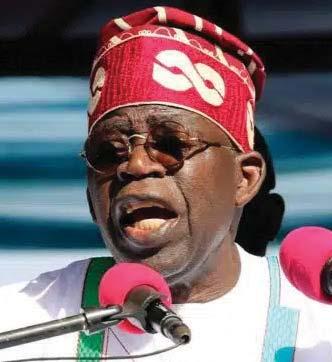
There is often societal pressure to conform to specific standards of appearance and lifestyle, leading individuals to spend beyond their means. This includes pressures to host large, expensive events or to own the latest luxury items. Maintaining social prestige and not "losing face" in many Nigerian communities can lead to extravagant spending. This can involve keeping up appearances through high
expenditure on clothes, homes, and social activities. Both the government and private individuals often accrue significant debts to finance their extravagant lifestyles or projects, leading to financial instability and long-term economic challenges. Resources are sometimes misallocated to non-essential projects or luxurious expenditures, neglecting crucial areas like healthcare, education, and infrastructure.
the constitutional provision of governors as chief security officers of their states can only have meaning if there is state police, opponents will say that this is exactly the fear, that governors will use state police in furtherance of political vendetta. One would have thought that Governor Yusuf has learnt his lesson from hasty demolishing of buildings. In his first week in office, he demolished many structures, ignored the counsel of former governor Ibrahim Shekarau to properly probe the allocations, and KNSG ended up with a bill to pay billions in compensation to some of the demolished property owners.
I do not have any privileged information, but I suspect that in the past year, a lot of behind-the-scenes discussion took place between Federal and Kano State chieftains regarding this matter of Kano emirship. While abolishing the four new emirates and restoring Muhammadu Sanusi II to the throne was a key [widely suspected but not publicly stated] Kwankwasiyya election plank, maintaining the new emirates and especially maintaining Bayero and keeping Sanusi off the throne is an irreducible political minimum for the Kano ACP, which happens to be a much-appreciated component of the Tinubu coalition. No wonder that both sides are dug in, security agencies are sucked in, the courts are sucked in, and the once exalted Kano throne has become a ping pong in this fight. There is no use in telling either side to back down. How is it all likely to end? Most probably, it will be stuck in the courts for years to come and Kano will have one Federal and one state emir at least until 2027. Just as Governor Yusuf, his deputy and all state officials regularly pay homage to Emir Sanusi, I suspect that Federal officials visiting Kano will soon begin to pay homage to Emir Aminu Bayero. The confusion will be complete.
In the business sector, some Nigerian corporations, especially those in the oil and gas sector, tend to pursue luxurious corporate lifestyles, including high-end office spaces, expensive company retreats, and lavish entertainment expenses. There are over-invoicing and kickbacks, where inflated contracts and procurement costs are used to siphon funds for personal gain.
Our entertainment industry is the window for showcasing opulence and luxury. Our Nollywood and Afrobeat often feature extravagant displays of wealth. Music videos and films frequently showcase luxury cars, opulent houses, and designer outfits. Our celebrities, including musicians, actors, and influencers, often lead lavish lifestyles, displaying their wealth and success through expensive purchases and luxurious vacations. This creates a culture of aspirational spending among fans and the public.
Understanding and addressing profligacy in Nigeria requires a multifaceted approach that includes cultural shifts and systemic reforms. Leaders have to led by example . We need to implement stricter regulations and oversight on government spending, enhancing transparency and accountability, and reducing waste in public sector expenditures; promote cultural values that prioritize modesty and prudent financial management over ostentatious displays of wealth; increase financial literacy among the public to encourage responsible spending and saving practices; and enhance corporate governance standards to reduce wasteful spending and corruption in the business sector. Early signs are that those in power today have not only adopted the worst practices of the past but have also positively embraced them. If we continue along the same path, we will be stuck in an endless economic crisis and stagnation. Nigeria and Nigerians deserve better leadership in combating profligacy! We must escape this vicious cycle that has brought us to the quagmire we are in now.
Duro Ikhazuagbe
Age cheating many perceive as problem in football alone has surfaced in Nigeria’s track & field with the Athletics Integrity Unit (AIU), querying the Athletics Federation of Nigeria (AFN) to explain how four junior athletes have different ages in their documents with the world body.
The four junior athletes (name withheld) are due to compete for Nigeria at the World Under-20 Championships in Lima, Peru in August.
In the letter (sighted by THISDAY) addressed to the leadership of the AFN and signed by Head of the Athletics Integrity Unit, Brett Clothier, the AIU said it has “identified discrepancies regarding the date of birth (DOB) for at least 4 Nigerian athletes,” noting “each of these athletes has at least two, and sometimes three or more, different DOBs which have been used to enter competitions at different times.”
It further said that it 'is not aware of any reason why these athletes appear to have completely different, multiple DOBs. It is also not clear whether the identification documents submitted by the athletes (such as passports) are true or whether they have been forged or falsified.”
The letter dated June 7, 2024 and addressed to Tonobok Ojuru Okowa and Rita Moshindi,
President and Secretary General, respectively, of the AFN, gave the Nigerian track & field body until last Friday June 21, 2024 to respond to the query.
Amongst documents demanded from the AFN include; the four athletes current passport, all previous passports, birth certificate, national ID card, documents submitted in support of passport applications, medical records, including hospitalization records, dental records, vaccination records as well as education records including matriculation records, school end-of-term/year reports ad school examination results among others.
The AFN was also expected to have furnished the AIU with any correspondence between the athlete and the federation regarding their date of birth.
Of the four athletes, one of them is male and was a double champion in the U18 category at the African U18/U20 Championships last year in Ndola, Zambia while the remaining three are females. One is a sprinter, an hurdler and a long/triple jumper.
One of the female athletes had three different dates of birth while the male had a 2004 and a 2006 dates of birth.
Two of the athletes had different dates of birth in the AFN entry list for two of the federation's competitions (in 2019 and 2021) but were registered by the federation with another dates of birth for the African U18/U20 championships in 2023.
Neither Okowa nor Moshindi could be reached last night for their reactions to the AIU query to Nigeria as they are both in Douala, Cameroon for the 2026 African Senior Athletics Championships.
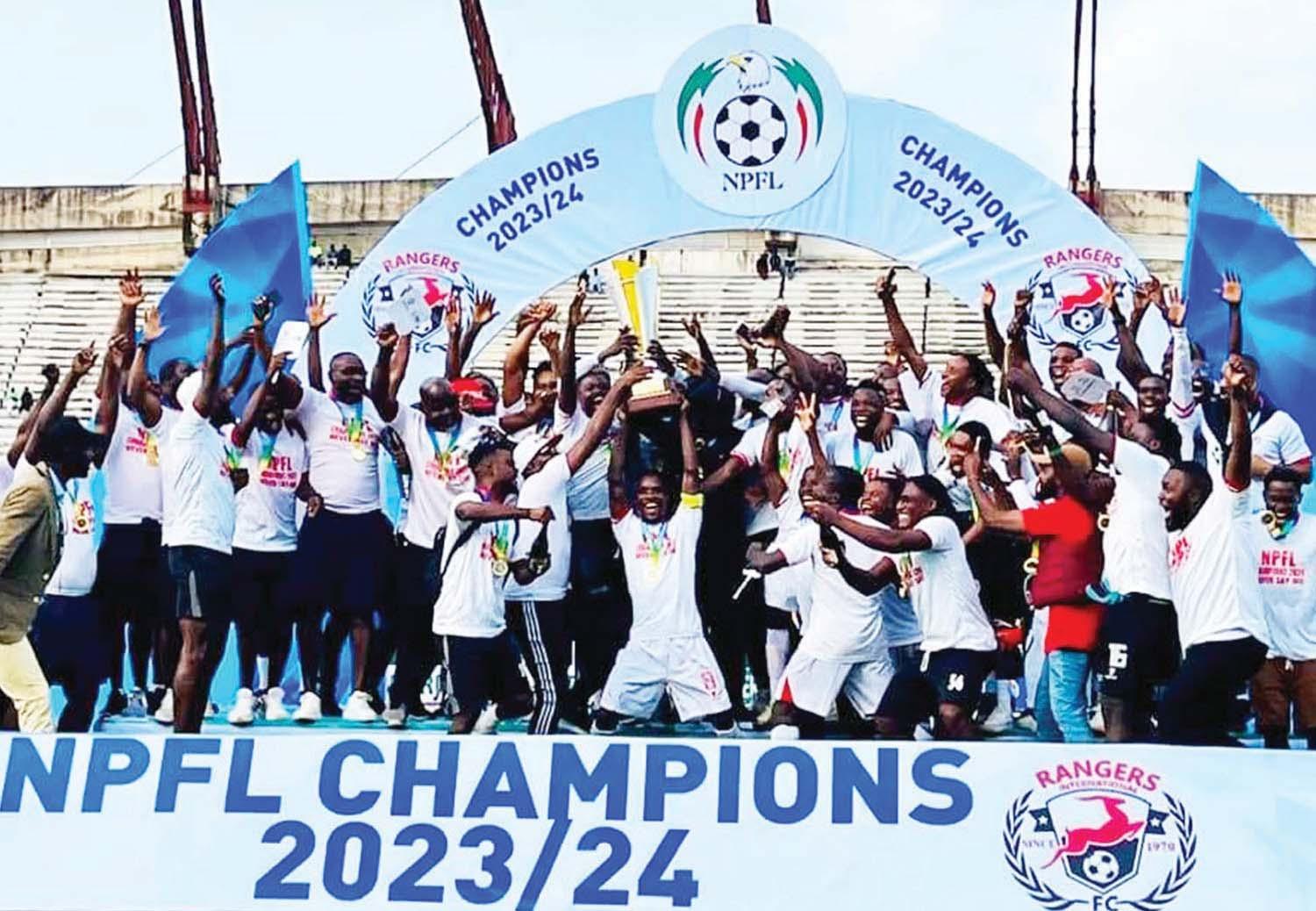
Rangers International FC of Enugu here celebrating after formally crowned champions of the 2023/2024 NPFL season yesterday in Jos
National Basketball Association (NBA) Nigeria recently hosted an exhilarating watch party celebrating the Boston Celtics' historic 18th NBA Championship win.
The event, held on June 14, 2024, brought together basketball fans from across Lagos to witness and revel in this significant achievement in NBA history.
The watch party, held at the Maradiva Hall provided fans with a dynamic and immersive experience, featuring live game screenings, interactive activities,
and a vibrant atmosphere that captured the excitement of the NBA Finals.
The final viewing was met with enthusiastic cheers and applause from the attendees, marking a memorable moment for all present and to wrap up the night a phenomenal performance from Pheelz.
Prominent figures and celebrities like Ebuka Obi Uchendu, Ozoemena Joseph Chukwu, Tobi Bakre, Dotun and so many more were spotted at the event.

National Basketball Association (NBA) Vice-President (Africa) and Country Head of NBA Nigeria, Gbemisola Abudu, with some players of the Rivers Hoopers Team, first Nigerian team to qualify for the Basketball Africa League Playoffs ....recently
Femi SolajaAs expected, it was late-minute drama on the final day of the Nigeria Premier Football League (NPFL) as Remo Stars and Enyimba FC edged out the duo of Shooting Stars of Ibadan and Plateau United to the two remaining continental club tickets for next season.
While the battle at the summit was fierce, it was the same at the bottom following the relegation of the flamboyant side, Sporting Lagos, but Akwa United and Bayelsa United escaped the drop. Champions elect, Enugu Rangers established their dominance with a
2-1 win away against Gombe United with goals from Kazeem Ogunleye and Godwin Obaje in the 3rd and 7th minute before the home side pegged the tally via Anas Hassan in the 25th minute.
The result lifted Rangers to 70 points as champions while the runner-up and fellow CAF Champions League representative, Remo Stars with 65 points won their last match against Katsina United 2-1 with goals from Super Eagles new star, Sodiq Ismail and Dayo Ojo in the first half but the visitors pulled one back late in the second half.
The real drama was however in Ibadan and Aba where the home teams needed to win to stand chances of picking the CAF Confederation club tournament ticket. The feat was however achieved by both sides but it was Enyimba’s win against Plateau United that punctured the Oluyole Warriors' dream of a continental ticket next season.
Season’s Highest Goal scorer, Mbaoma Chijioke threw the entire stadium into rapture with a goal in the 78th minute and Alade Balogun doubled the lead in the 88th minute to confirm the team’s participation in continental football next season.
Bayelsa United confirmed their stay in the elite division with a 2-0
The Nigeria Football Federation (NFF), yesterday announced that the grand finale of the country’s oldest Cup competition will now take place at the Mobolaji Johnson Arena, Lagos on Saturday, 29th June. Earlier scheduled for the MKO Abiola National Stadium, Abuja (which would have seen the city host the final for the first time in the competition’s history), the NFF and GTI announced on Sunday they
have opted for the good old venue on Lagos Island, which hosted the final of the competition consecutively between 1945 and 1972.
First known as Association Ground, then as King George V and later as Lagos City Ground, the venue later became known as Onikan Stadium after it was rebuilt in the 1980s. It became known as Mobolaji Johnson Arena in 2021.
The last grand finale to take
away win at Bendel Insurance. The result pushed beaten Sporting Lagos to the lower division regardless of any hope of a surprise win in Ibadan.
In the other results, Kano Pillars edged Lobi Stars 3-2 while Kwara United were 4-0 better against
win over Rivers United.
place at the famous venue was also a memorable one. In 1972, Bendel Insurance FC led Mighty Jets FC 2-0 before two late goals by the late Sam Garba Okoye tied the game, and it had to be replayed two days later at the Liberty Stadium (now known as the Obafemi Awolowo Stadium), Ibadan. Apart from the Mobolaji Johnson Arena
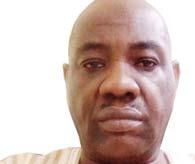
It was Kano State Governor Abba Kabir Yusuf’s spokesman Sanusi Bature Dawakin Tofa who, at the weekend, introduced the very unhelpful phrase “fight to the finish” in the national political lexicon. Speaking on Arise TV, he characterized the on-going tussle over the emirship of Kano in this manner, supposedly as a fight between Kano State Government and Federal Government, the former on the side of Emir Muhammadu Sanusi II, the latter on the side of Emir Aminu Ado Bayero. I am choosing my words carefully because at the moment, no one is sure who is the rightful Emir of Kano. Ordinarily, last Thursday’s ruling by Justice Mohamed Liman of the Federal High Court, Kano should have made matters clearer, but the headlines of twenty Nigerian print and online newspapers, radio and tv stations and news agencies left everyone confused as to the import of the ruling. Some said the court removed Emir Sanusi; others said the court restored Emir Bayero; still others said the court left Kano without an emir; while the state’s Attorney General firmly declared that the ruling preserved Sanusi as the emir of Kano.
Big lawyers who waded into the matter also provided different interpretations. I think the most honest one was constitutional lawyer Prof Auwalu Yadudu who said the ruling was confusing. On the one hand it kind of upheld the amendment to the Chiefs Appointment

and Deposition Law passed by the Kano State Assembly, which sought to abolish the five emirates created by former state governor Abdullahi Umar Ganduje. It however quashed all actions taken by the governor thereafter to give effect to the amended law, most notably by restoring
Emir Sanusi to the throne. To further muddle matters, the judge was said to have granted a stay [of what?] pending an appeal to the Court of Appeal, and he simultaneously transferred the case to another judge because he has been elevated to the Court of Appeal. I don’t
know what the courts’ rules say, but I think former Abia State Governor Orji Uzor Kalu was let off the hook in his corruption case because the High Court judge who convicted him had earlier been elevated to the Court of Appeal.
Anyway, all these matters should ultimately be sorted out, if not at the Court of Appeal, then at the Supreme Court. Any side that loses at that level should appeal to God. Trouble is, it could take years to sort out, as happened in many chieftaincy disputes in various parts of the country. The only cases that take longer than chieftaincy disputes to resolve in the courts are land disputes; I once read about a land dispute in Rivers State that languished in the courts for forty years!
The other trouble is, since the Kano emirship tussle appears to be a highwire political dispute between NNPP, which rules the state and APC, which controls the Federal Government, politicians are not going to wait for the courts to resolve the matter before they thoroughly muddy the waters, like Sanusi Bature did at the weekend. He was the second Kano State government official, and the third Kwankwasiyya chieftain, to throw the gauntlet at Federal officials on this matter. Last month when it all started, state Deputy Governor Comrade Aminu Abdulsalam Gwarzo accused National Security Adviser to the President Malam
Continued on page 36
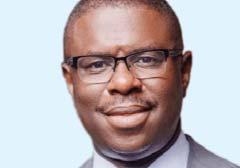
Jonathan Tepperman’s book, "The Fix", is about how some nations fixed significant social challenges like inequality, corruption, and civil wars using innovative leadership and policies. No one has yet written a book about how nations fix profligacy. Therefore, it is justifiable that Nigerian leaders have not bothered to read a book that does not exist. When such a book is eventually written, Nigeria's chronicle of shameless profligacy will qualify as a unique case study. It is perceived as a culture our elite have come to embrace or tolerate as an acceptable national social habit. Profligacy, defined as reckless or wasteful extravagance, is a concern in various aspects of Nigerian society. It touches different levels, from personal lifestyle choices to government spending and business practices. This culture of profligacy, if left unchecked, will continue to drain our resources, hinder our development, and perpetuate a cycle of corruption and mismanagement.
Social habits are ingrained behavioral patterns that shape societies and influence how things are done. It might have a good or bad impact. Andrew Sykes ,co-author of “The 11th Habit“believes that the collective culture of a people shapes their habits, and habits cyclically reinforce culture. The habits of a nation reflect its values. This
habit of profligacy among Nigeria's ruling cadre is interconnected with the culture of corruption, lack of accountability in public life, short-term thinking, and lack of personal stake in the Nigerian project. Most importantly, it is proof of a total disconnect from reality. Since the Nigerian civil war, a deeply ingrained culture of wasteful expenditure and consumption-driven governance has plagued successive Nigerian governments. However, this is not a fate we are bound to. With the right cultural shifts and systemic reforms, we can break free from this cycle and build a more responsible and prosperous Nigeria. There is substantial empirical evidence linking this culture of wastefulness to our oil economy, which provides the government with oil revenues at all levels without accountability. Oil receipts have increased spending, often on non-essential projects that do not benefit the citizens. With an abundance of oil money and less emphasis on accountability and transparency, an environment of profligacy became prevalent and is now a national social habit. This profligacy, in turn, fuels corruption and mismanagement, creating a vicious cycle that hampers our progress and development. It is crucial that we recognise and address this interconnectedness to pave the way
for a more responsible and accountable Nigeria.
There is no responsible public affairs management culture, which feeds the decadent habit of wastefulness that our elite has adopted. Our weak institutions encourage mismanagement since they cannot enforce laws and regulations. A political patronage and nepotism culture has made us prone to wrong priorities, and we need the ability to plan strategically. Oversight by the legislature is highly compromised. Decisions made by public authorities are now driven more by personal interests than by sustainable use of resources for common interests due to a combination of economic pressure and poverty.
The Nigerian government is often criticised for high spending on nonessential items, such as luxury cars for officials, unreasonable cost of renovation of offices and accommodation, large delegation to foreign trips and frequent travel expenses. This is particularly controversial given the country's significant economic challenges and infrastructural gaps . Corruption is a considerable issue, with funds frequently misappropriated or embezzled. Highprofile cases of public funds being diverted for personal use contribute to a culture of extravagance among some officials. The civil service and
government agencies often have large, inefficient workforces, leading to unnecessary expenditures on salaries and administrative costs.
Examples litter our landscape to prove that there is nothing untoward in the culture of profligacy. For brevity and conciseness, I will give four examples. First, NNPC, the national oil company, spent $25 billion (over N12 trillion) over 20 years on turnaround maintenance of Nigeria's four refineries, yet none can refine a drop of oil. The average cost of building a 350,000-bpd refinery is about $ 3.5-5 billion. This may not convince you about a national habit that has calcified. Between 2010 and 2020, crude oil theft led to the disappearance of 619.7 million barrels of oil worth N16.25 trillion, according to NEITI, an extractive industry transparency watchdog. None of these two high-profile cases resulted in arrest, prosecution, or national protest. It is normal and an acceptable national habit for the elite and average citizen. You will be tempted to think that this habit of national profligacy is restricted to the oil and gas industry. You are dead wrong! Second, how can we quickly forget what qualified for a national embarrassment in 2023 when the government registered 1,411 persons—a

